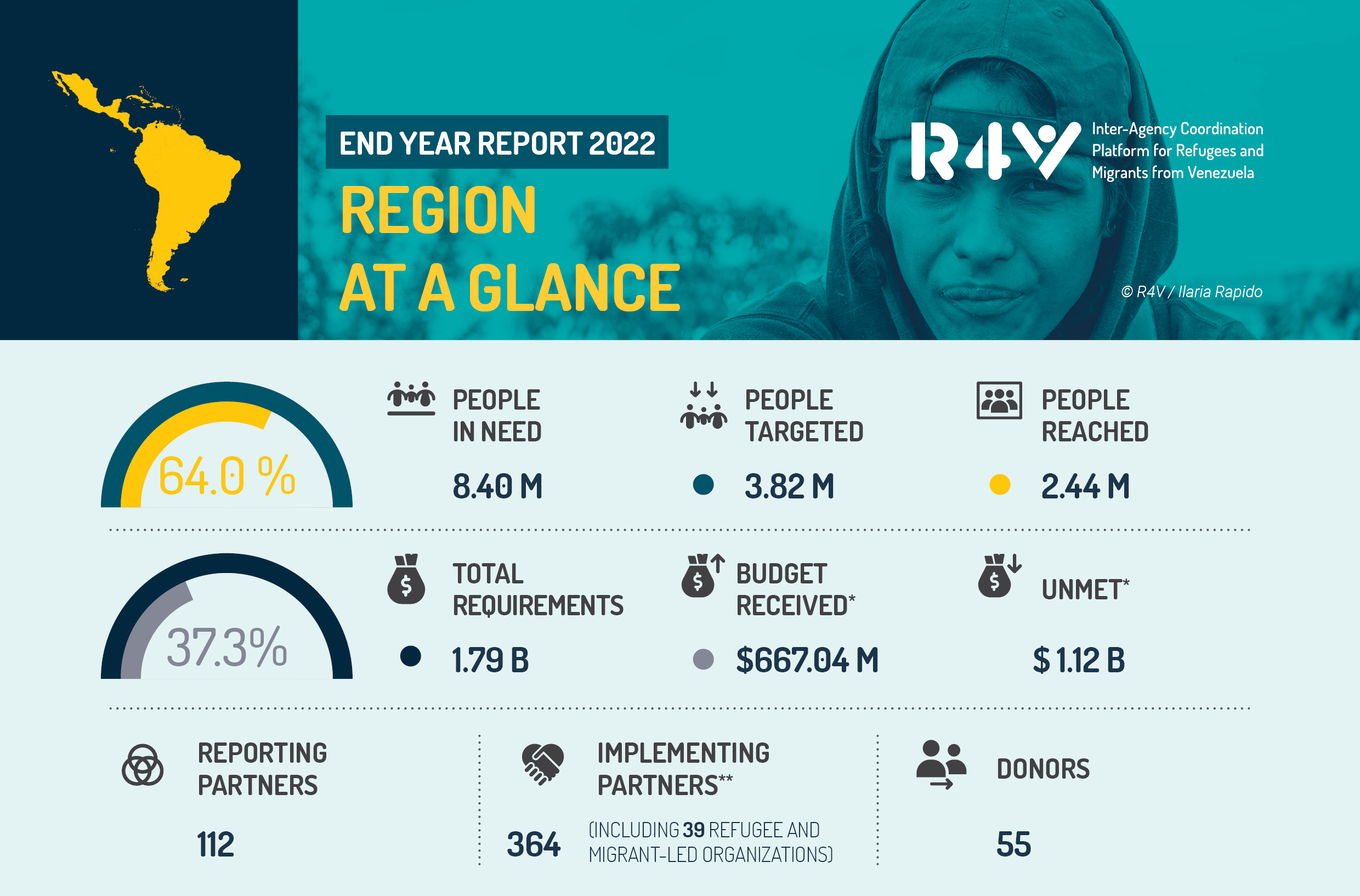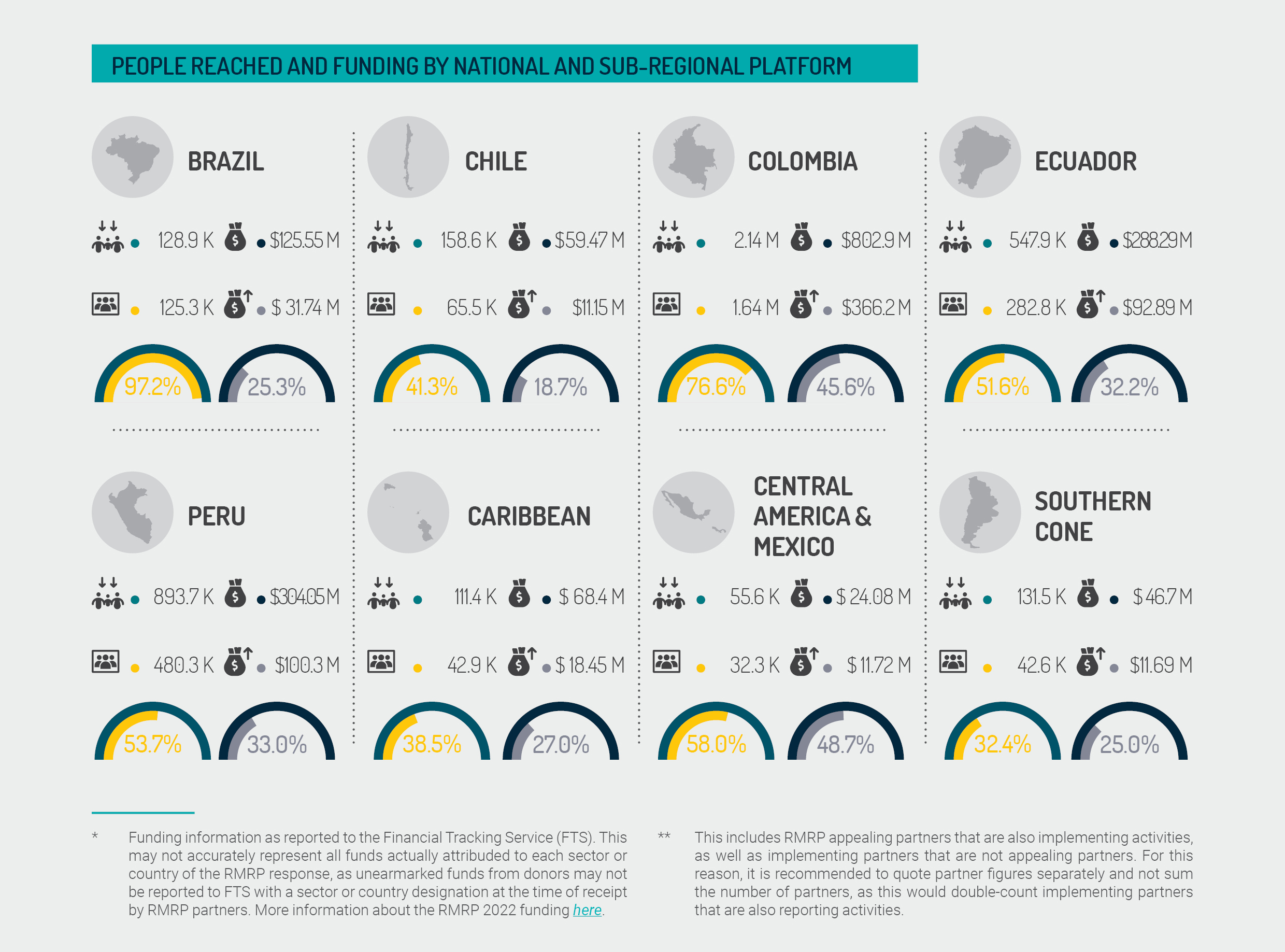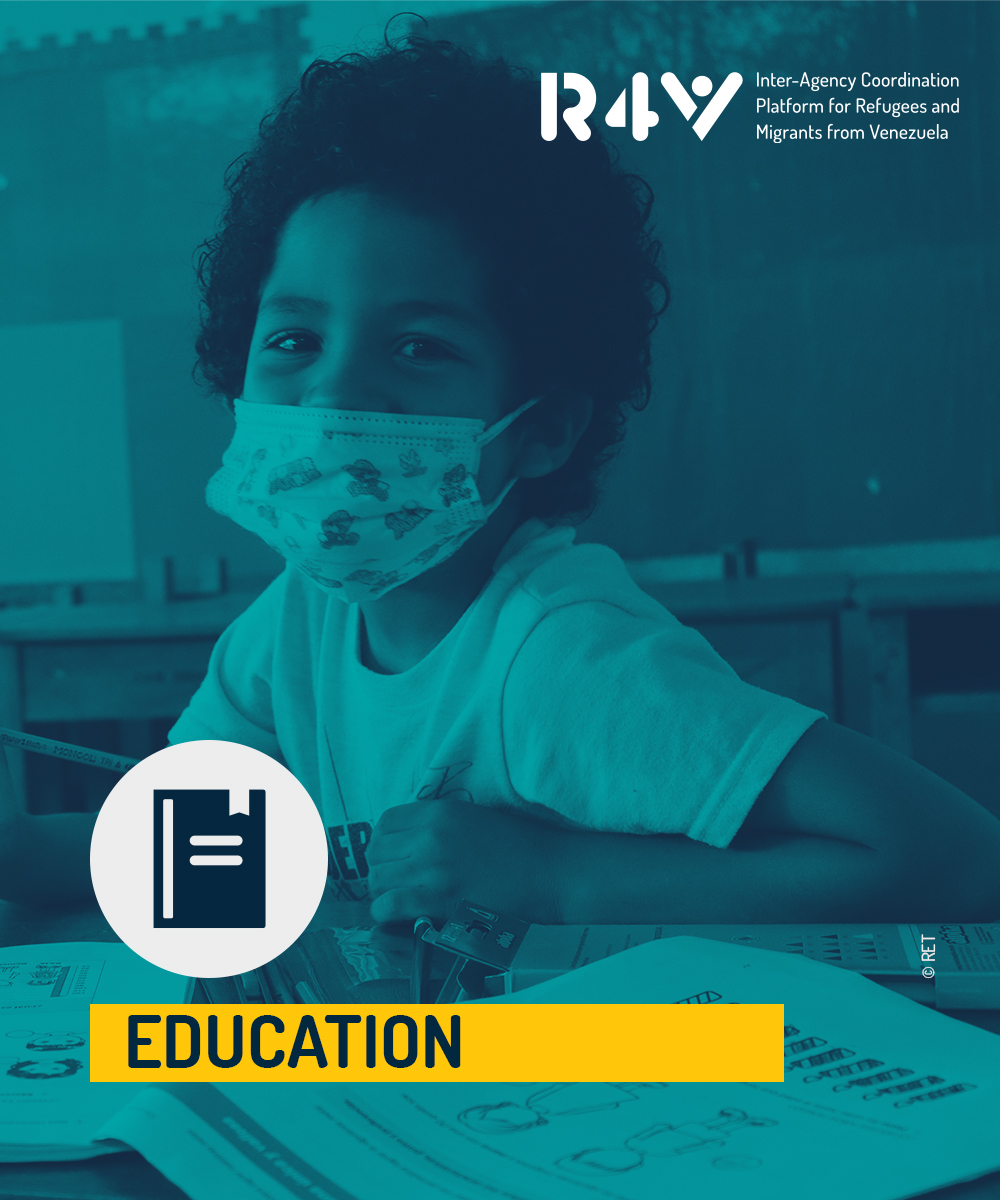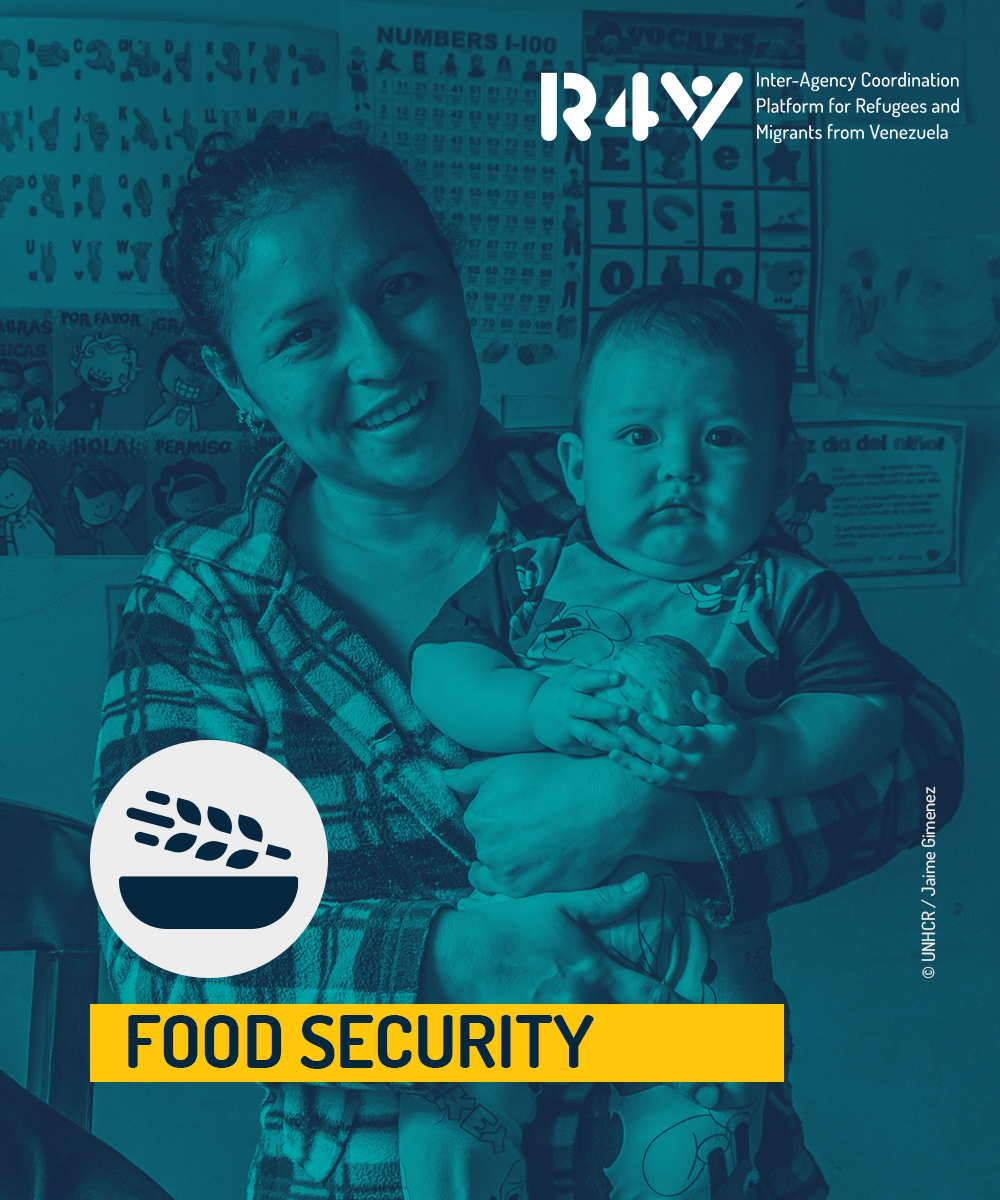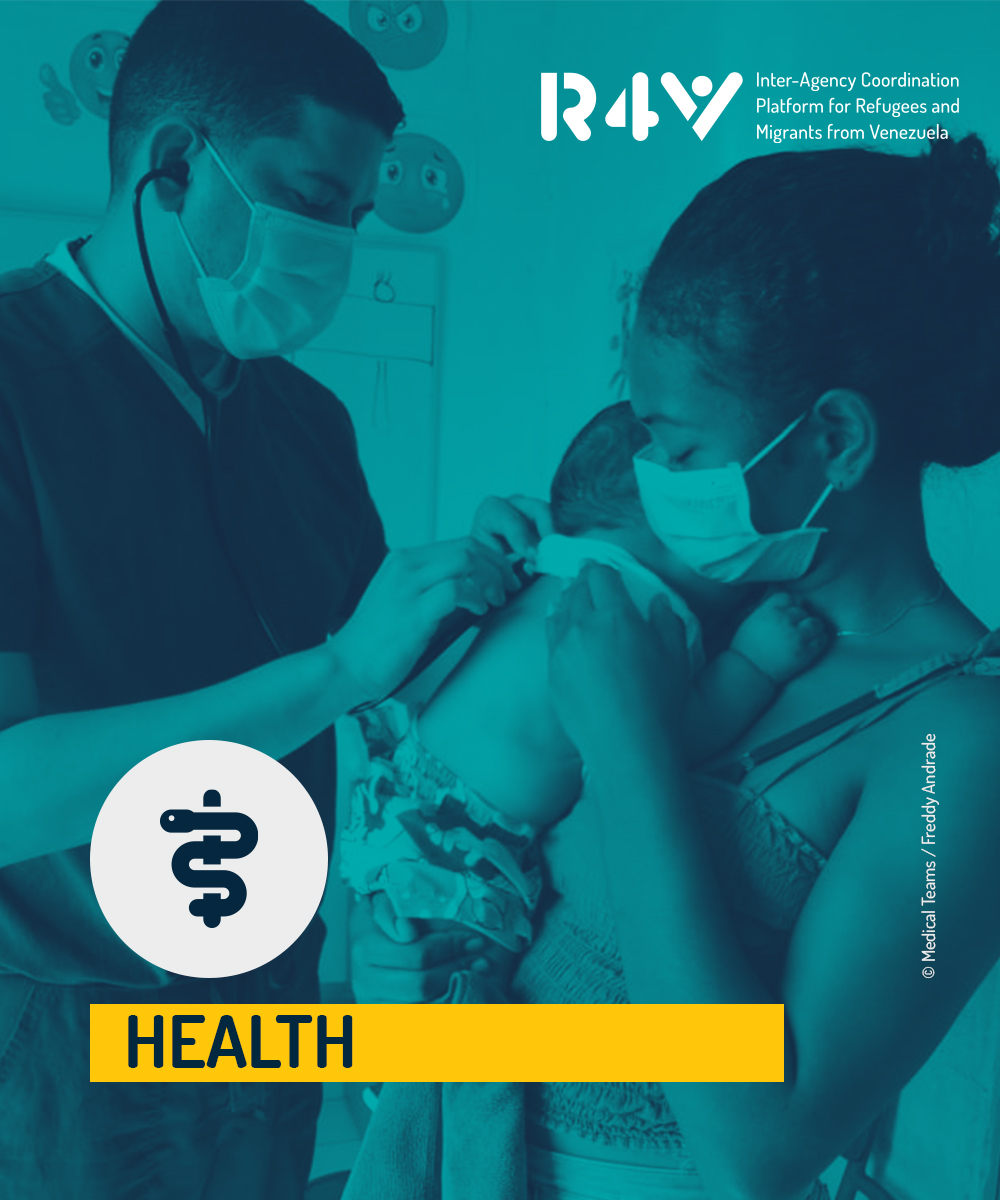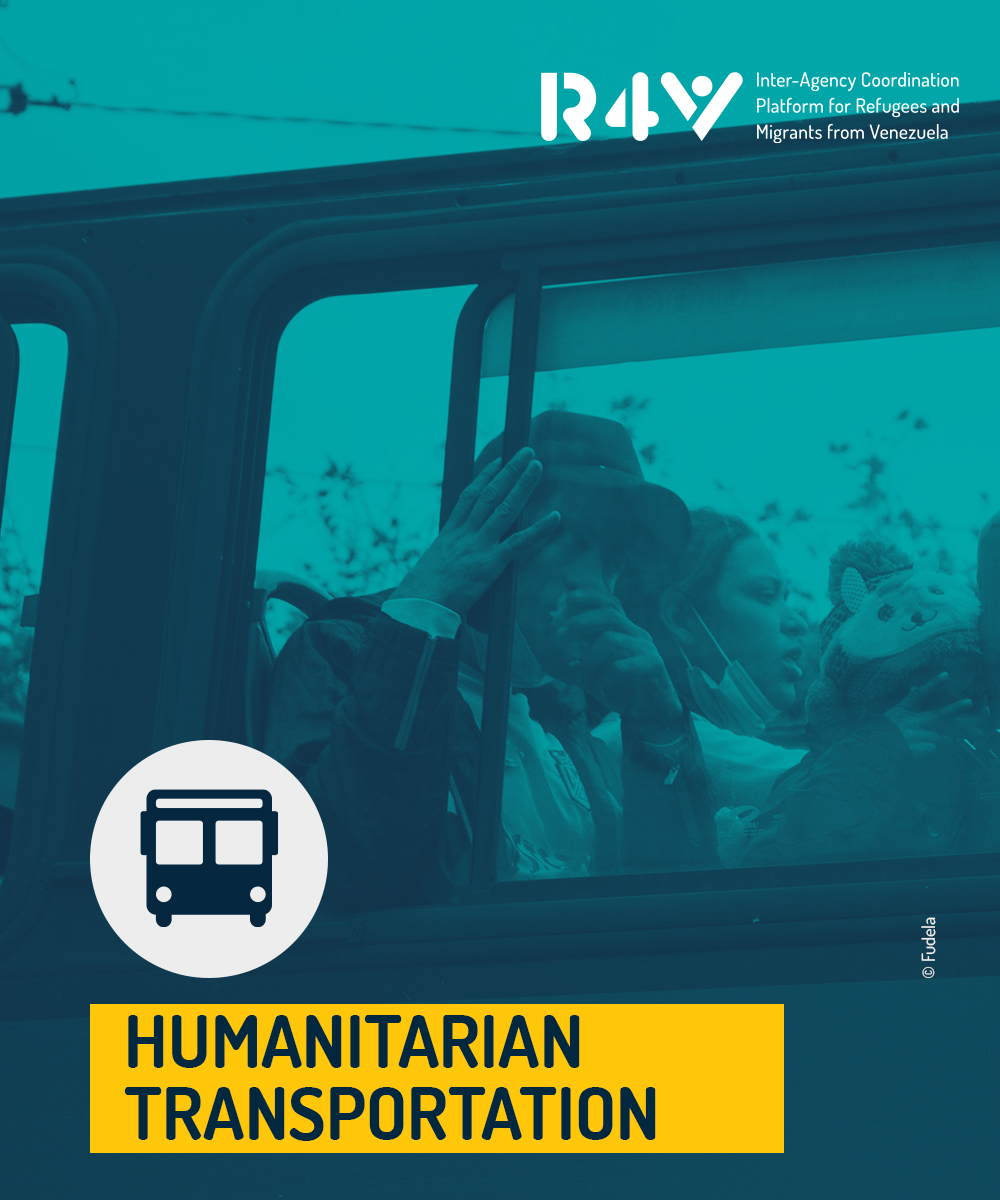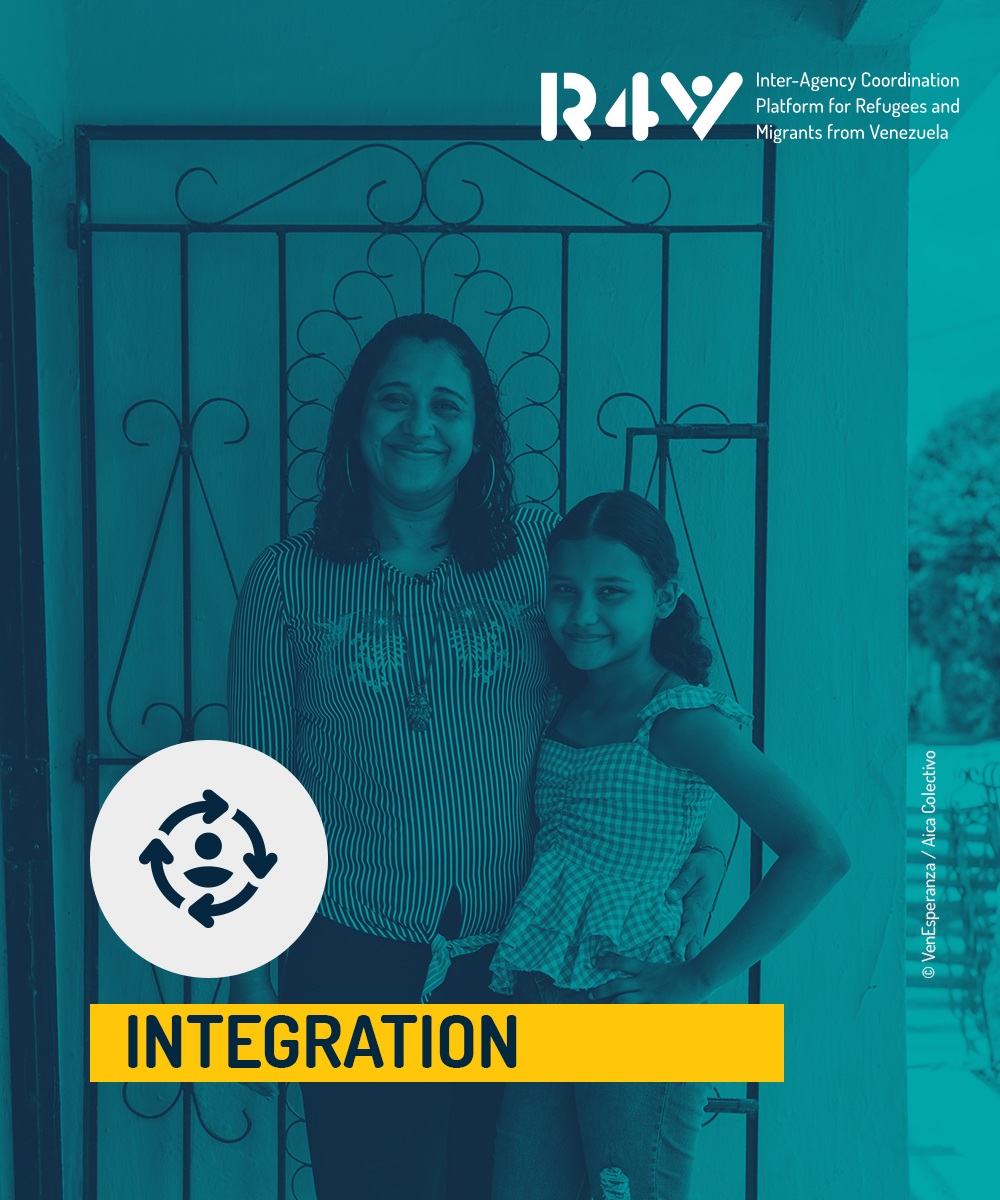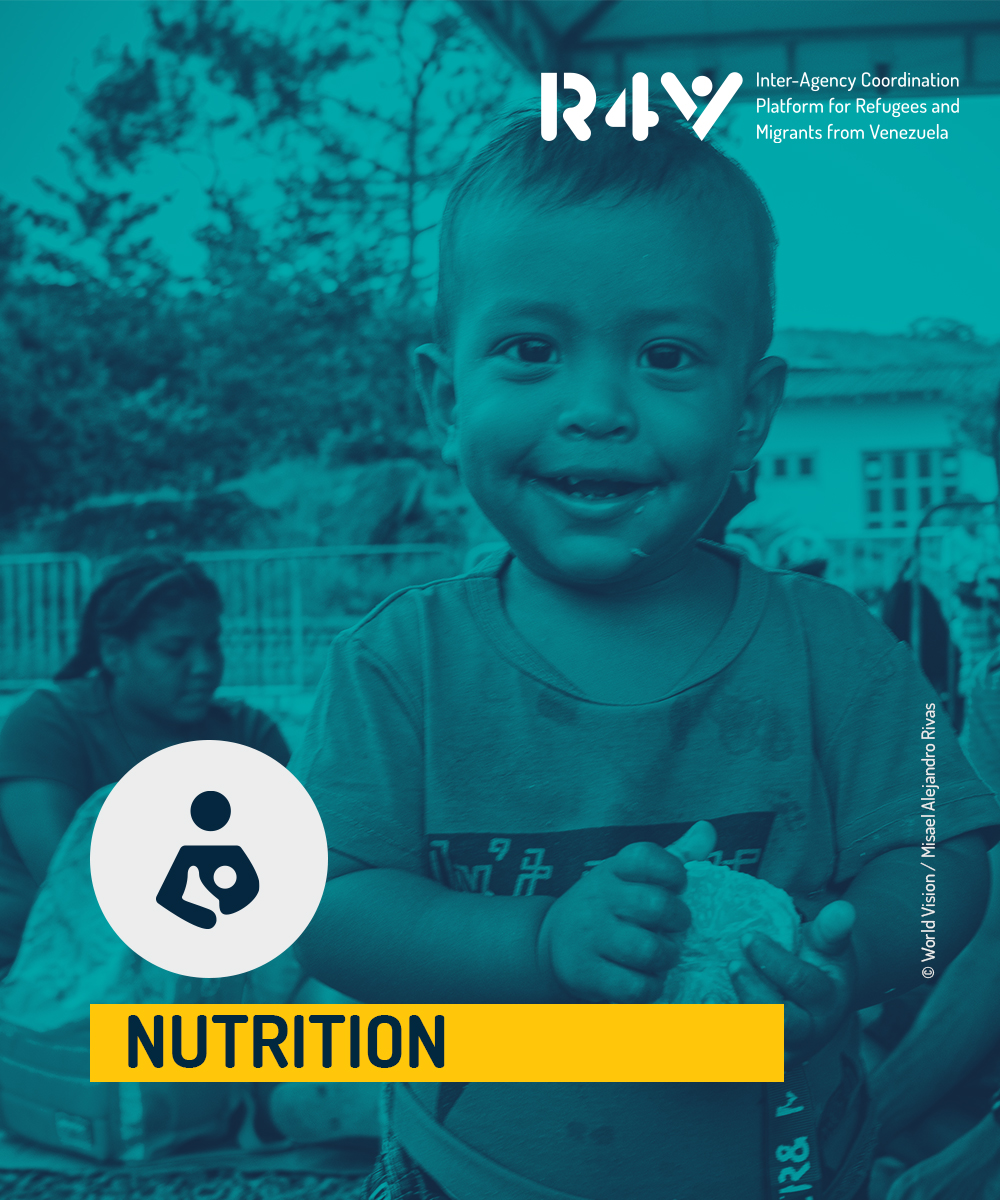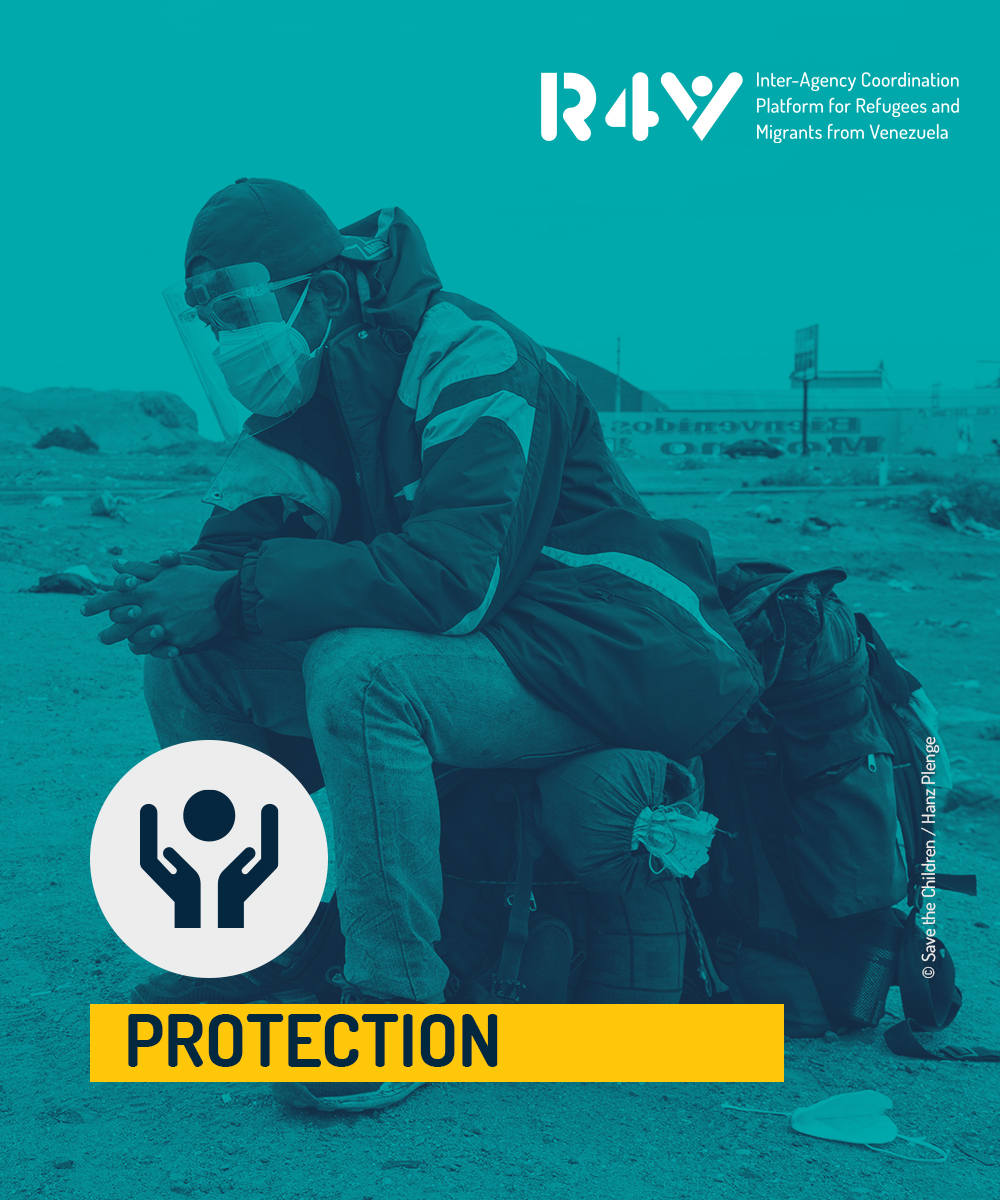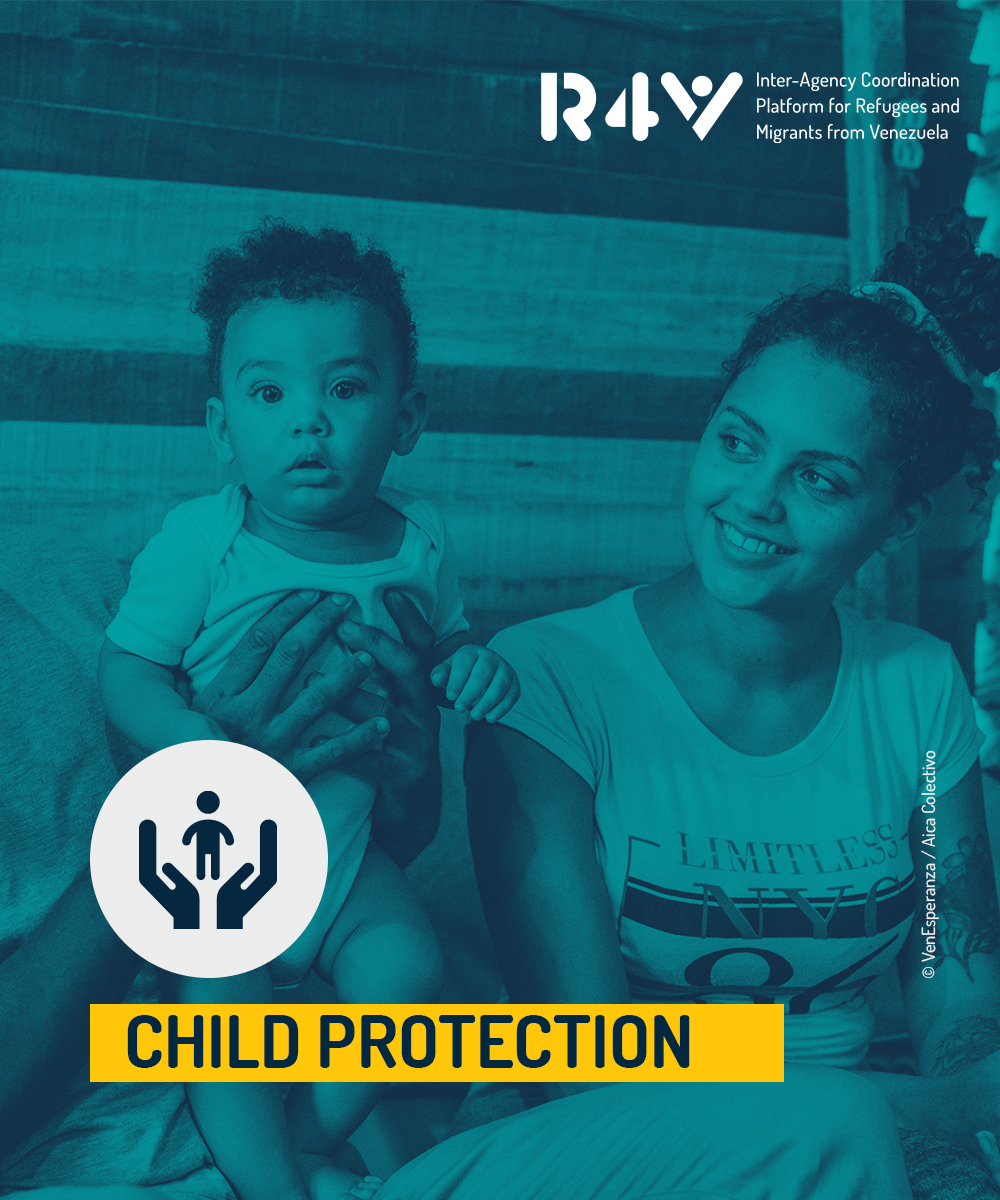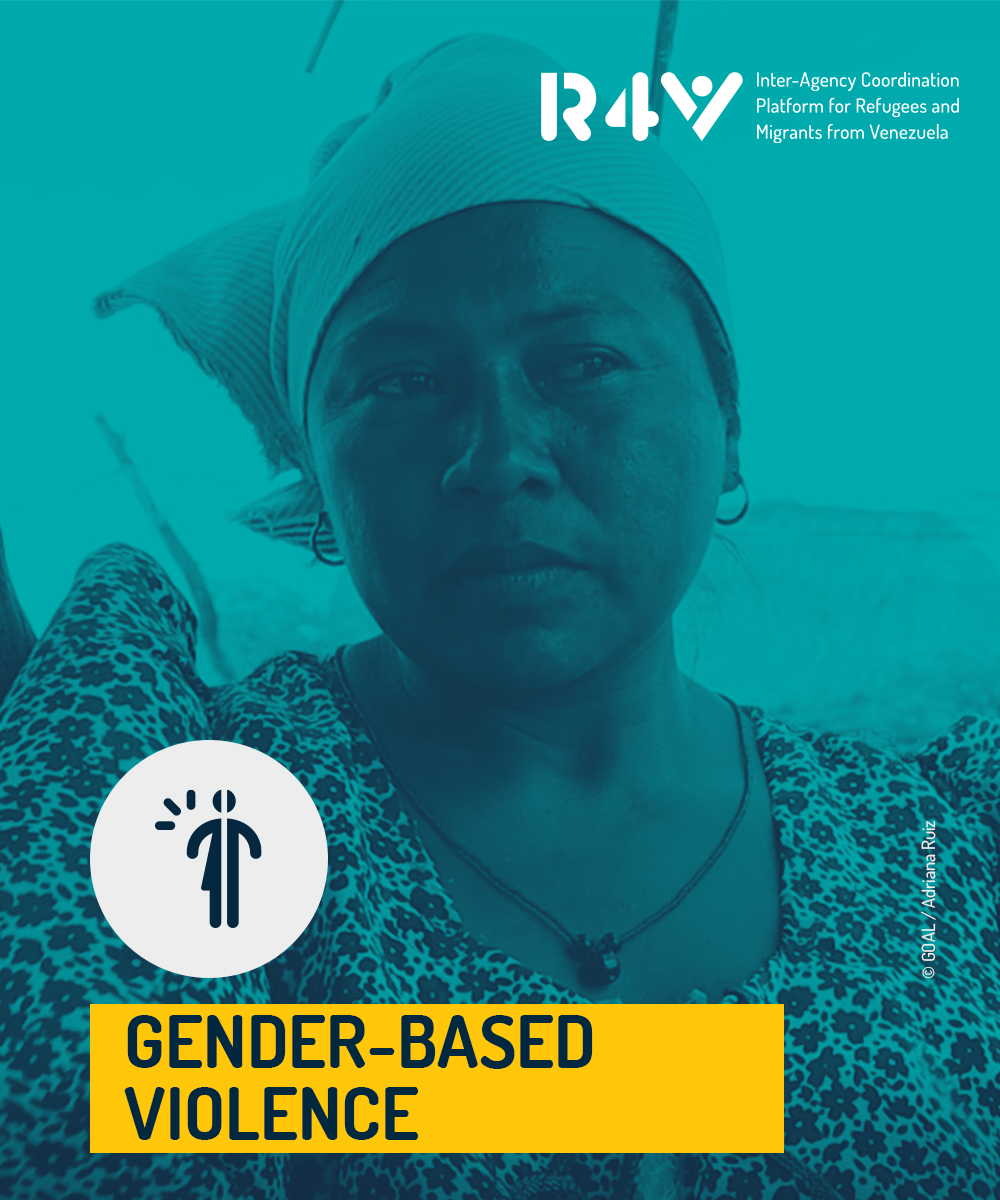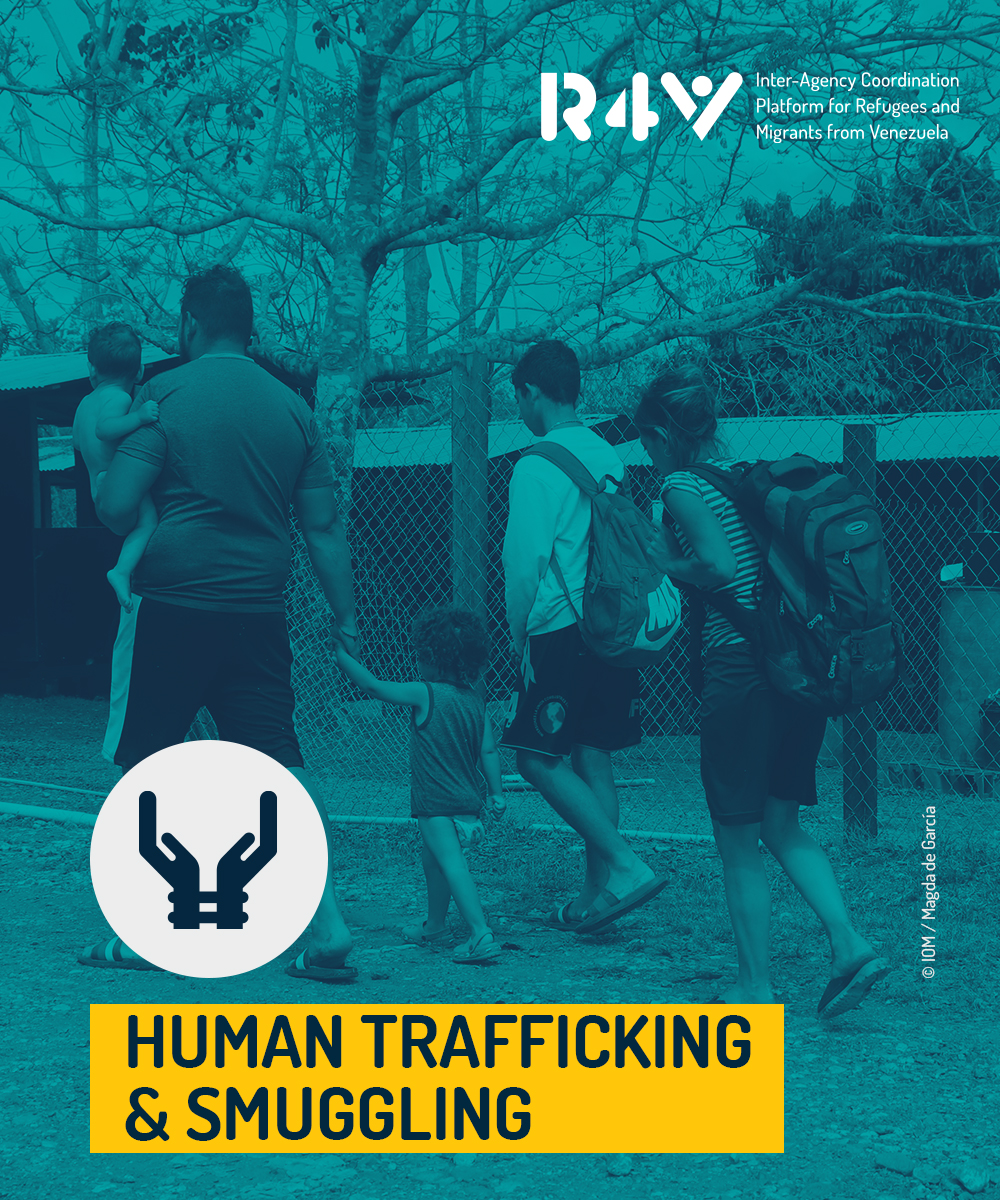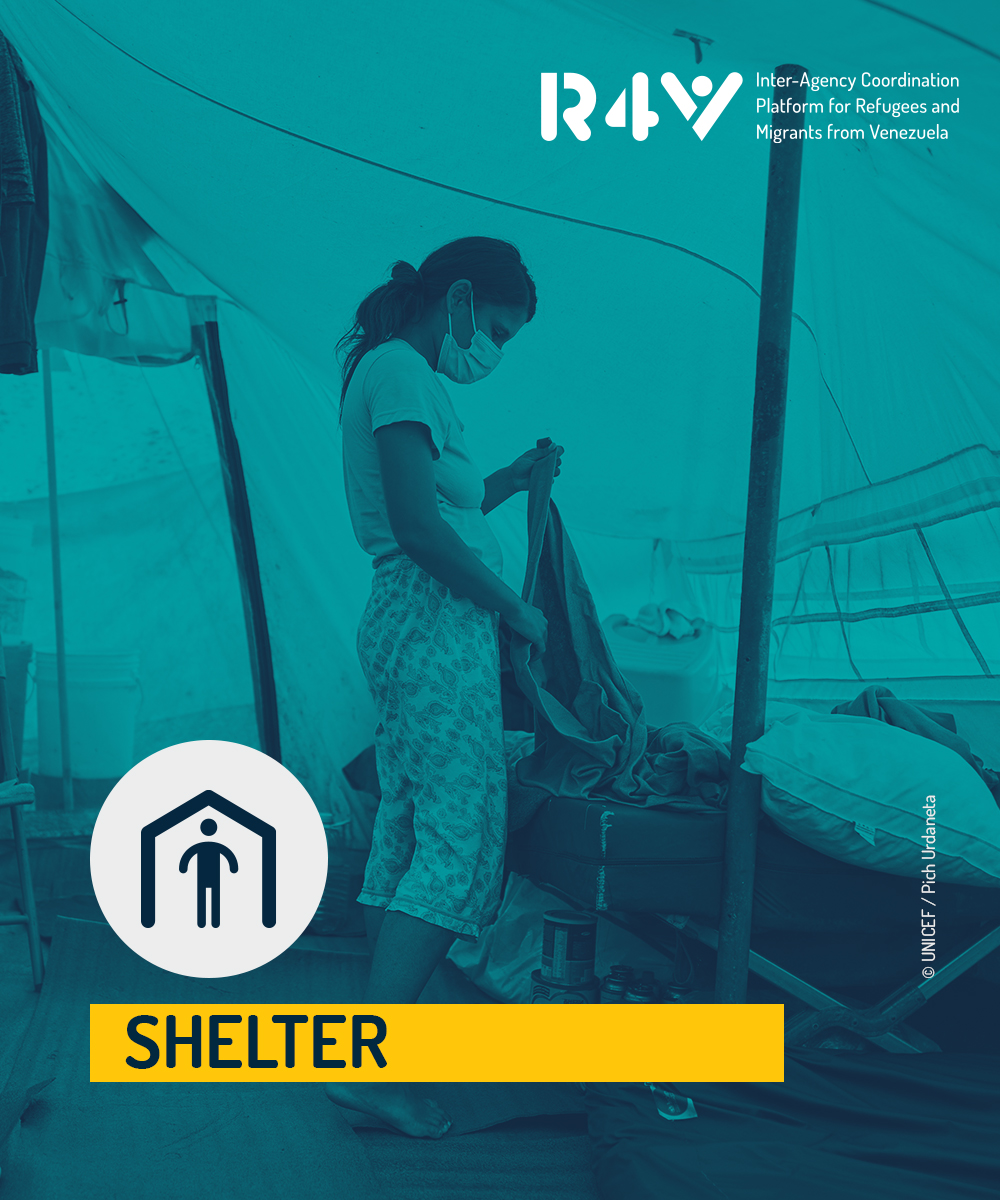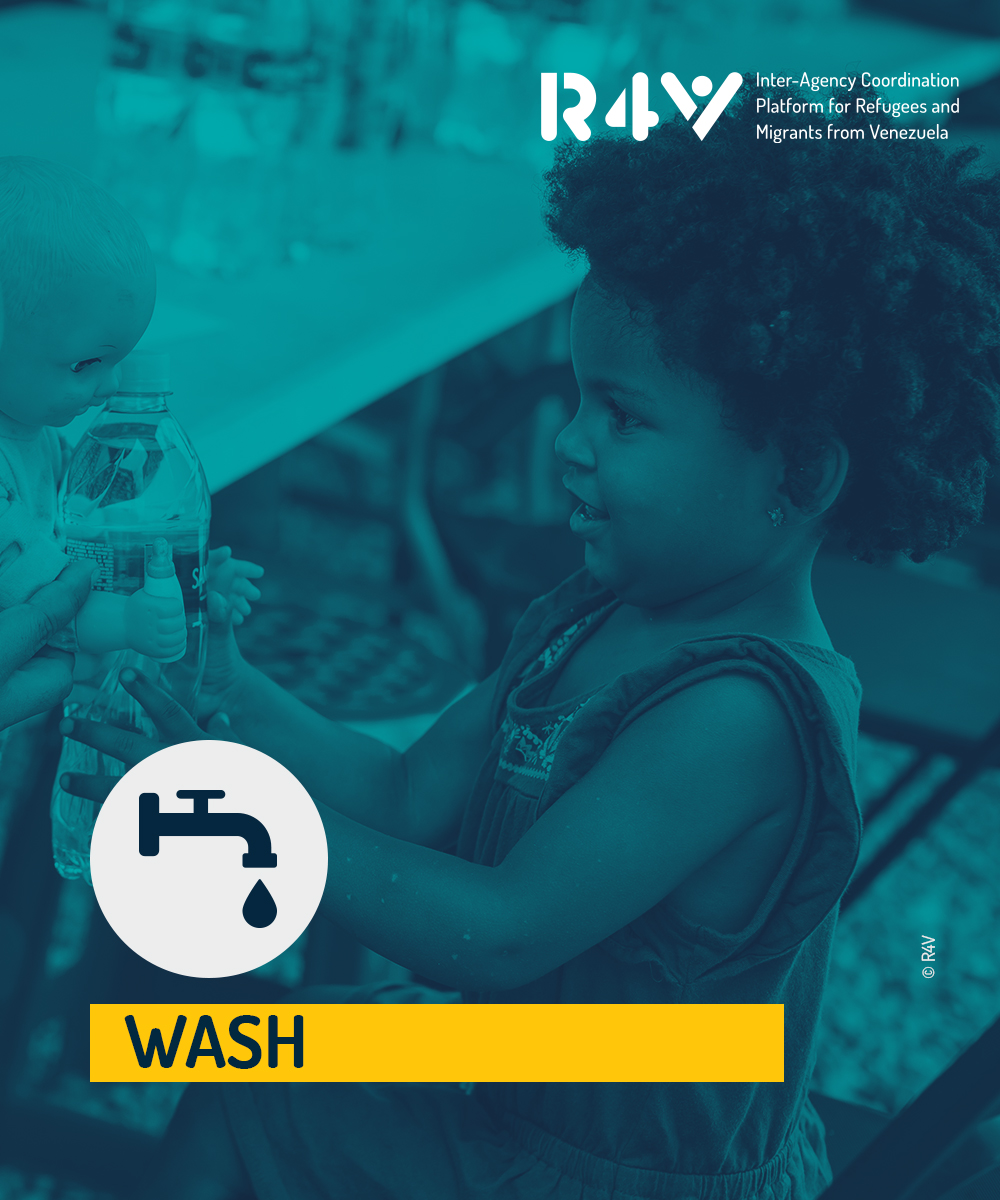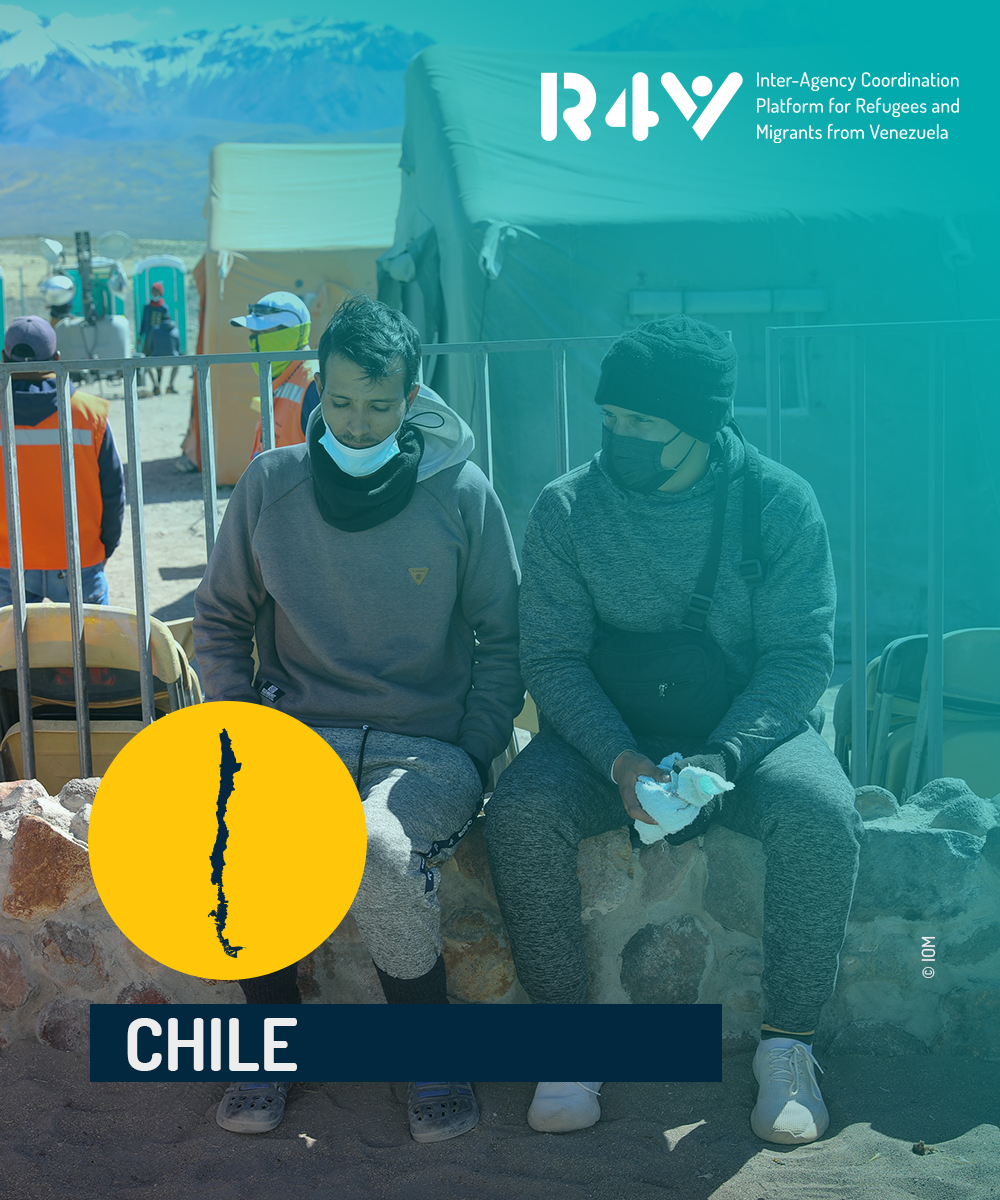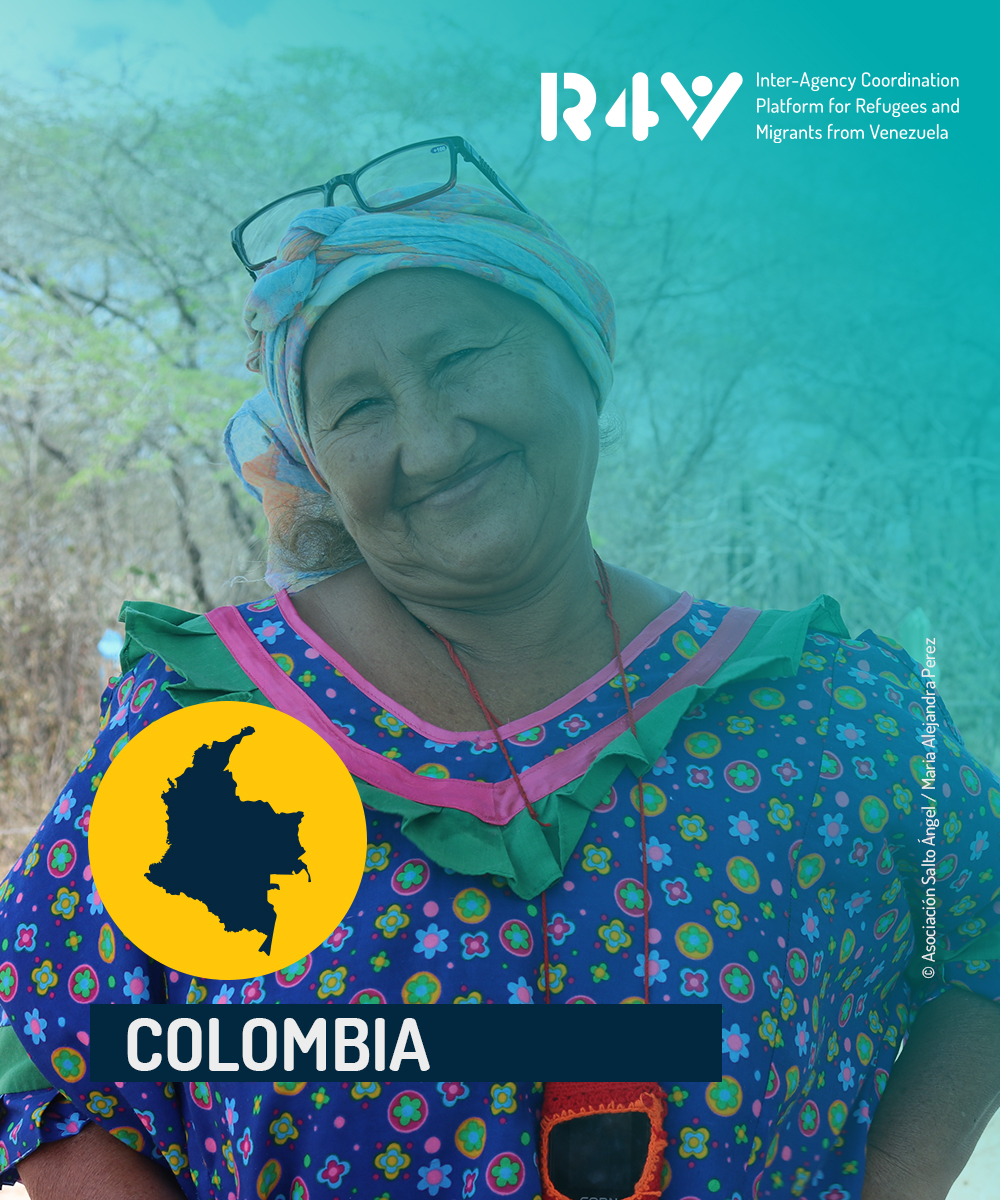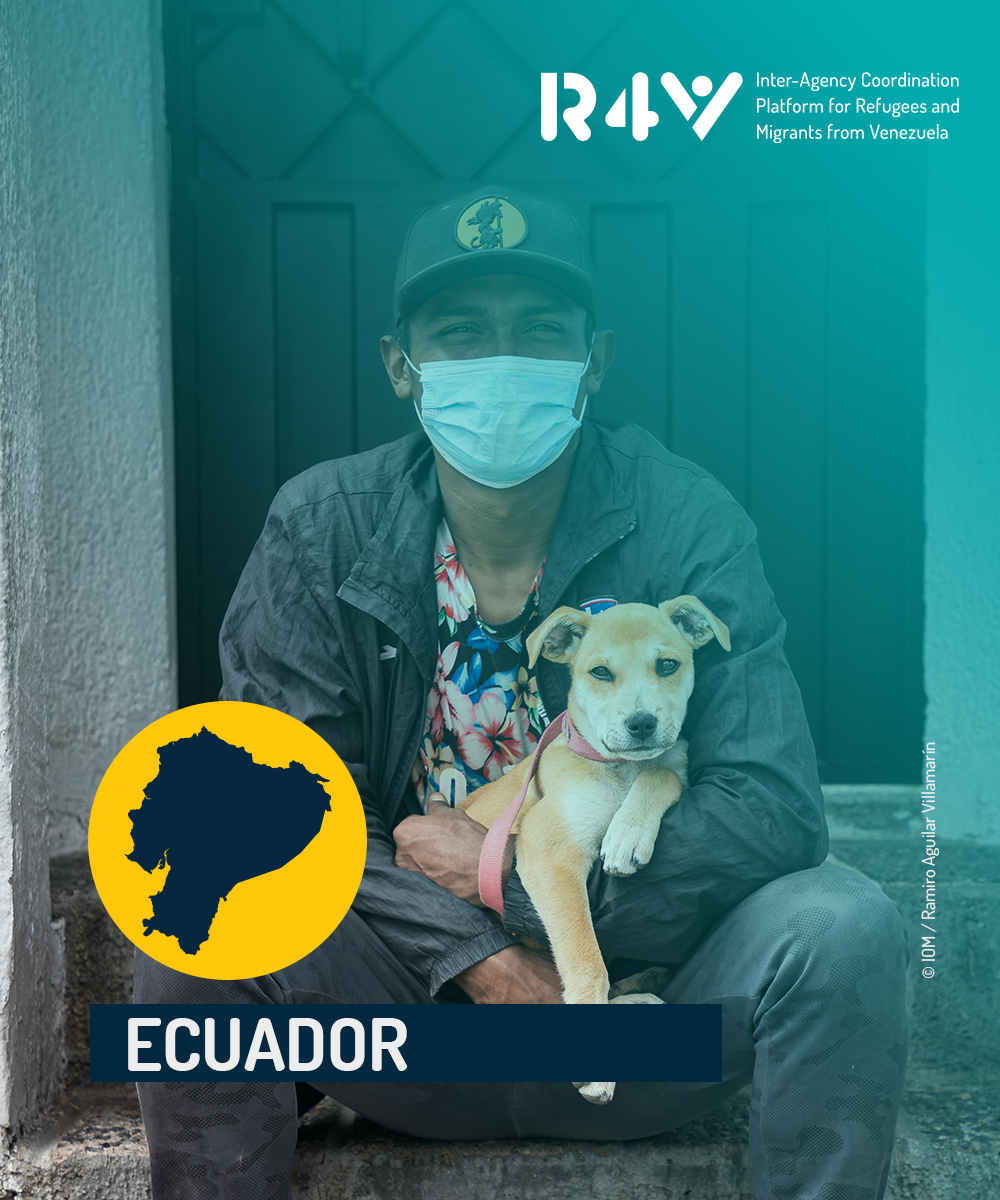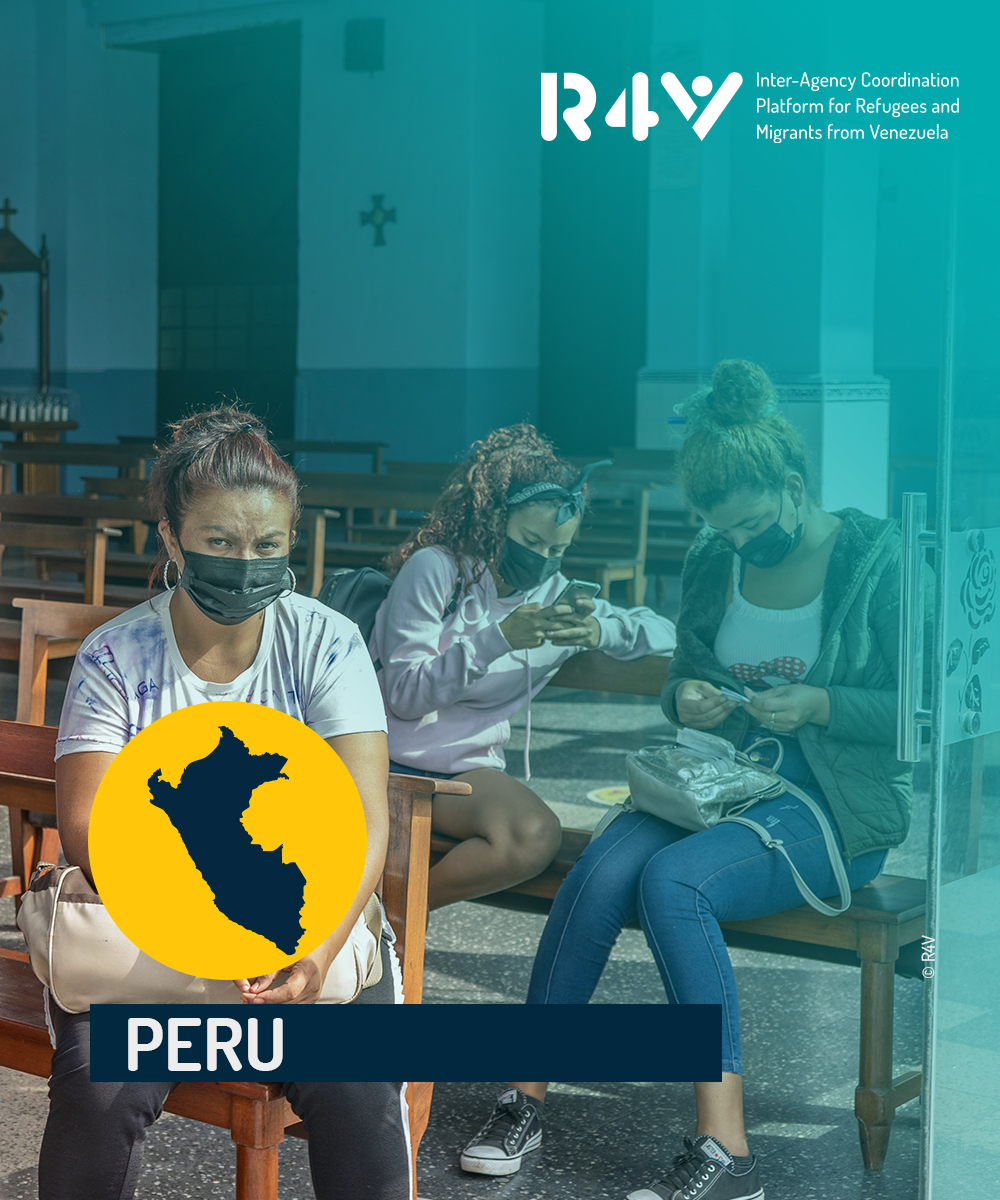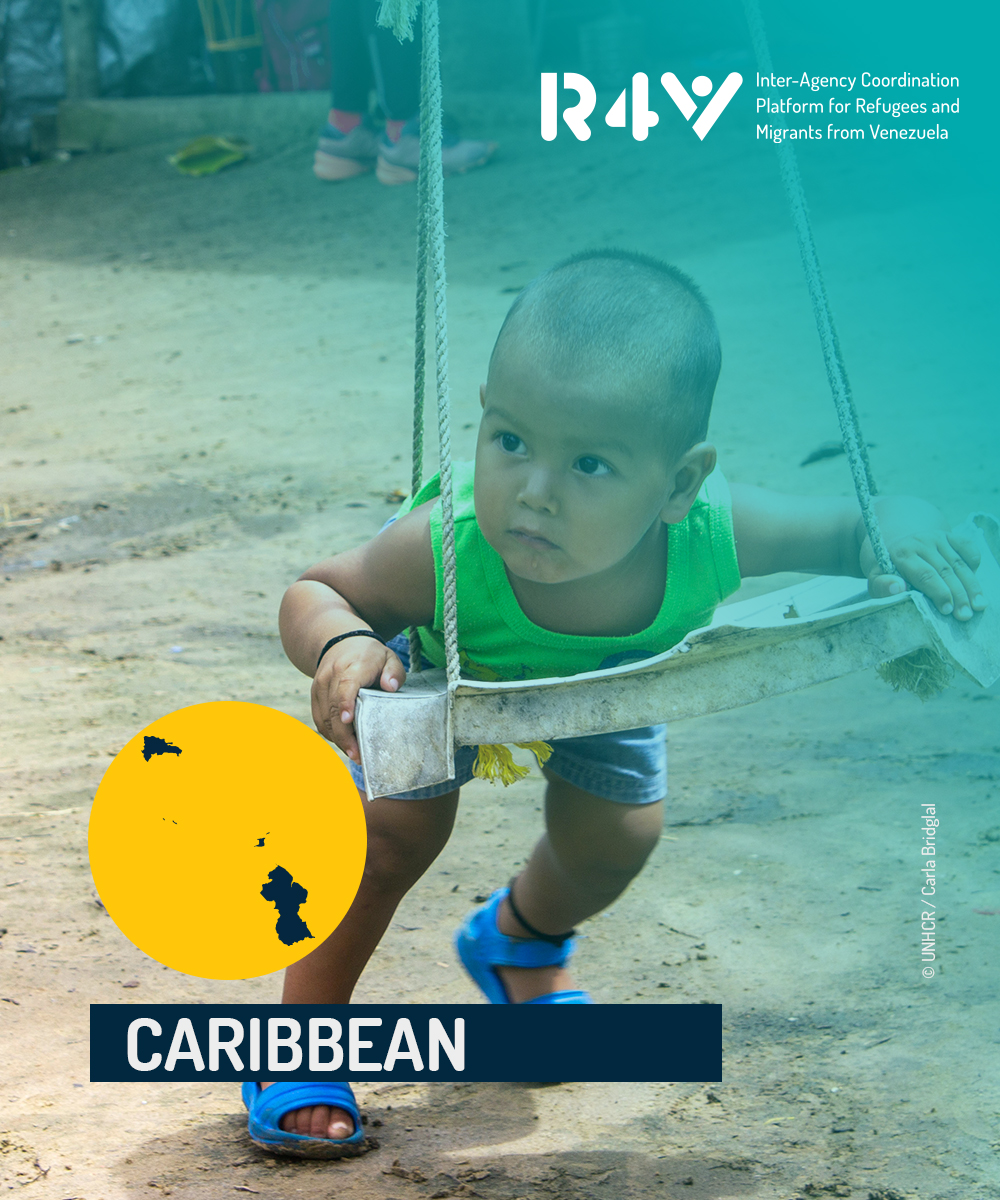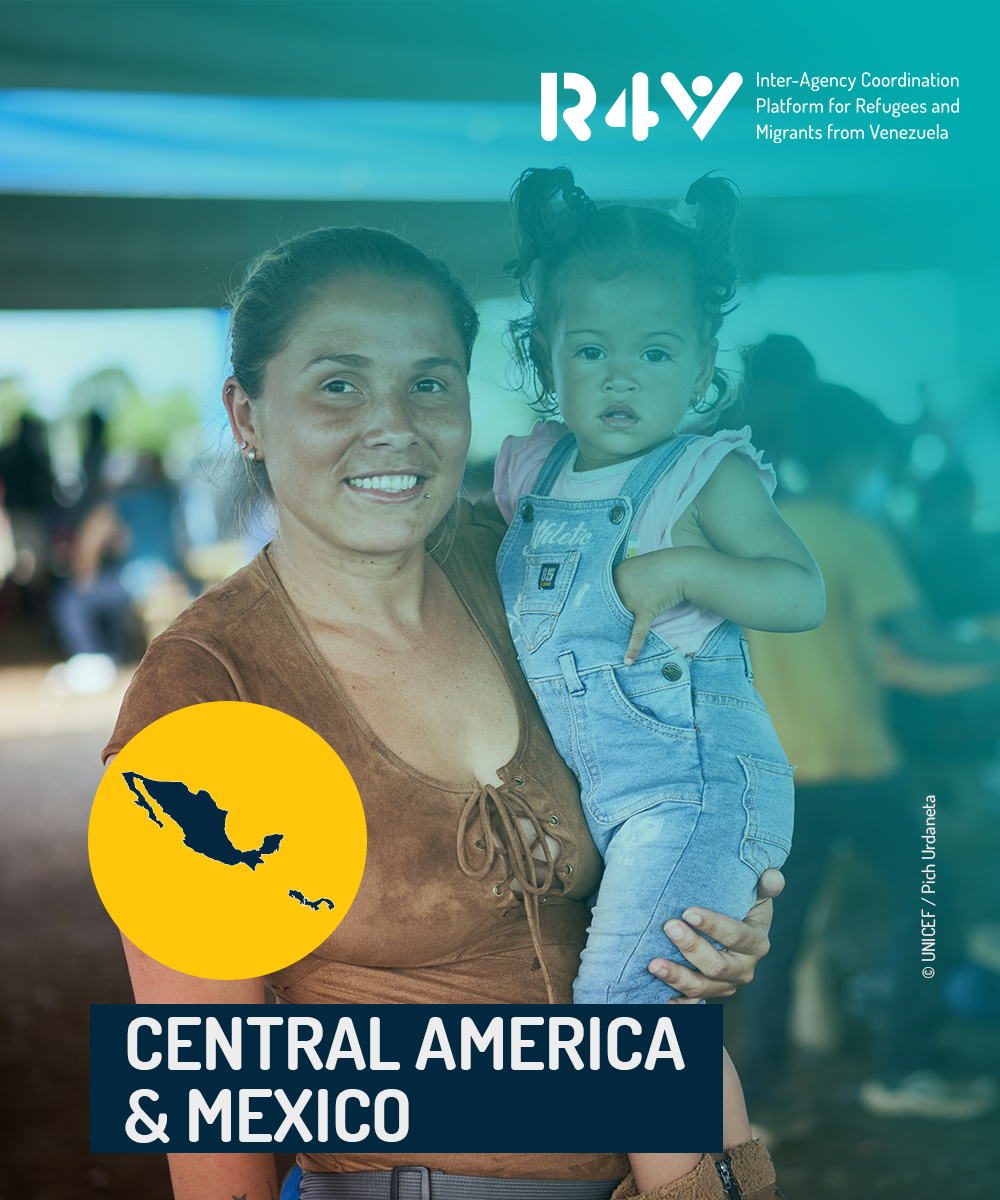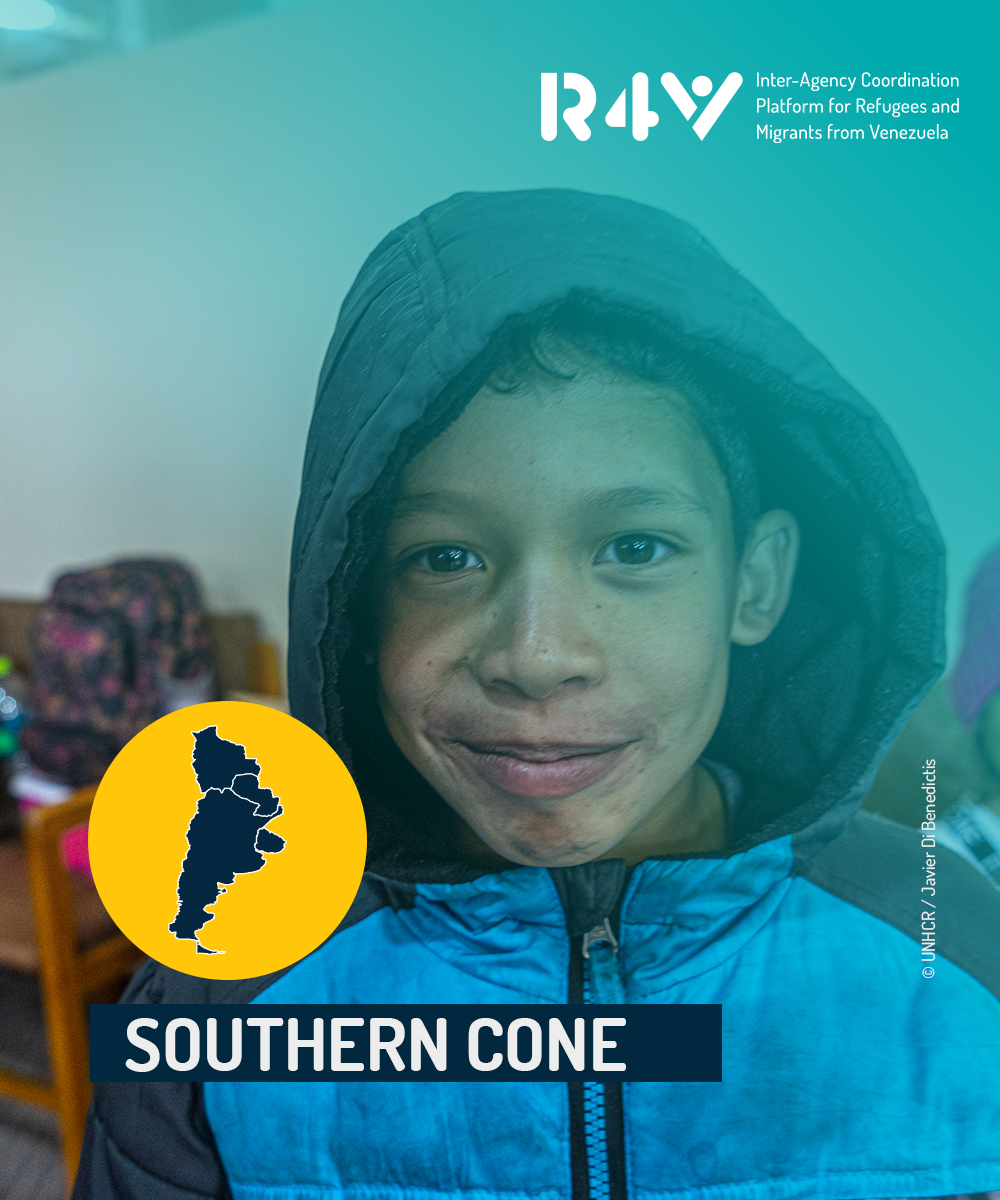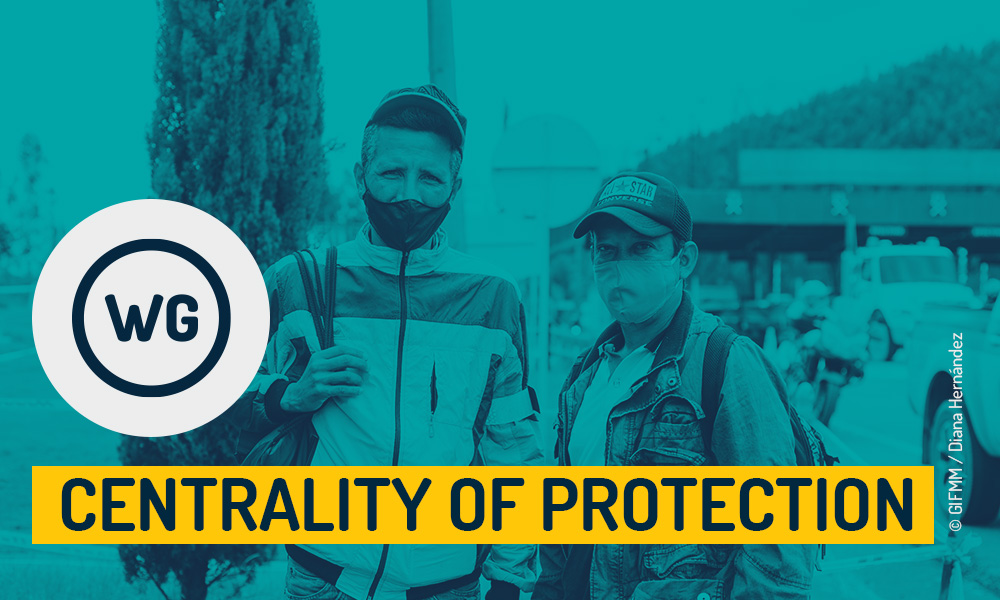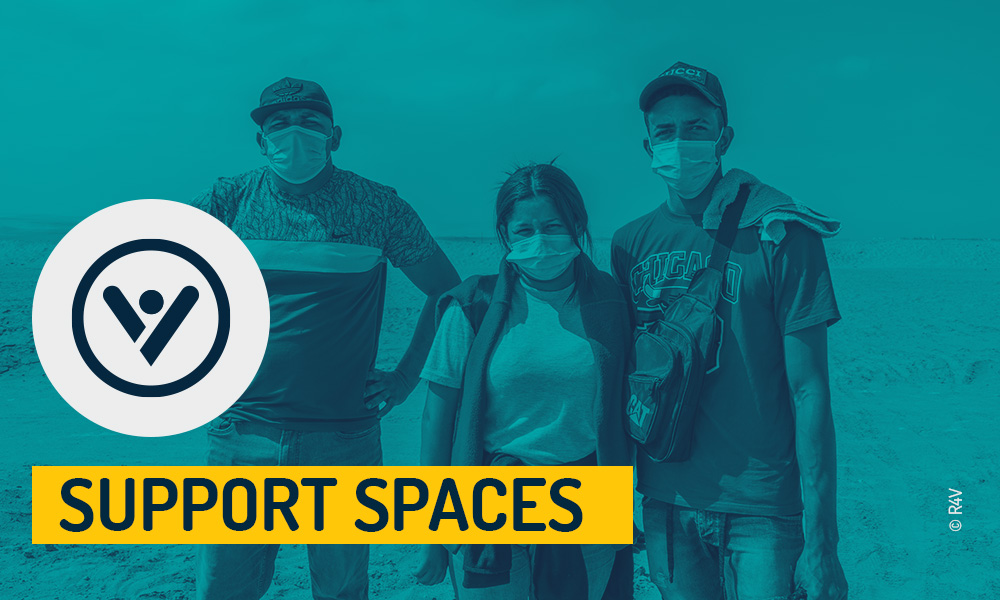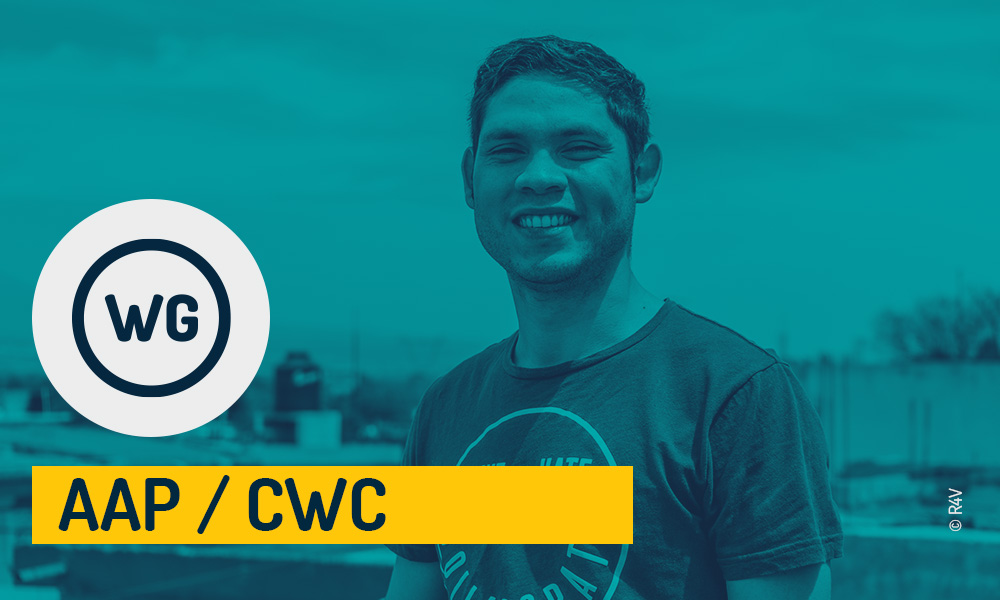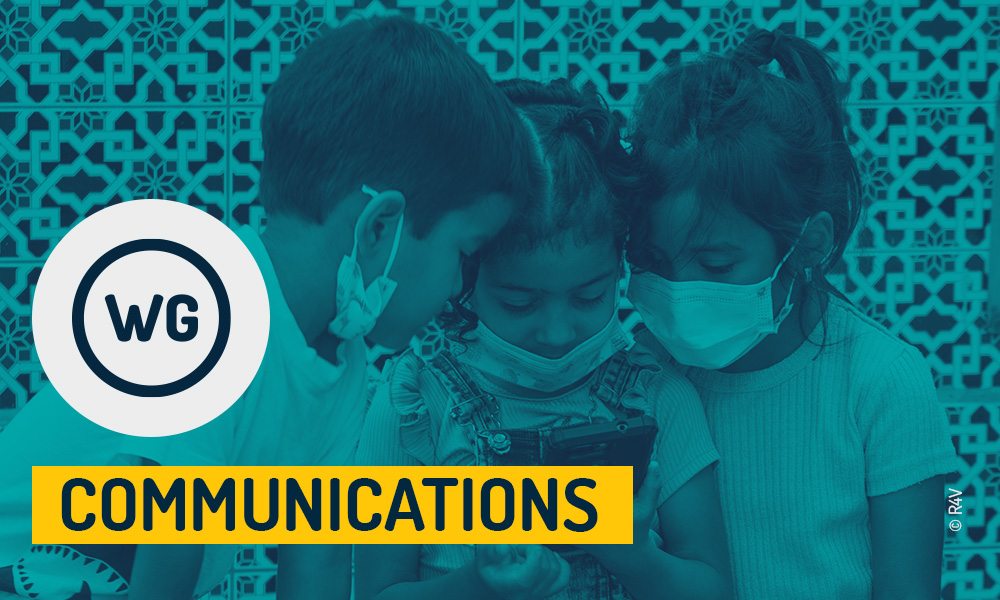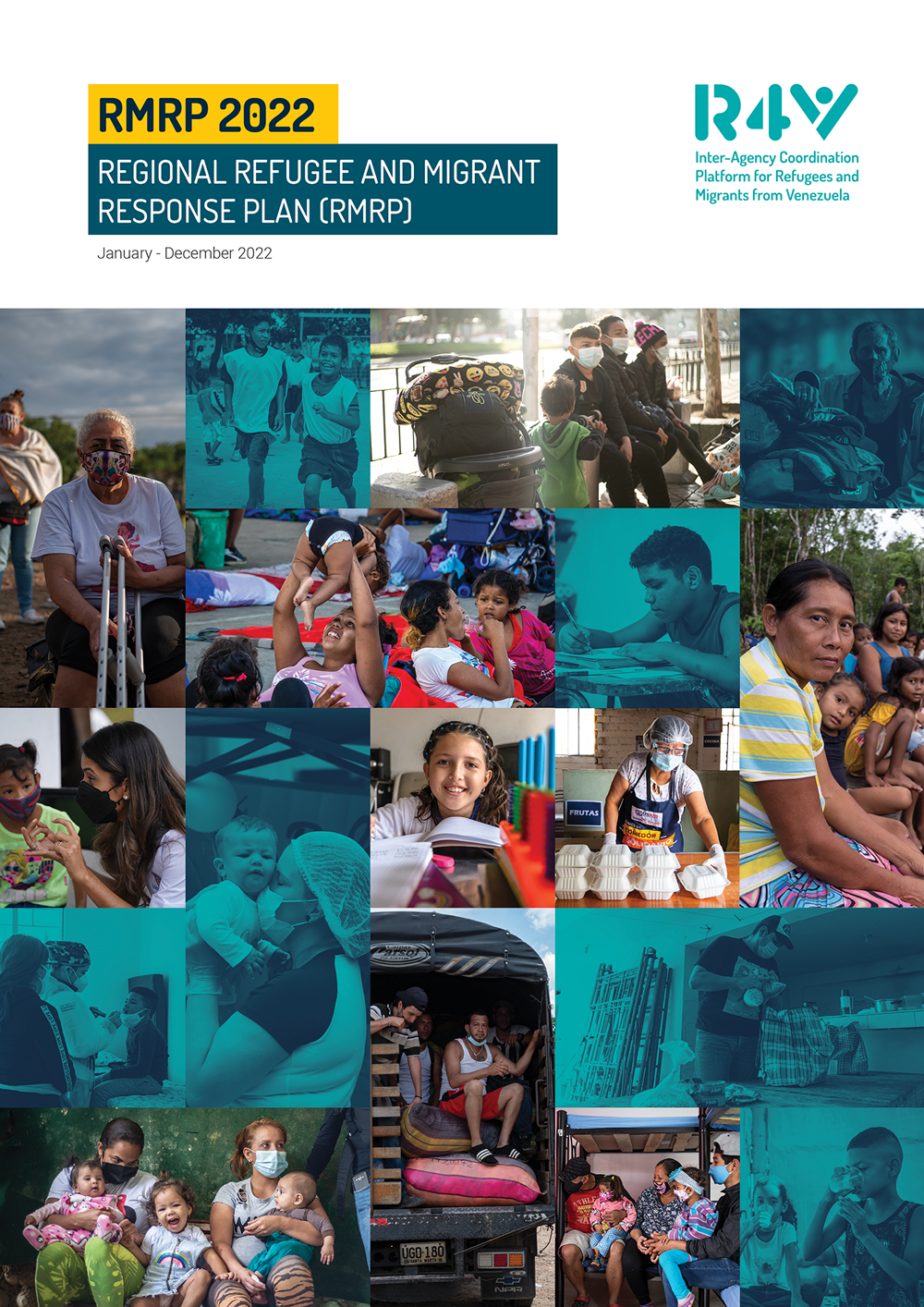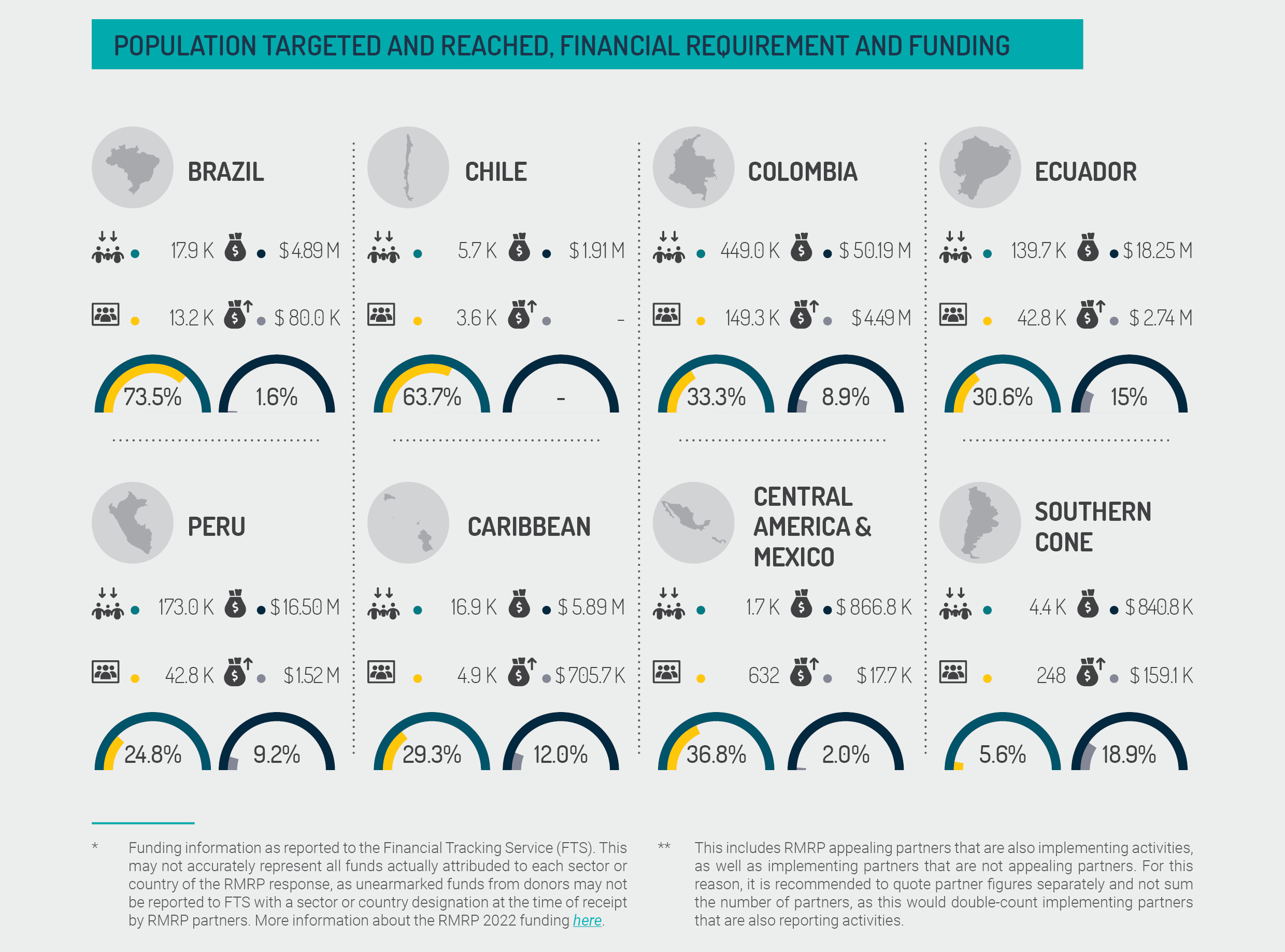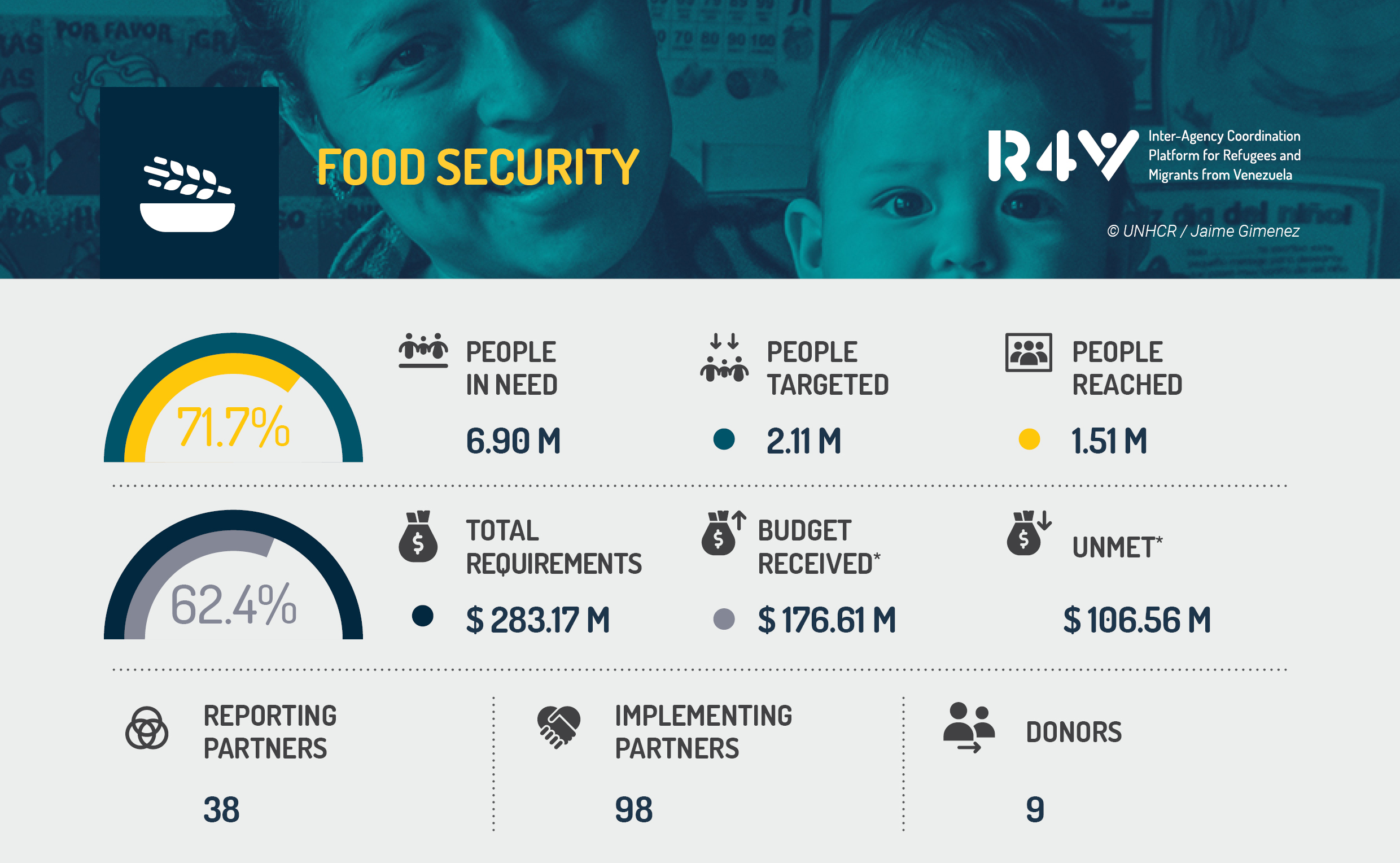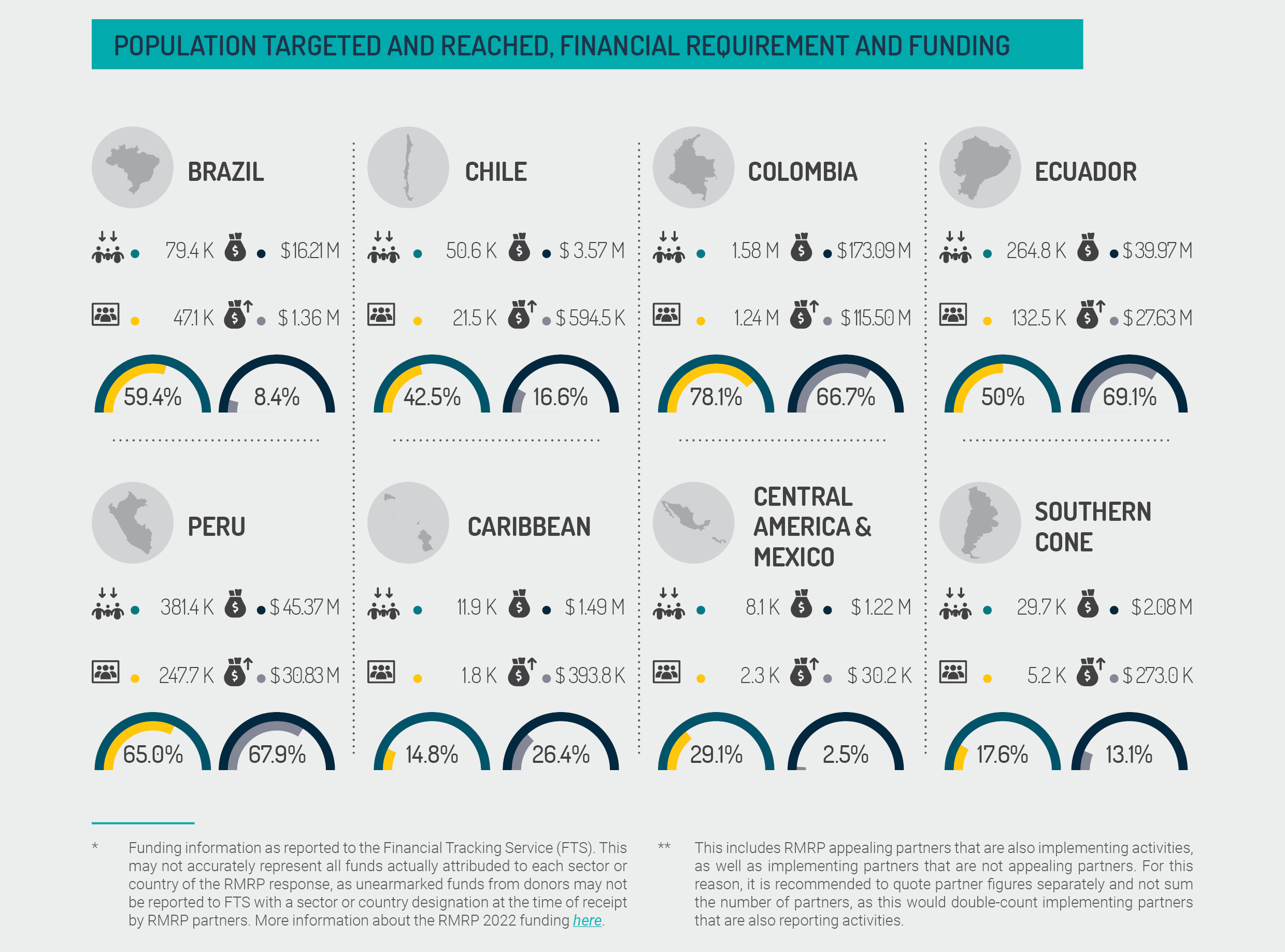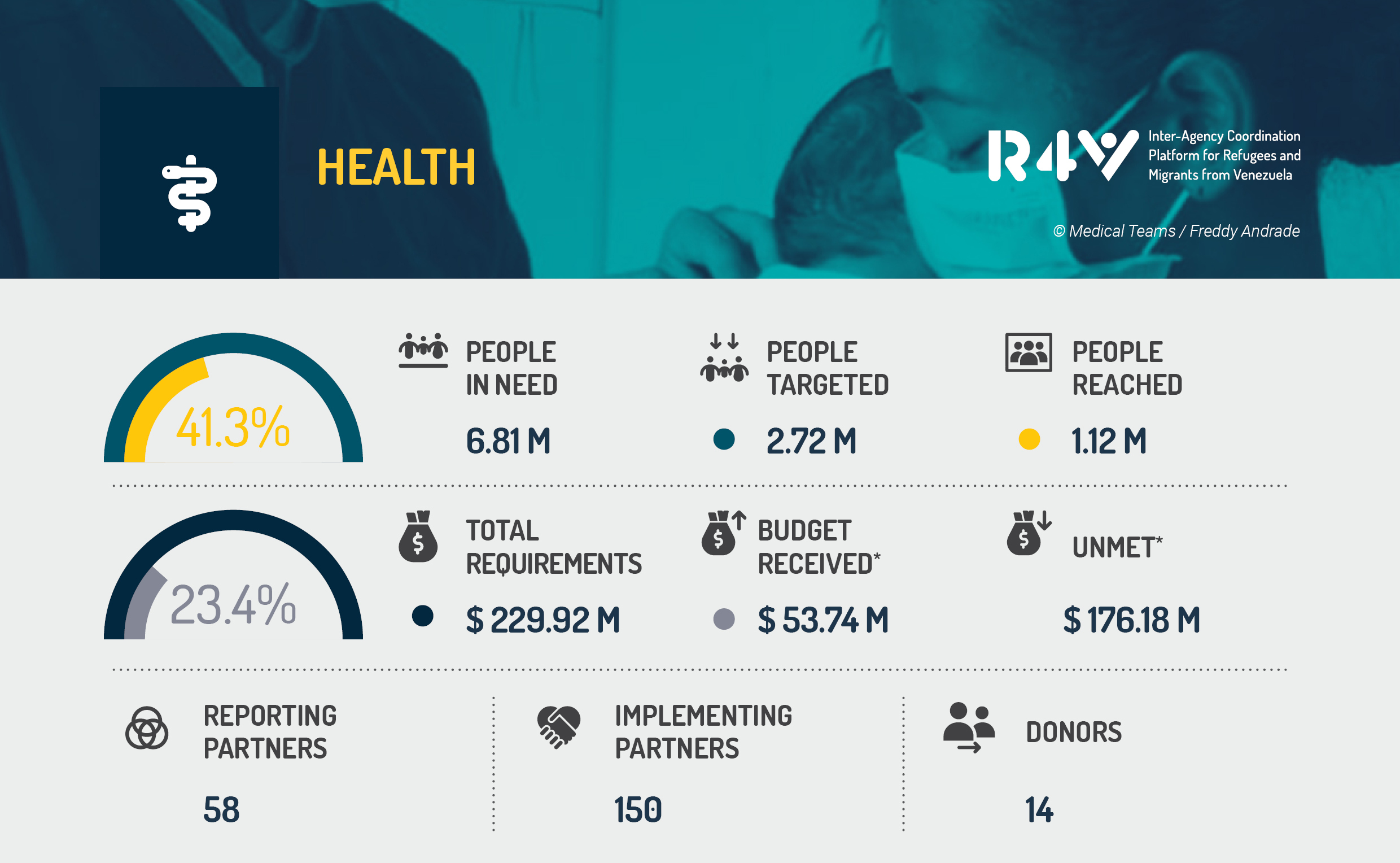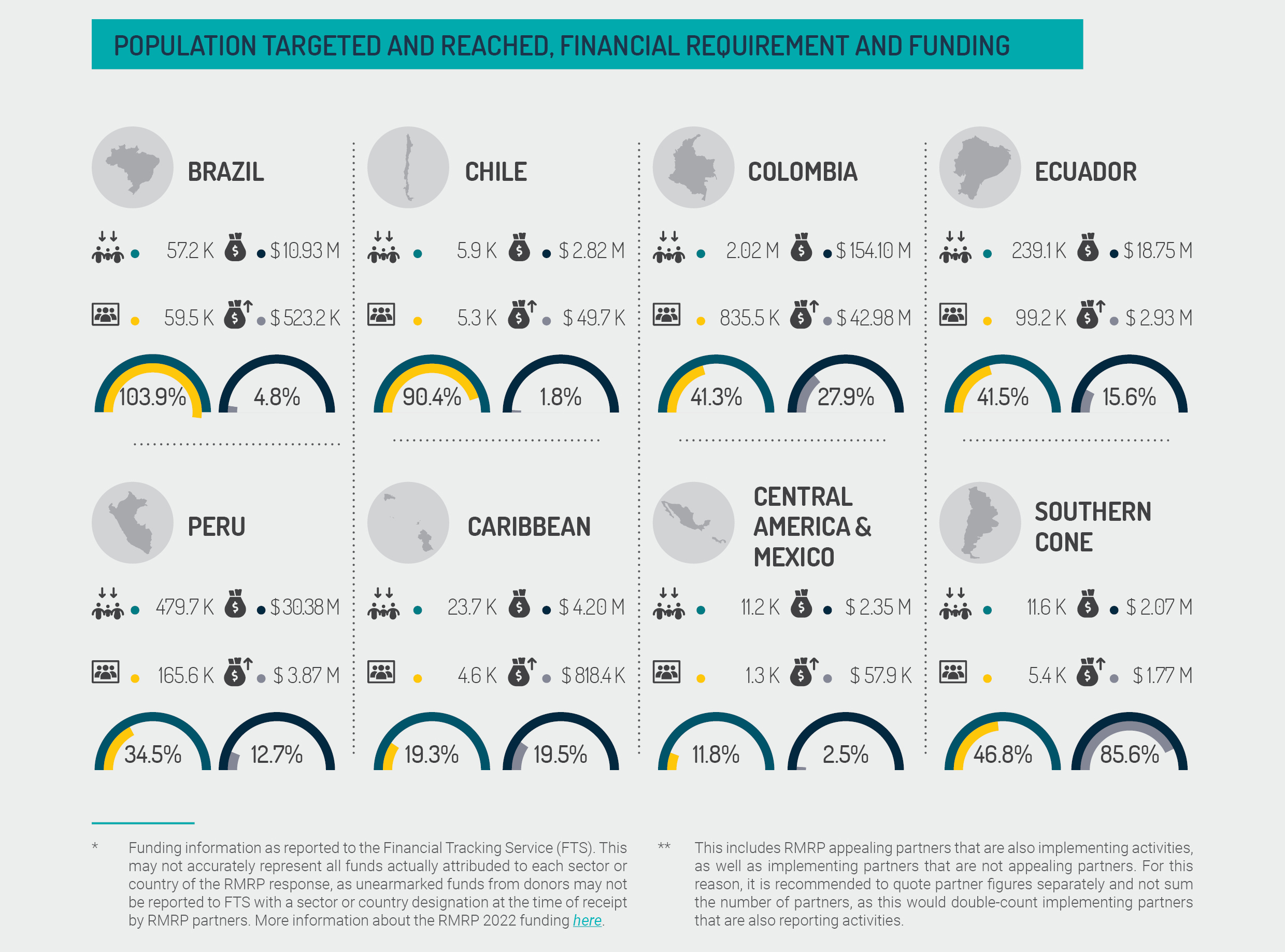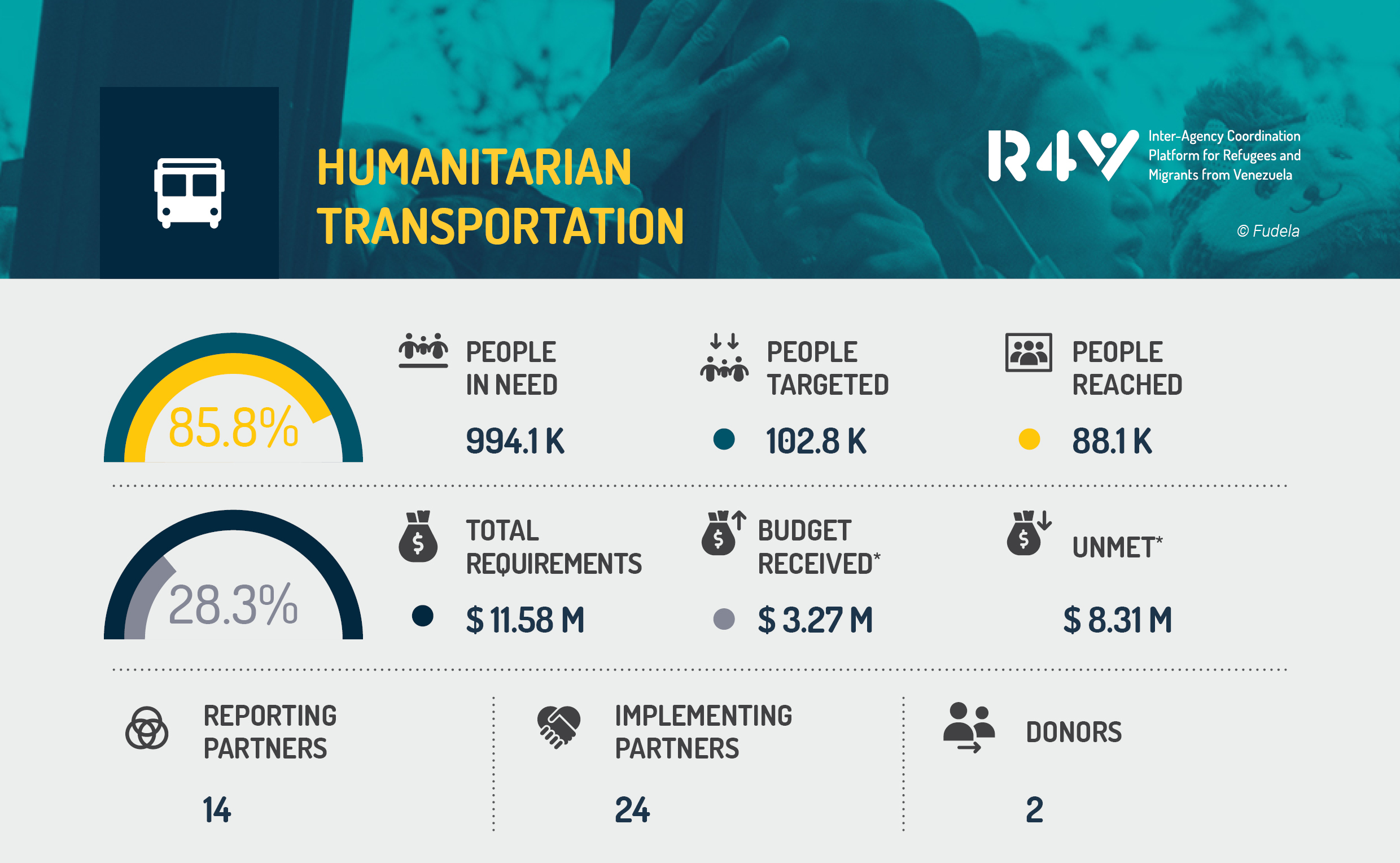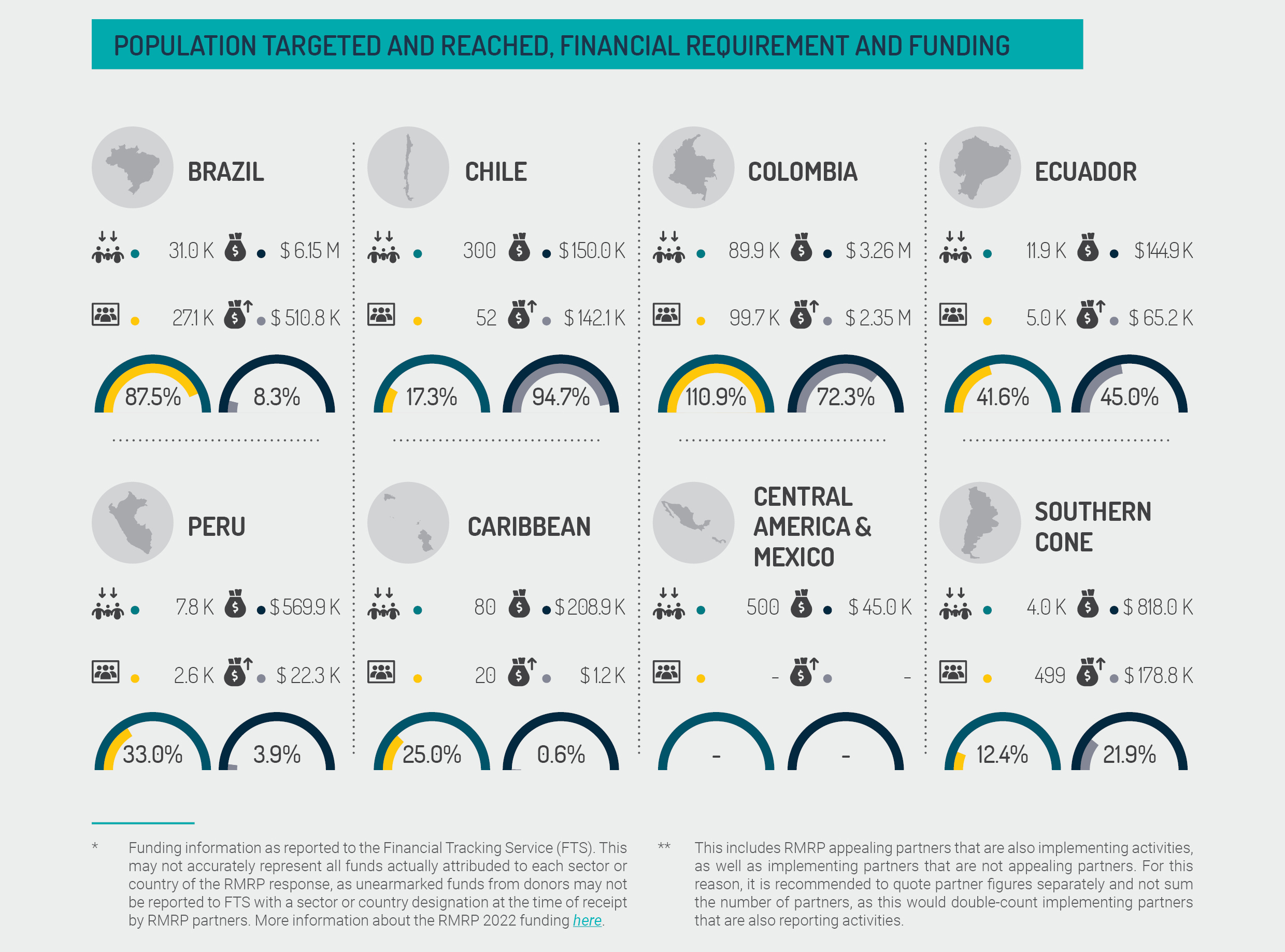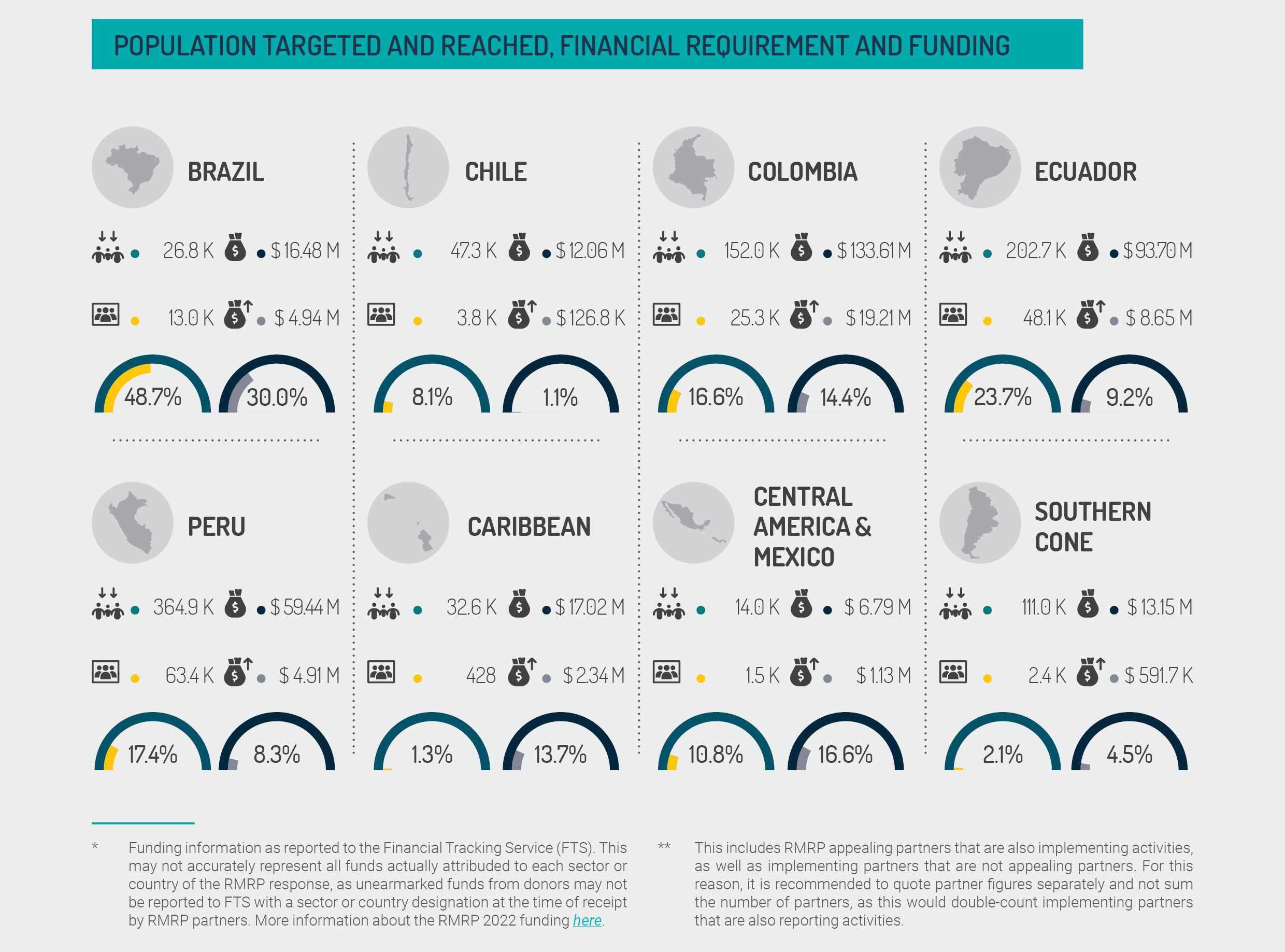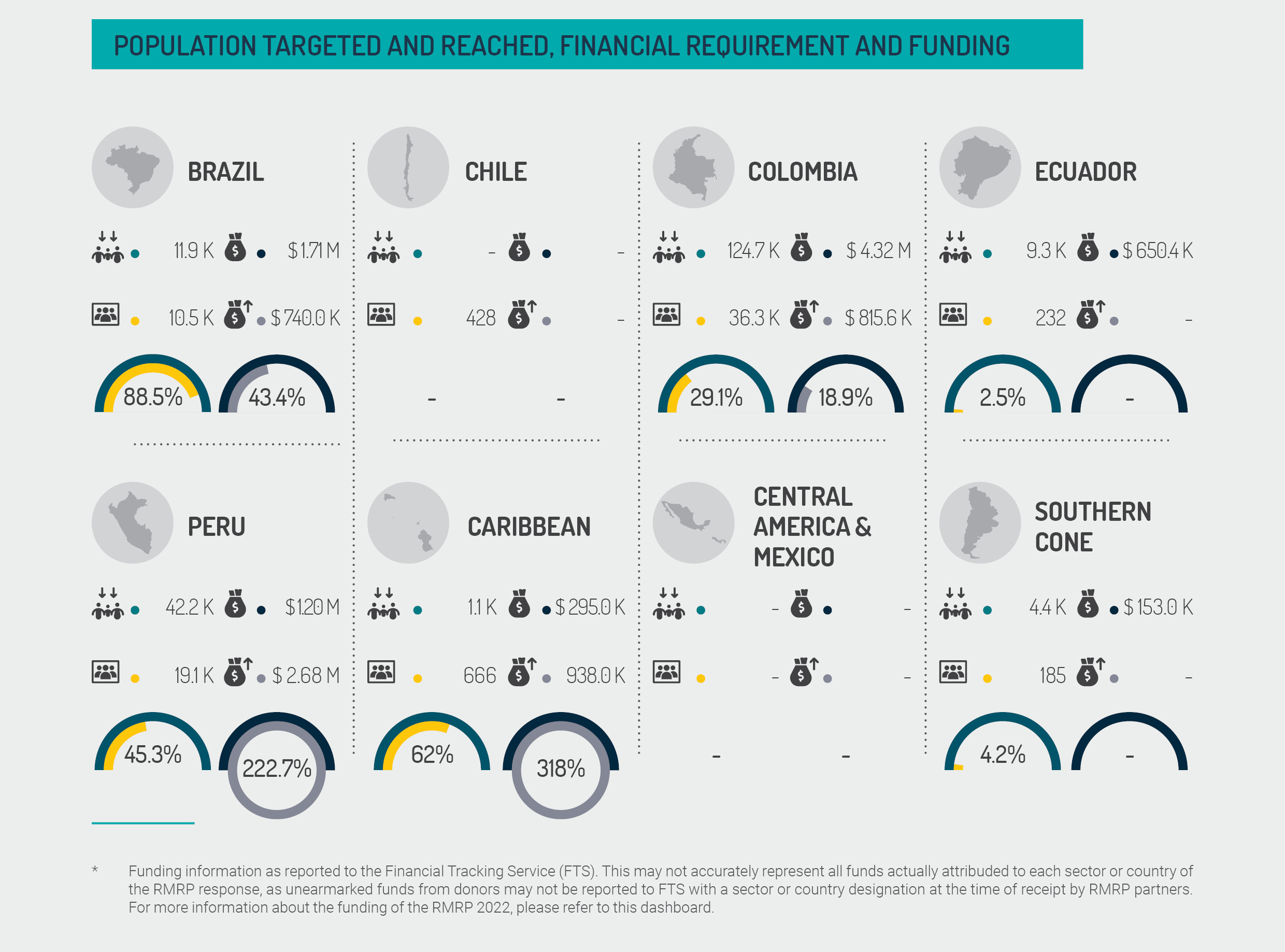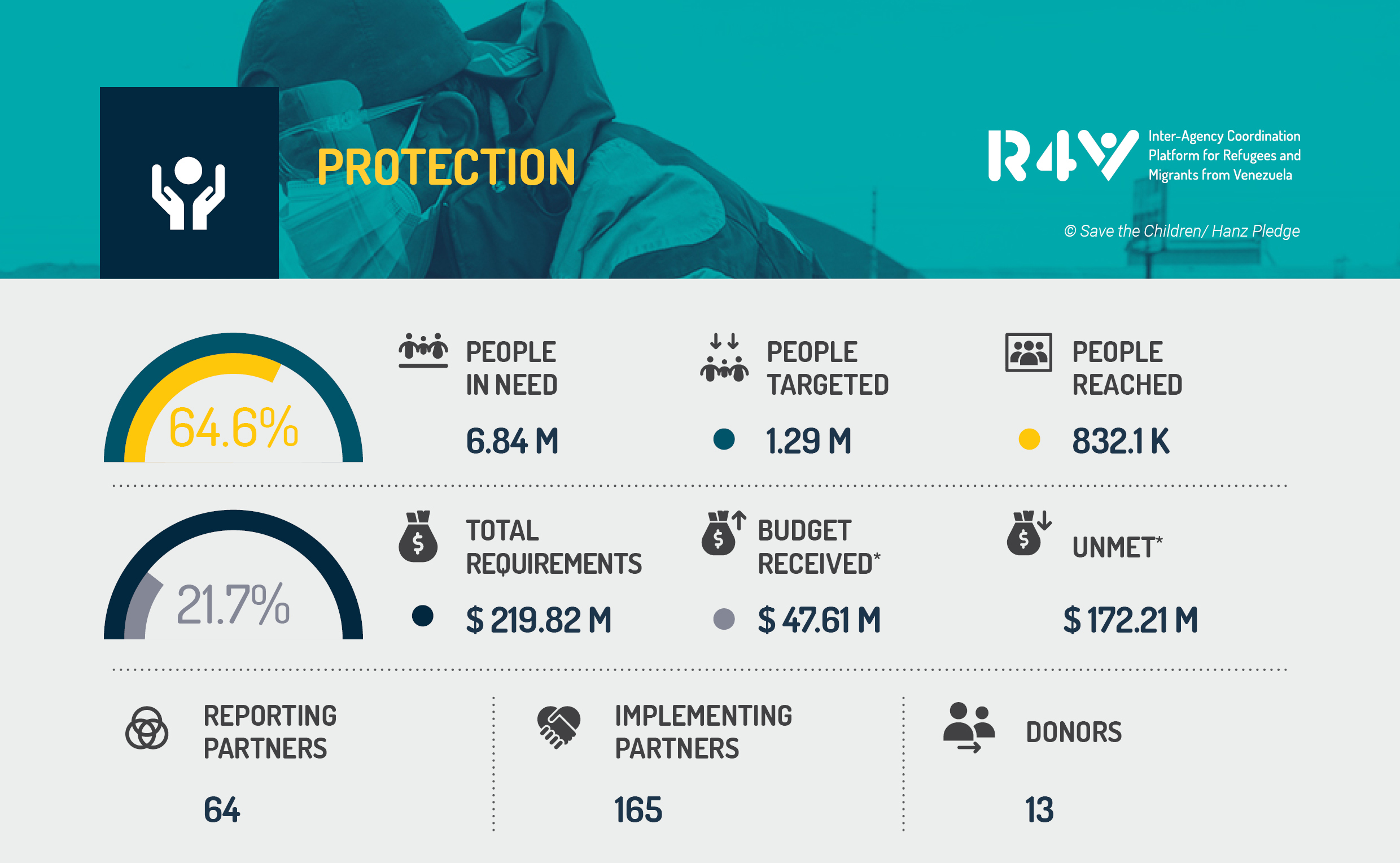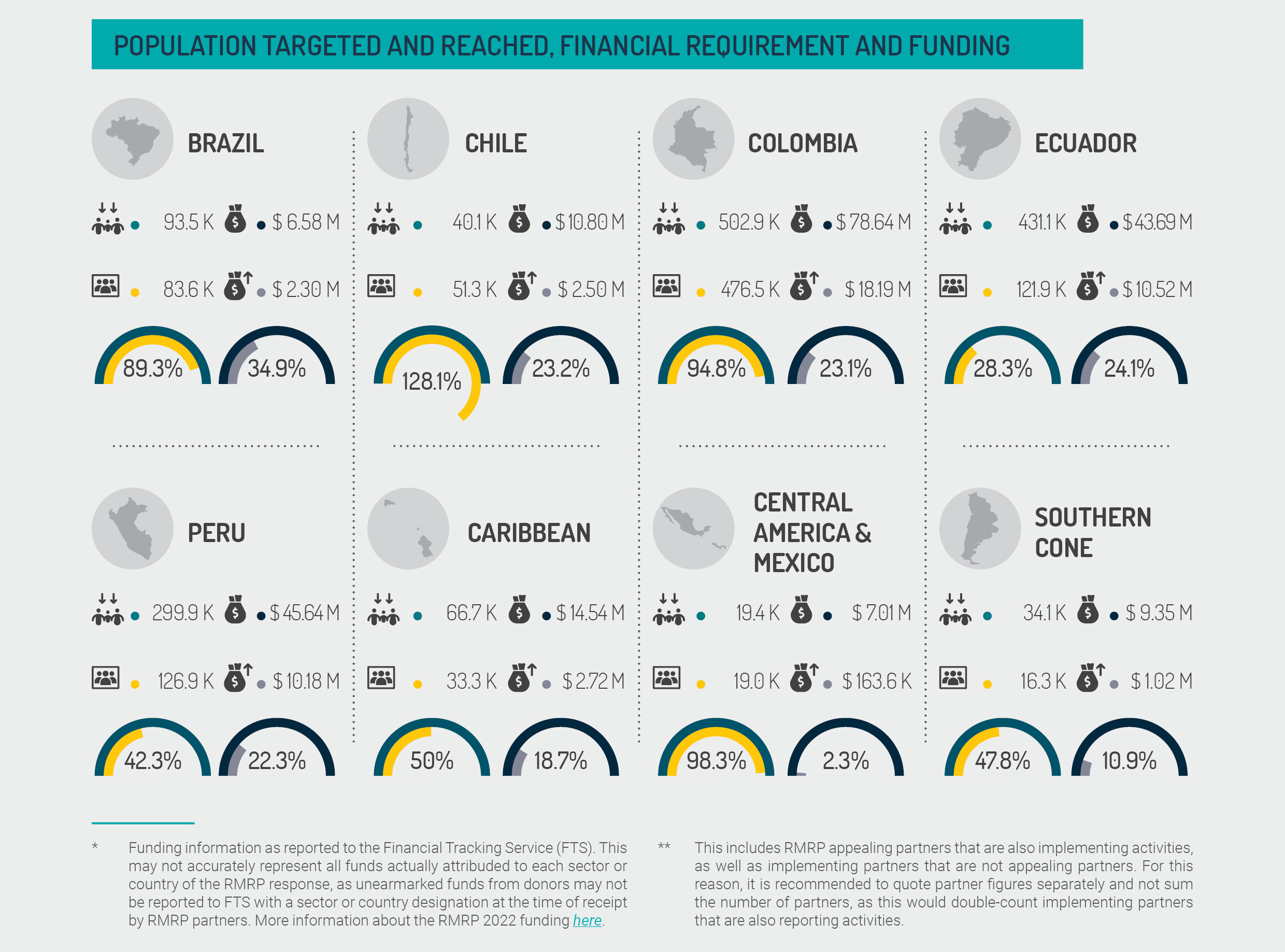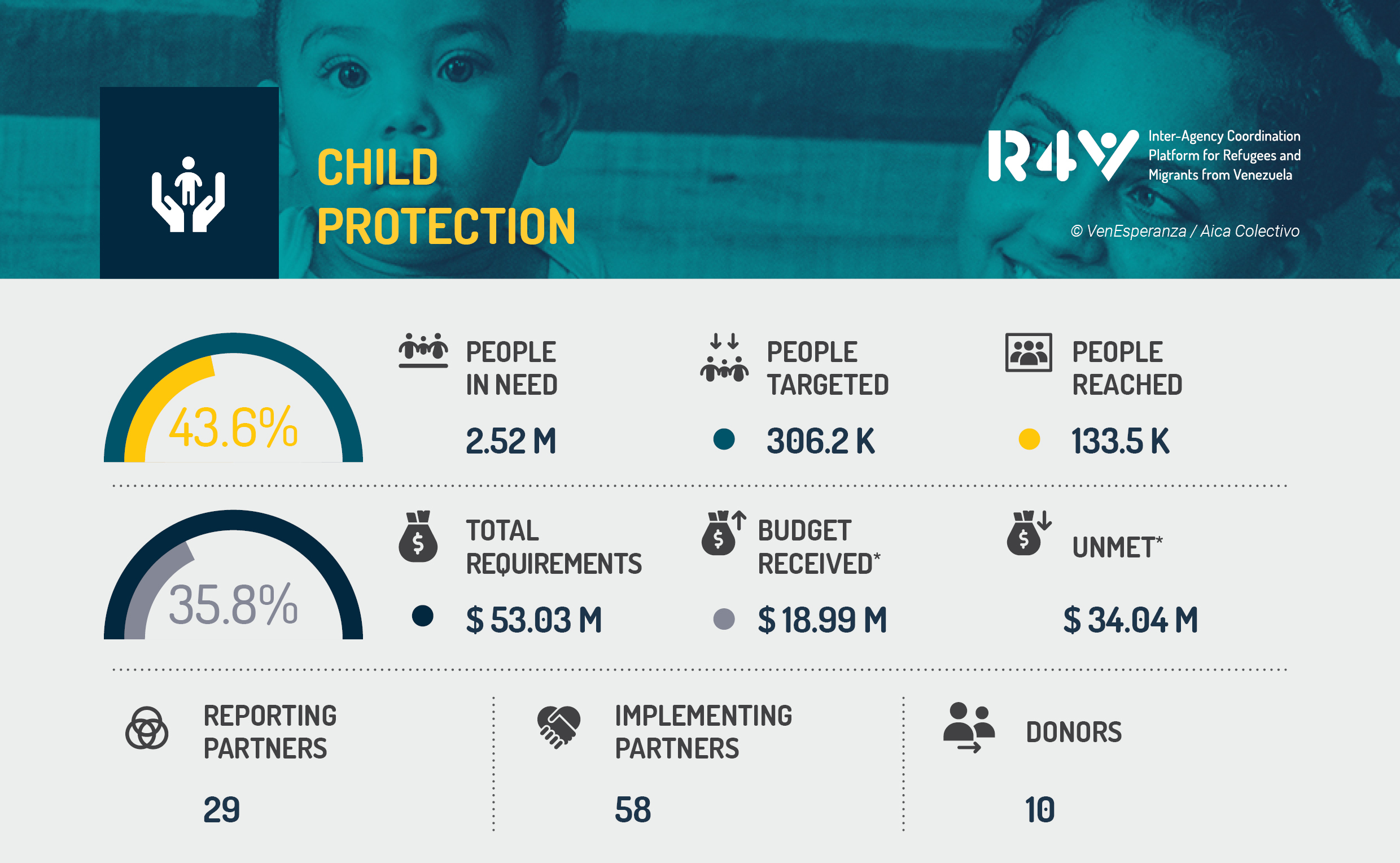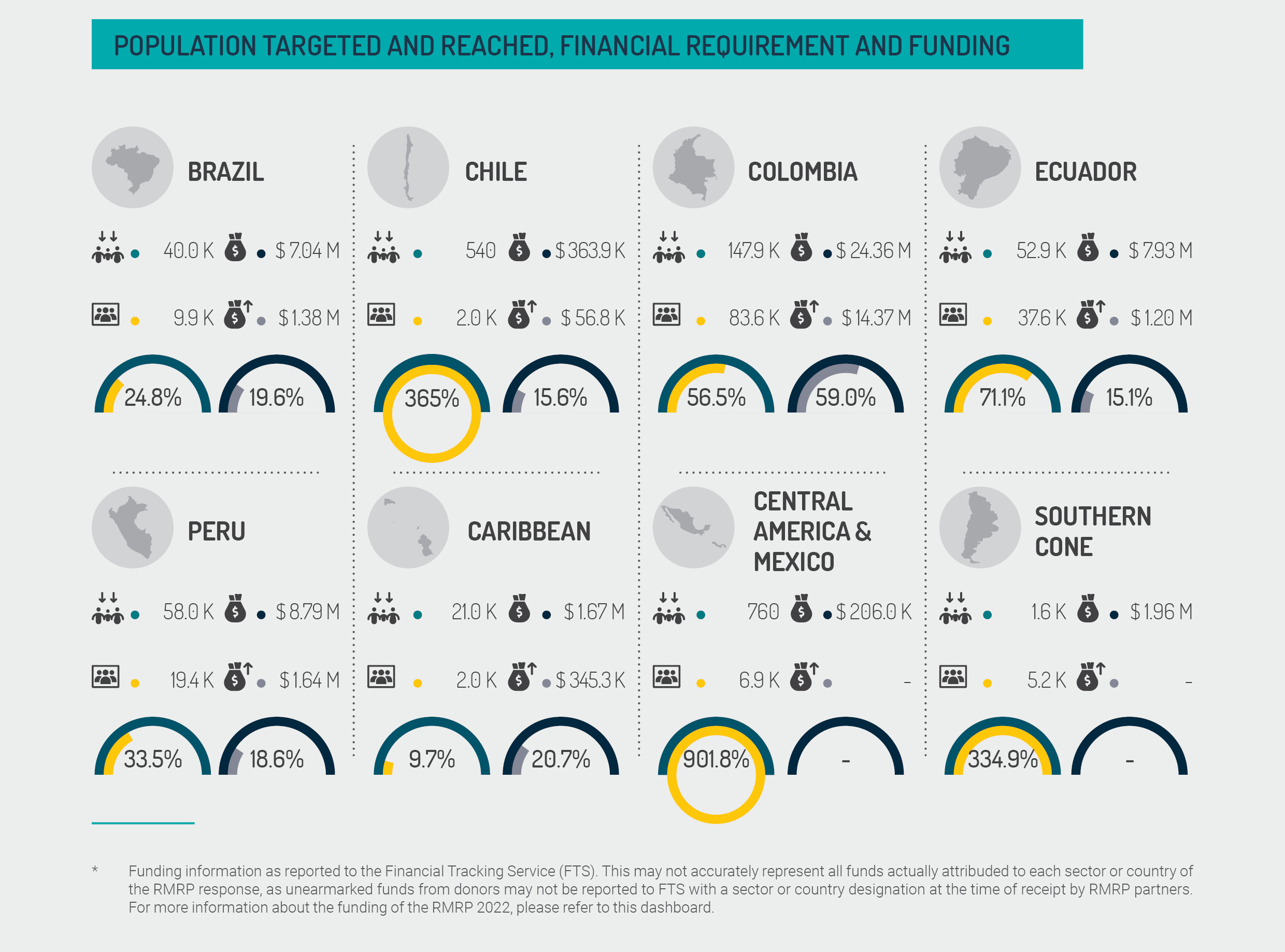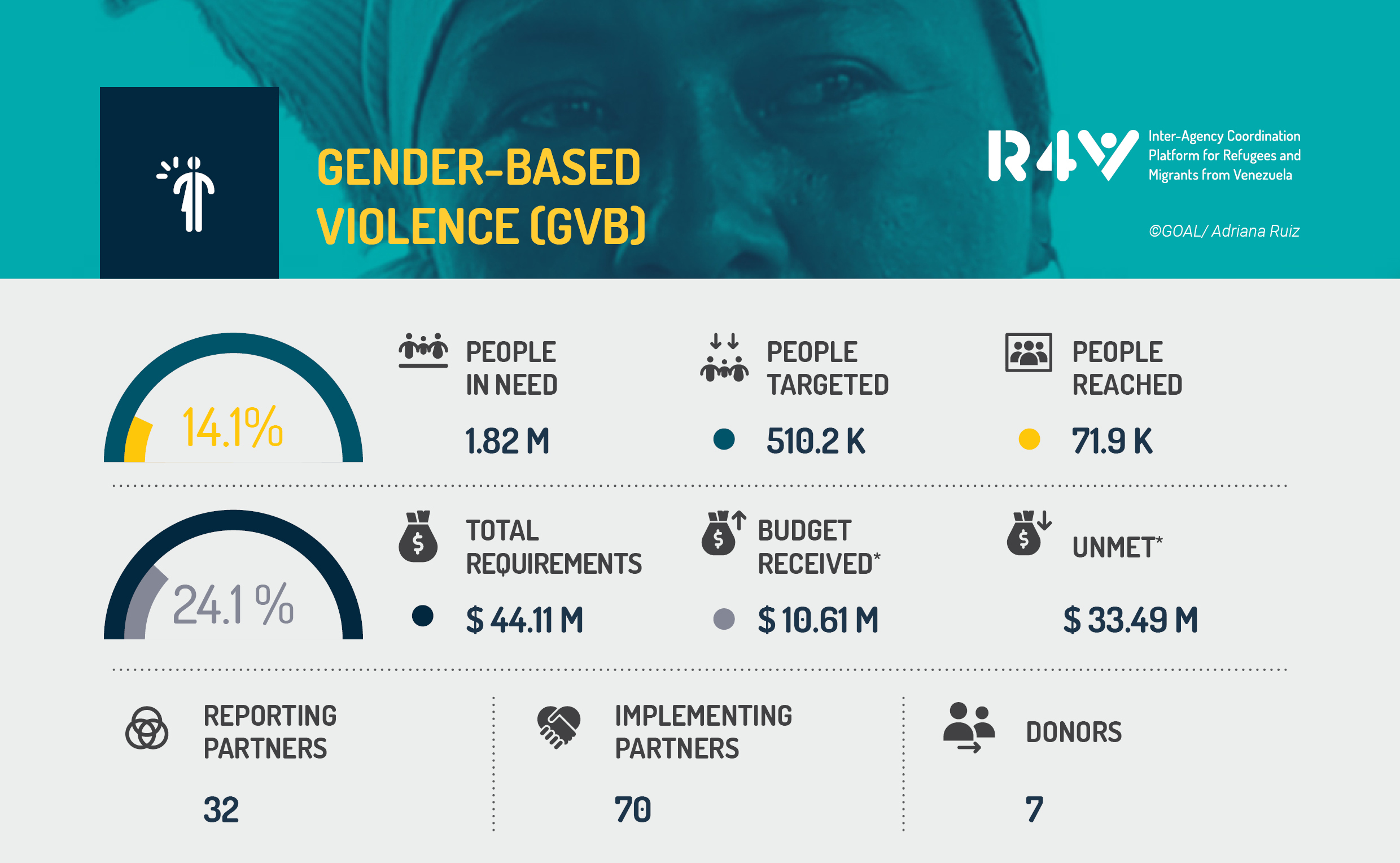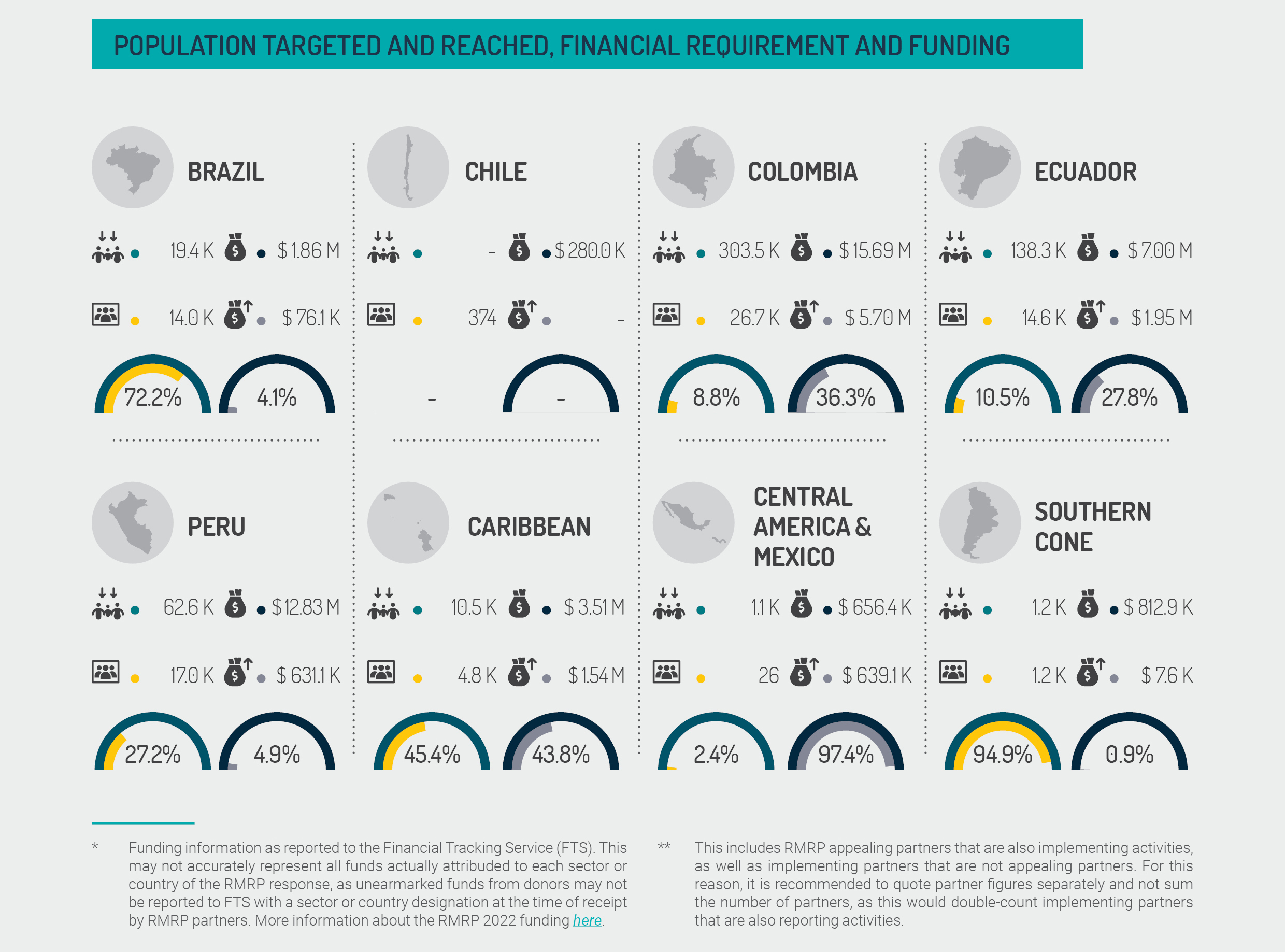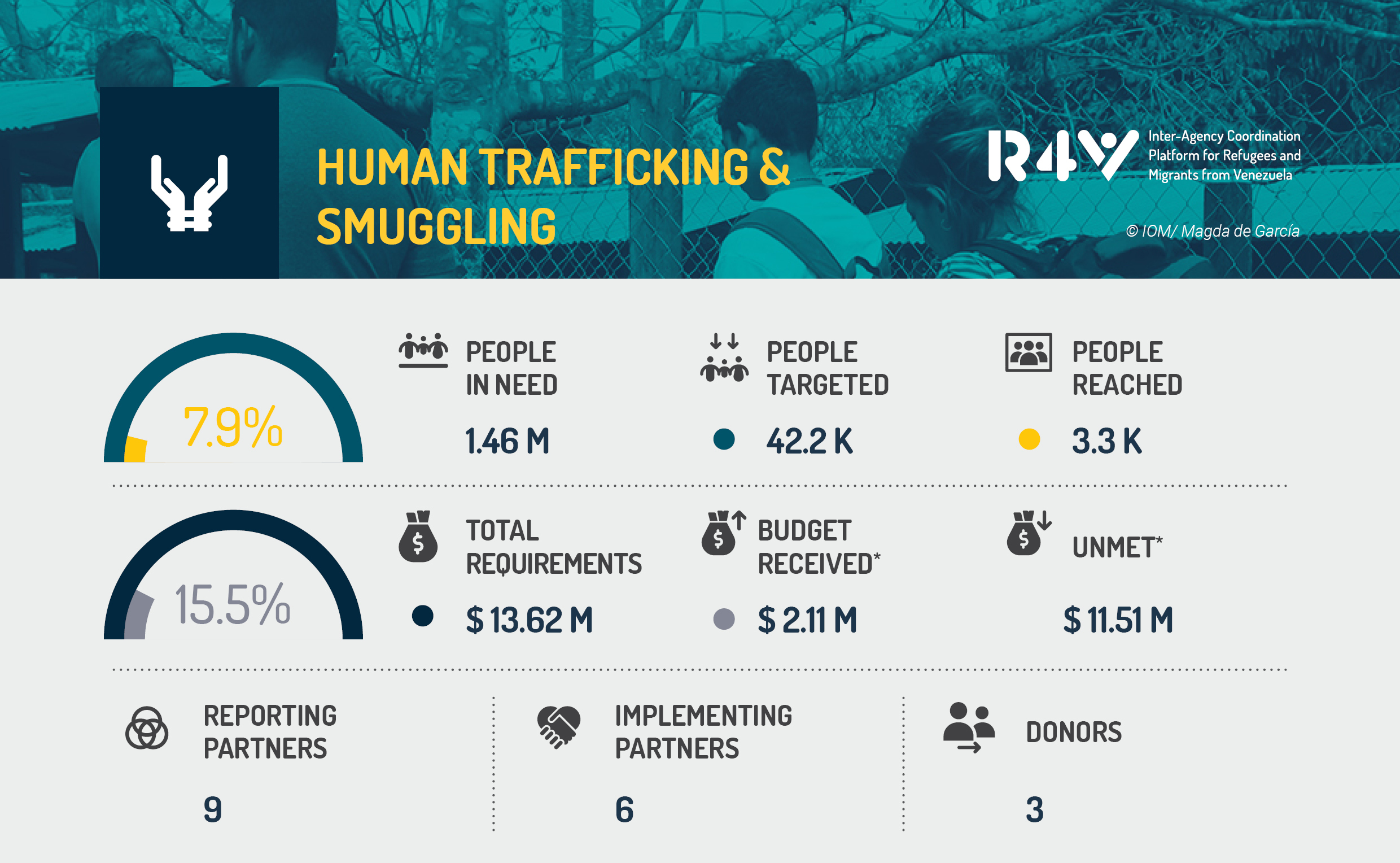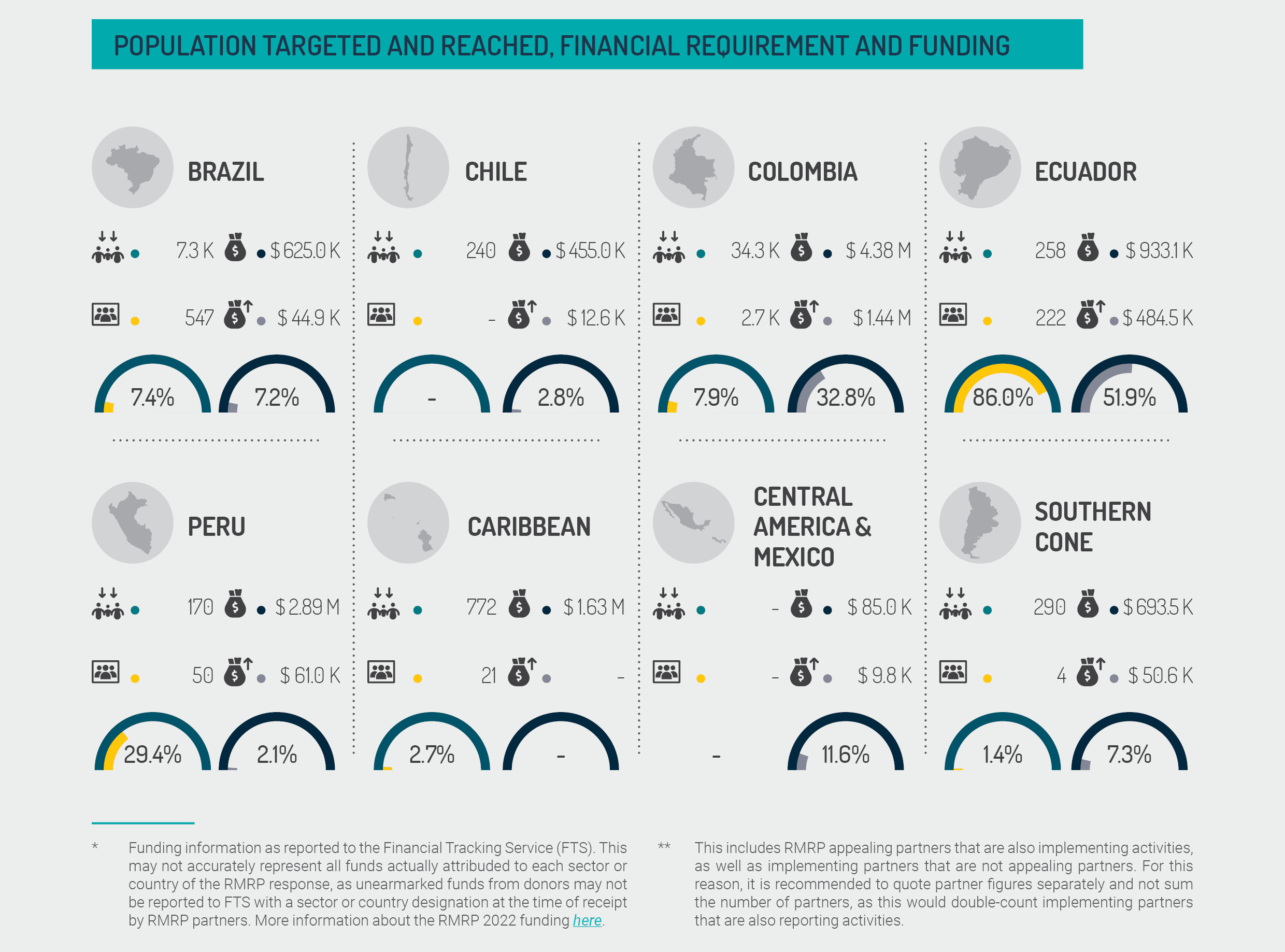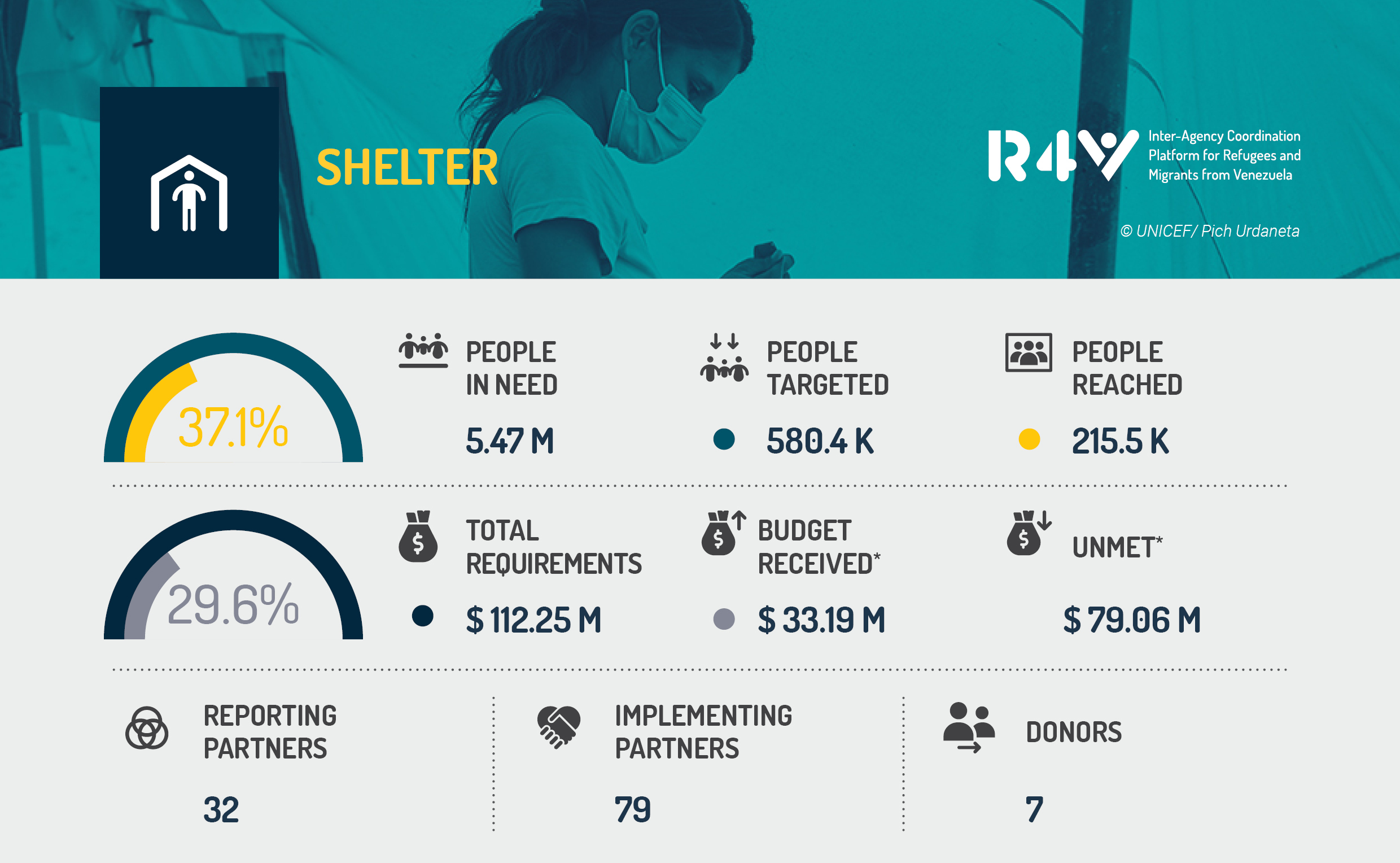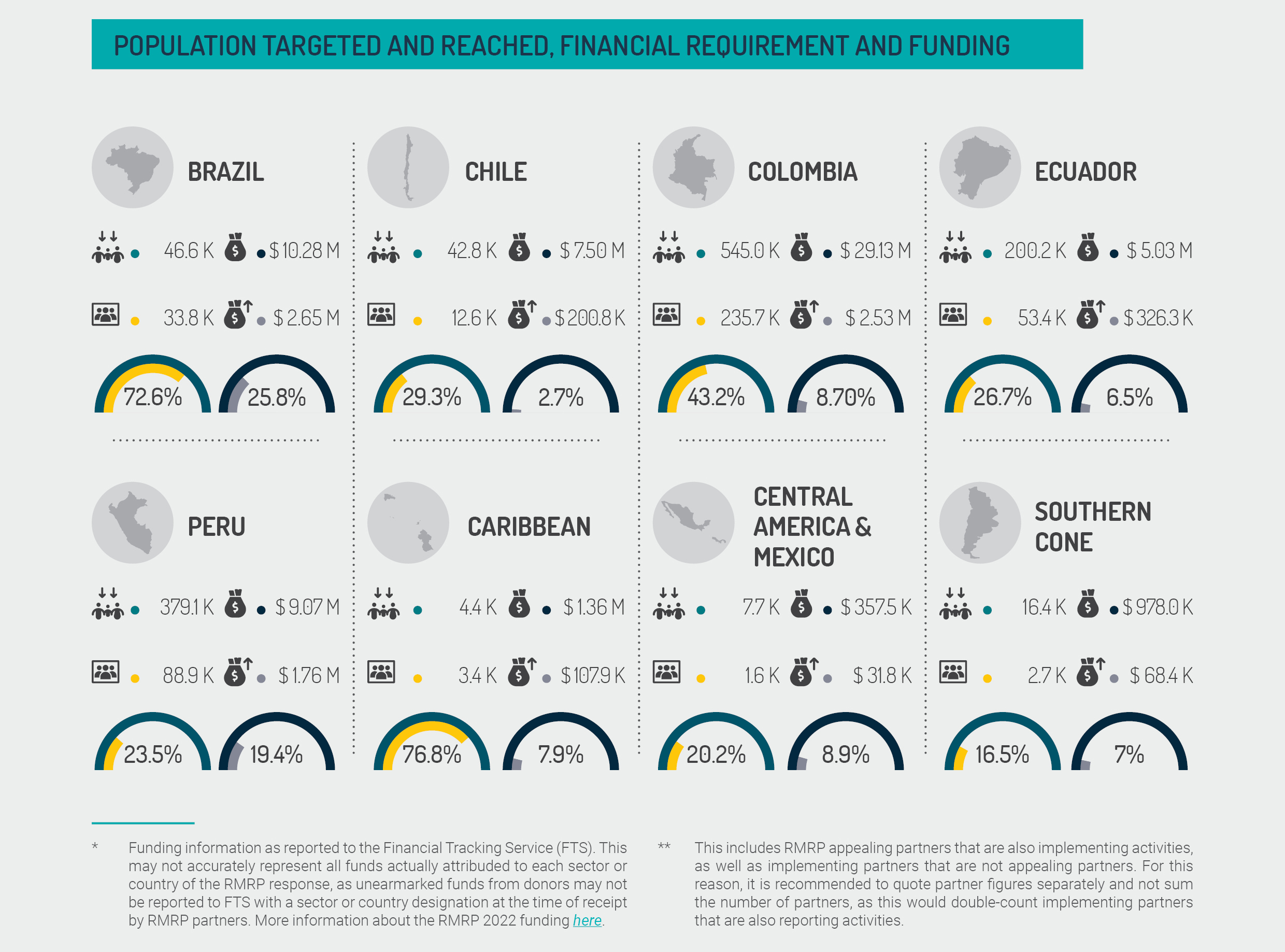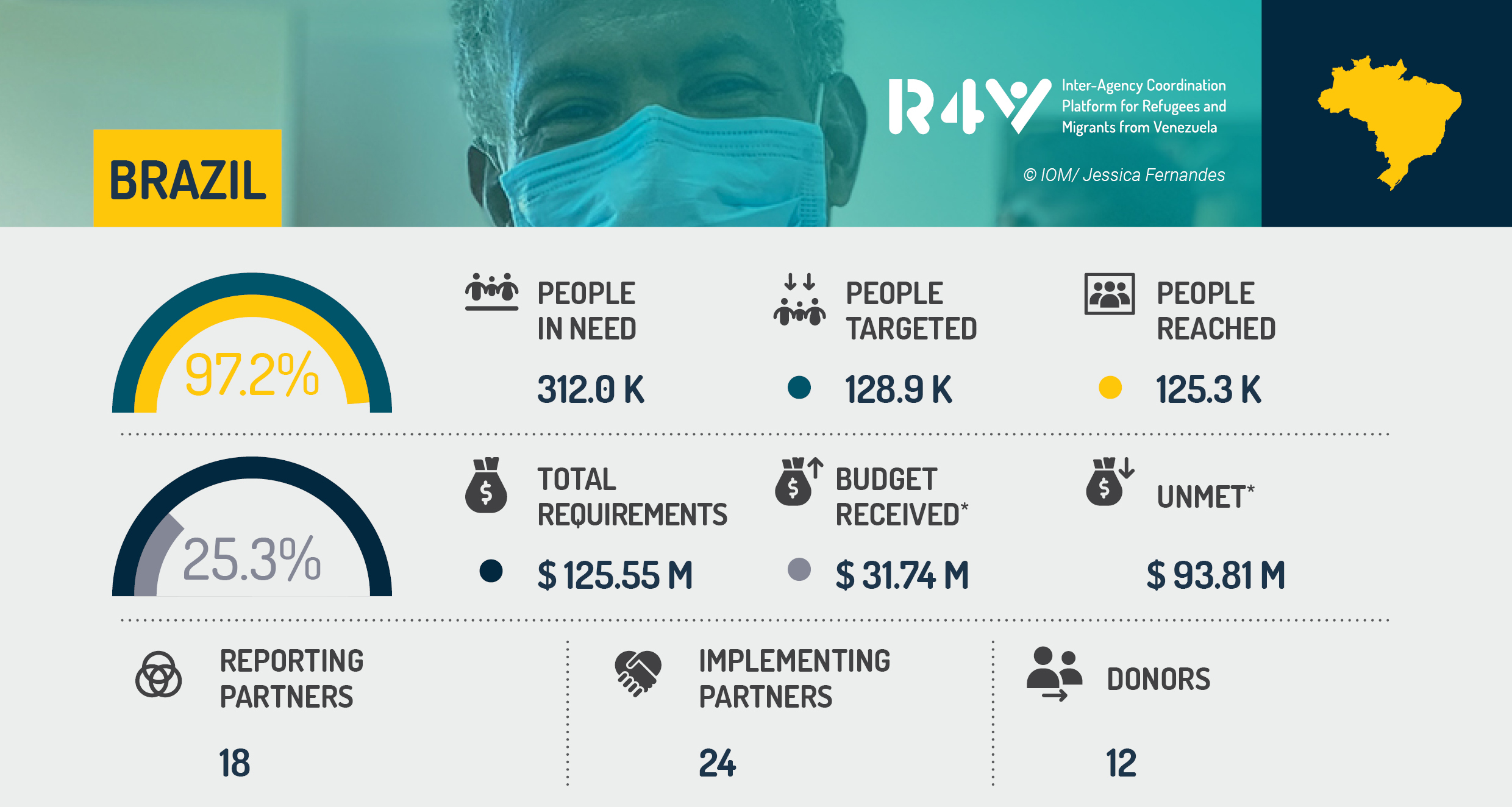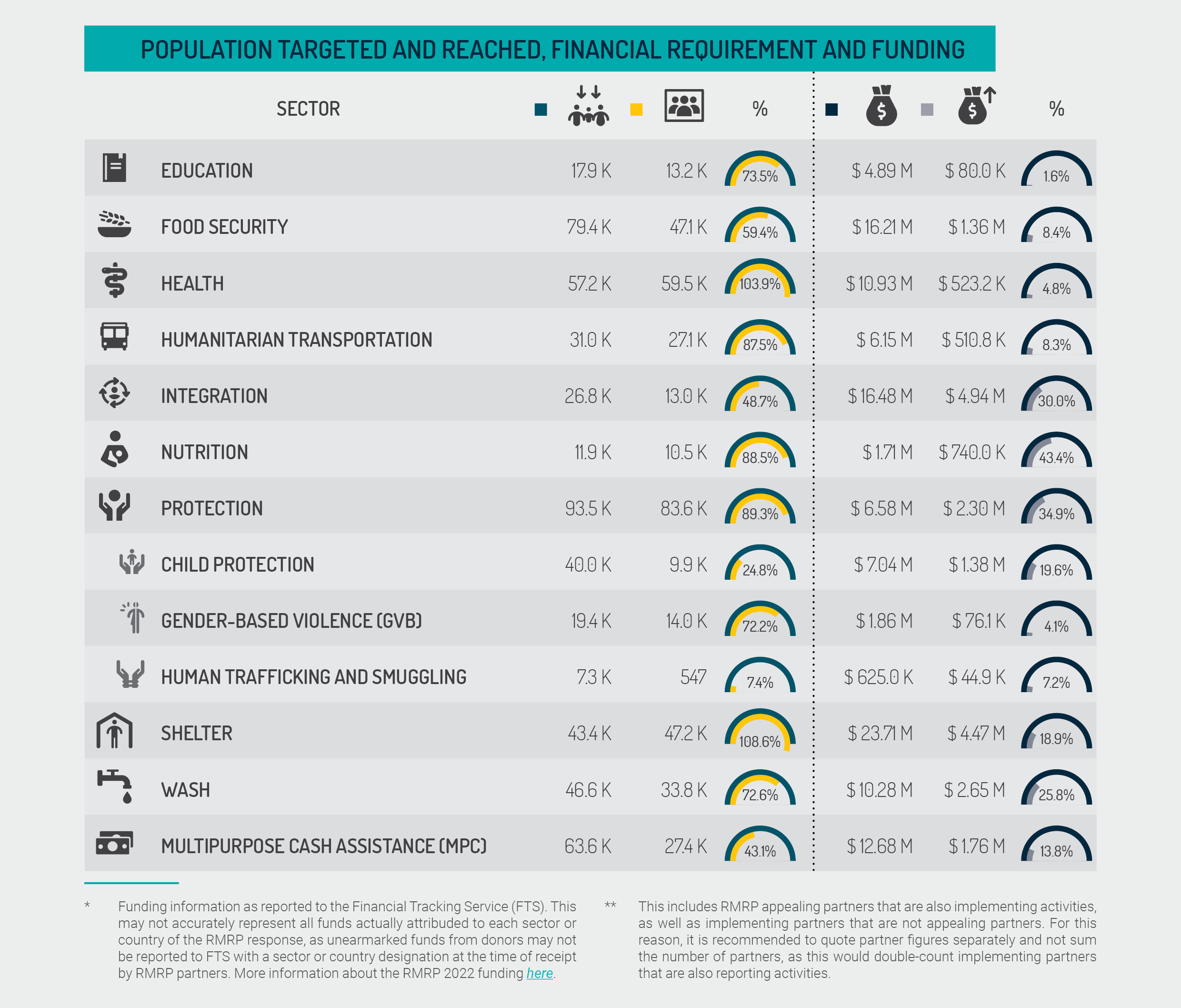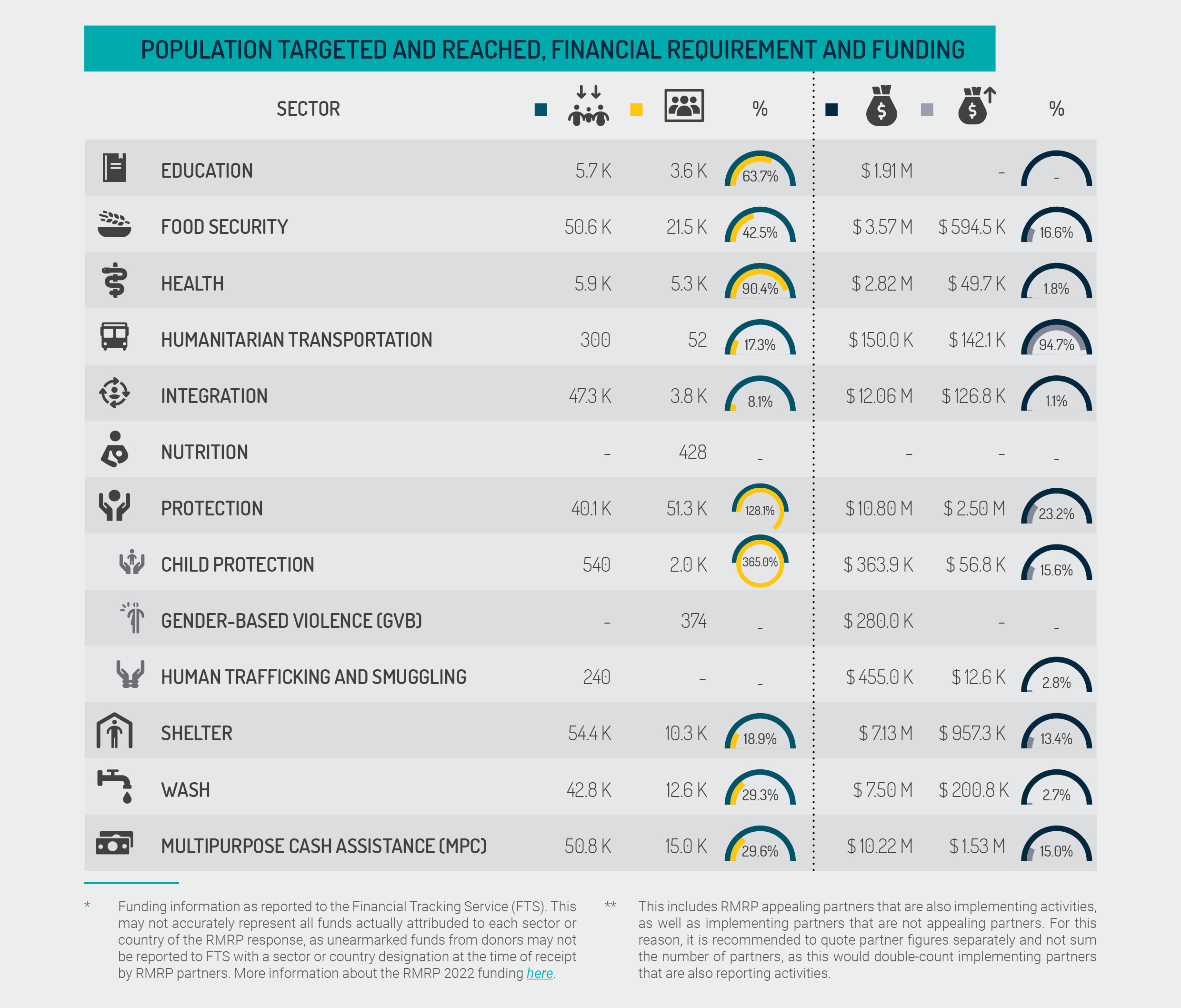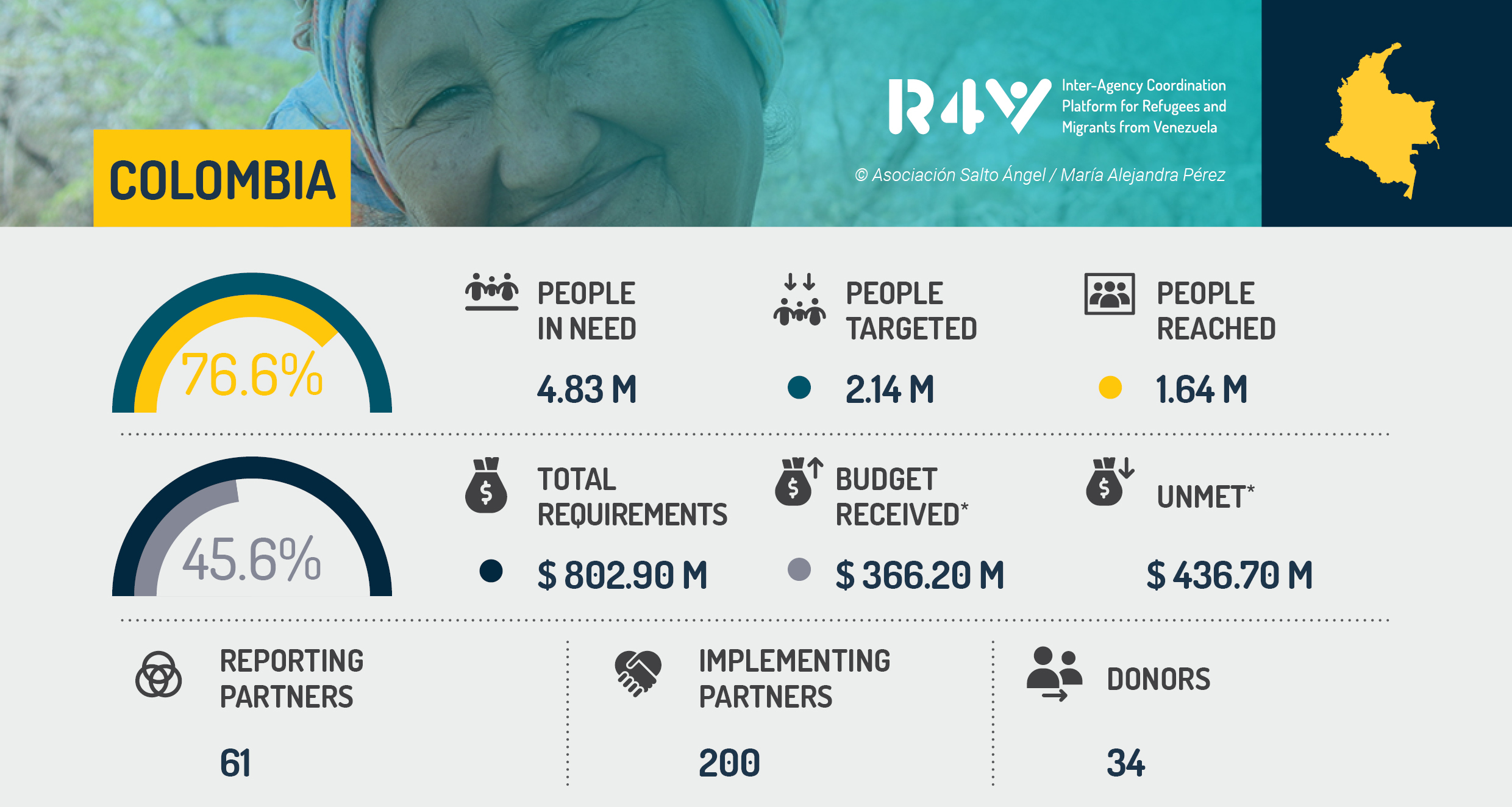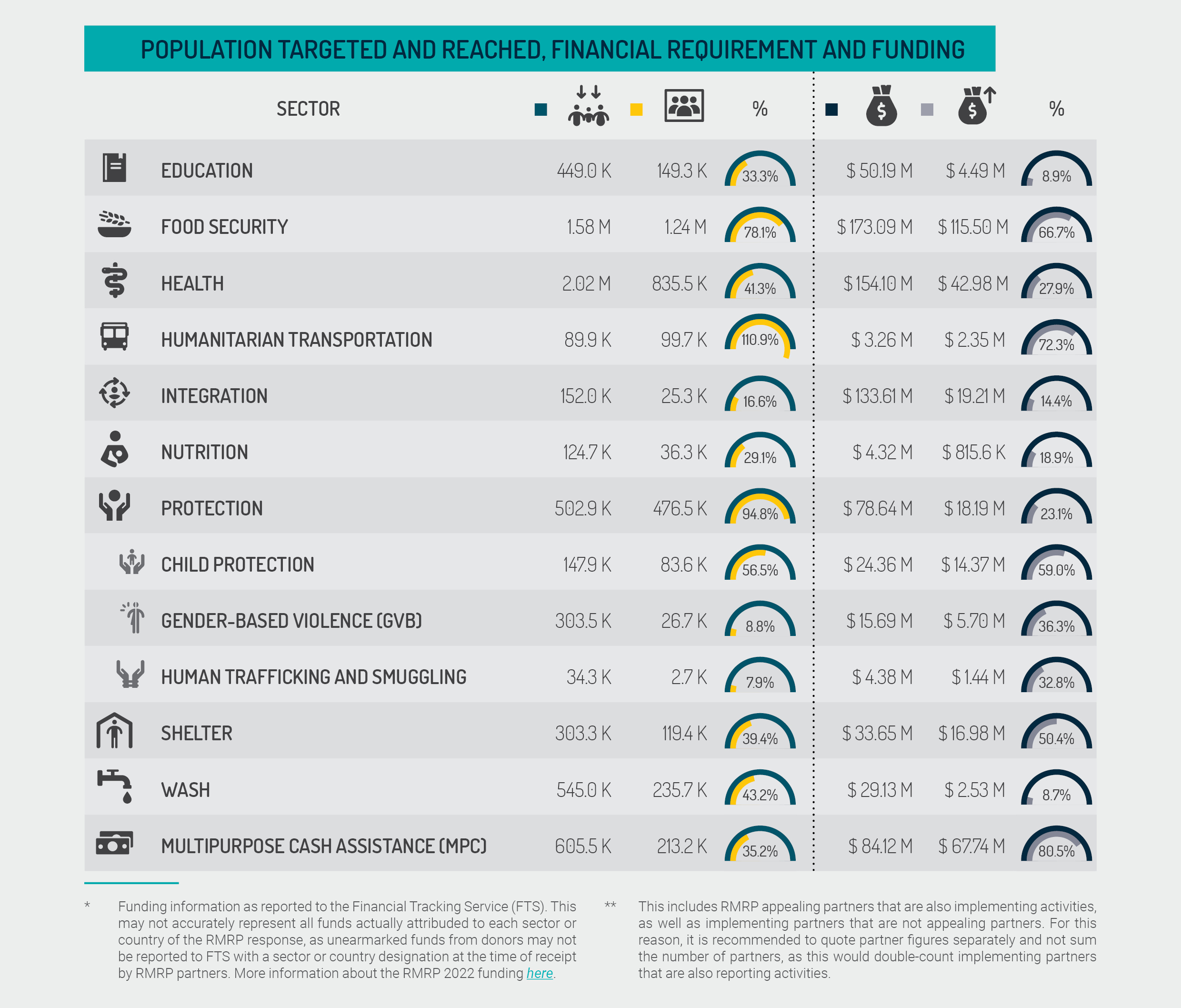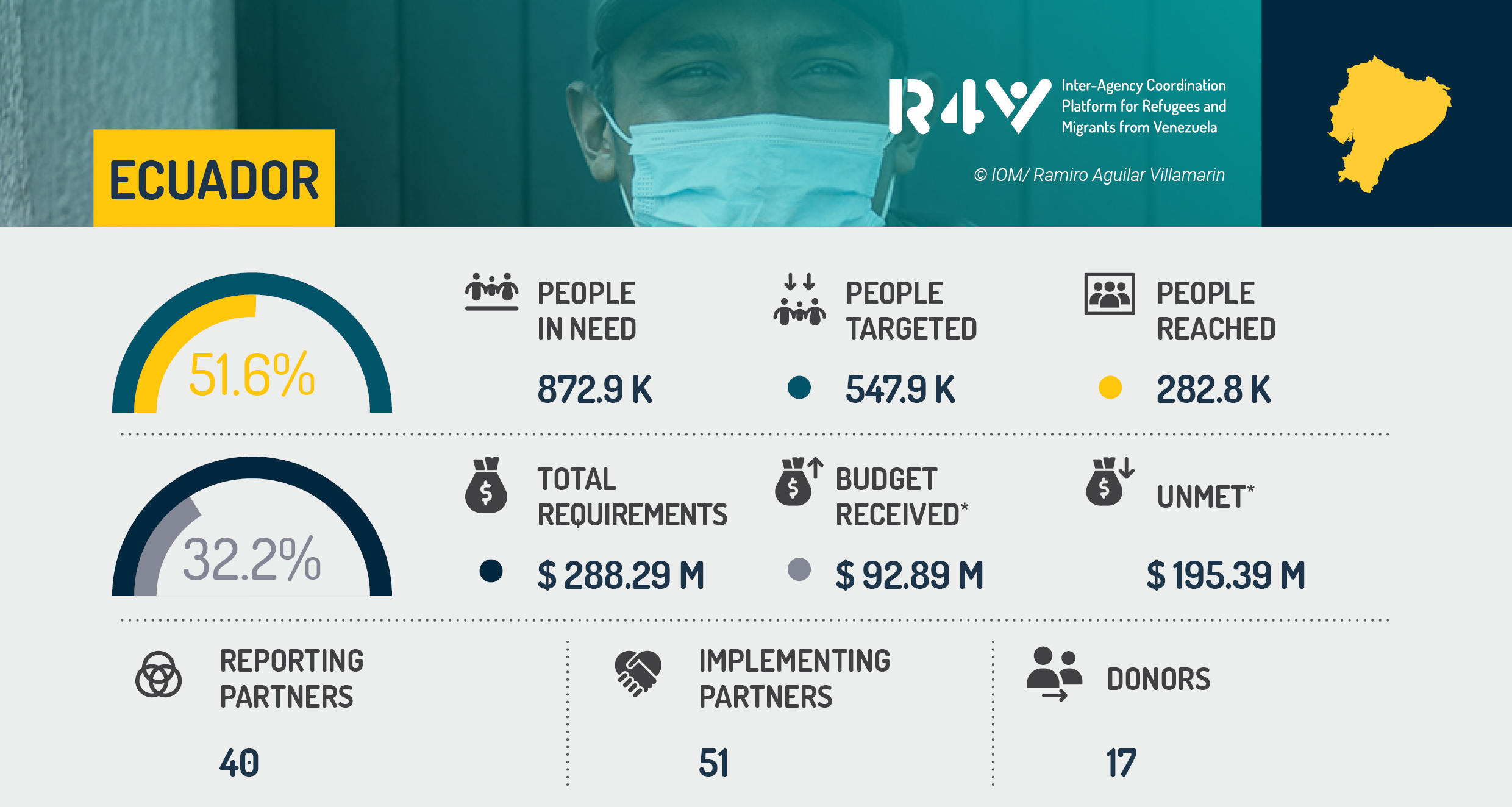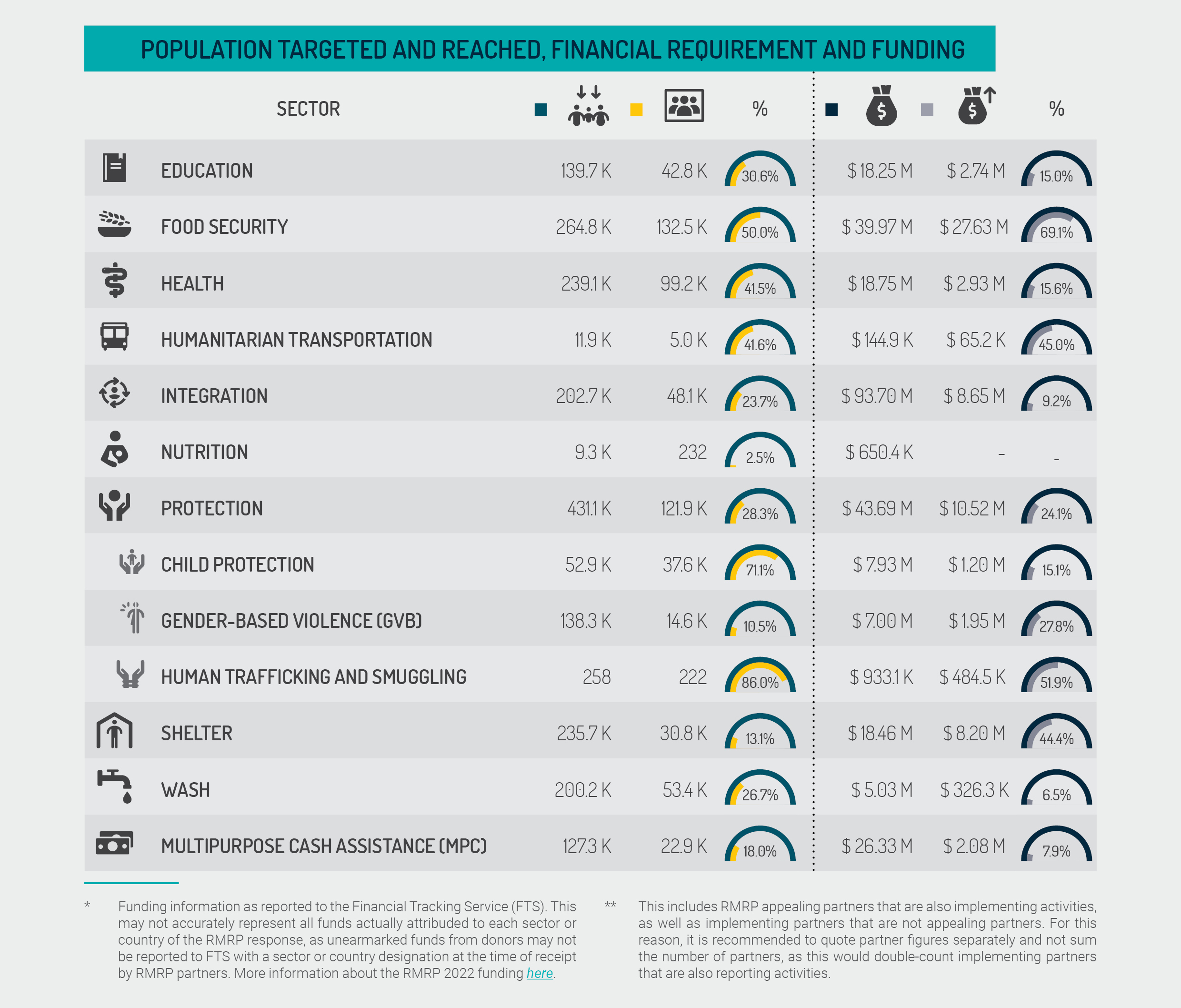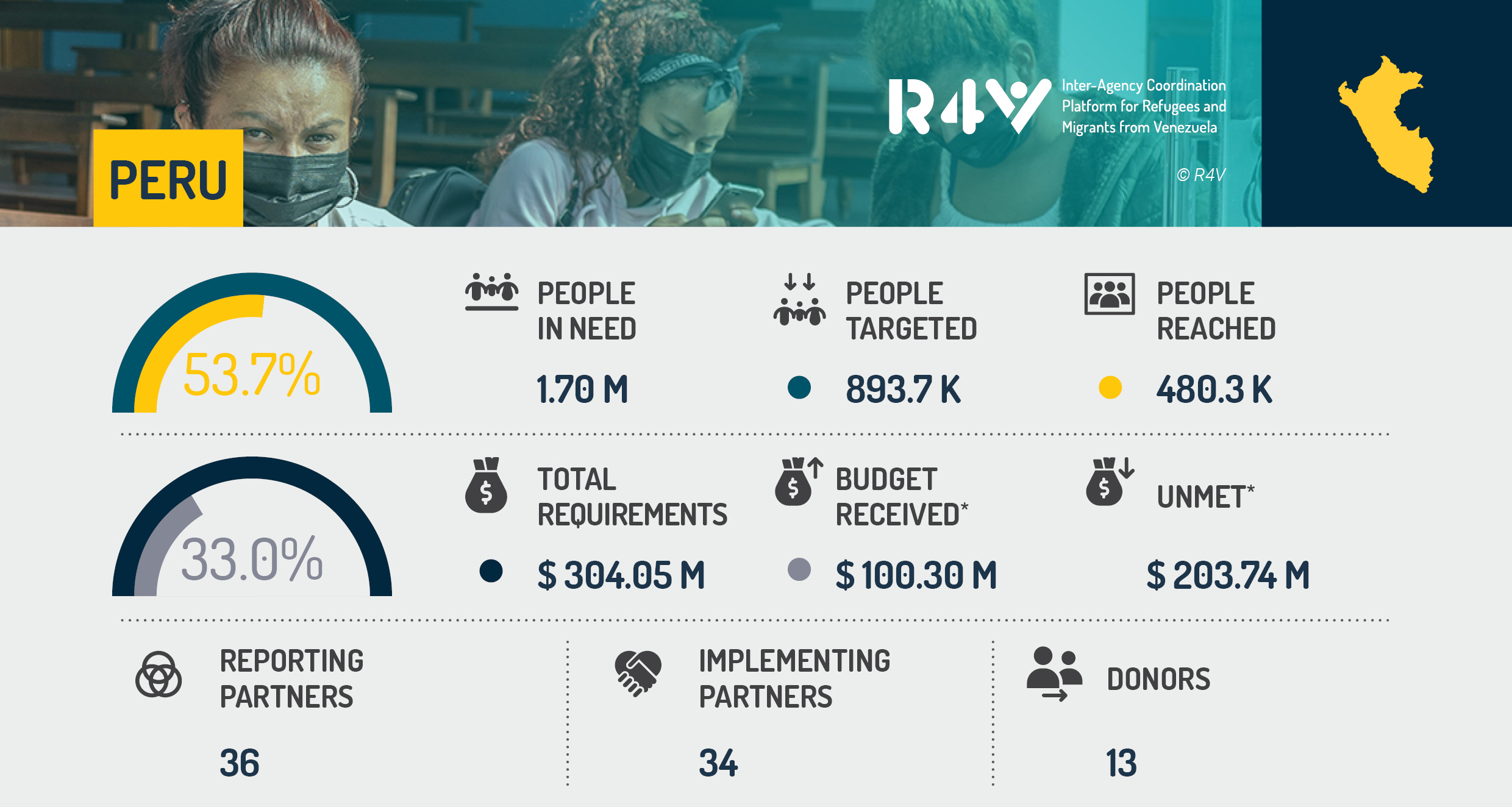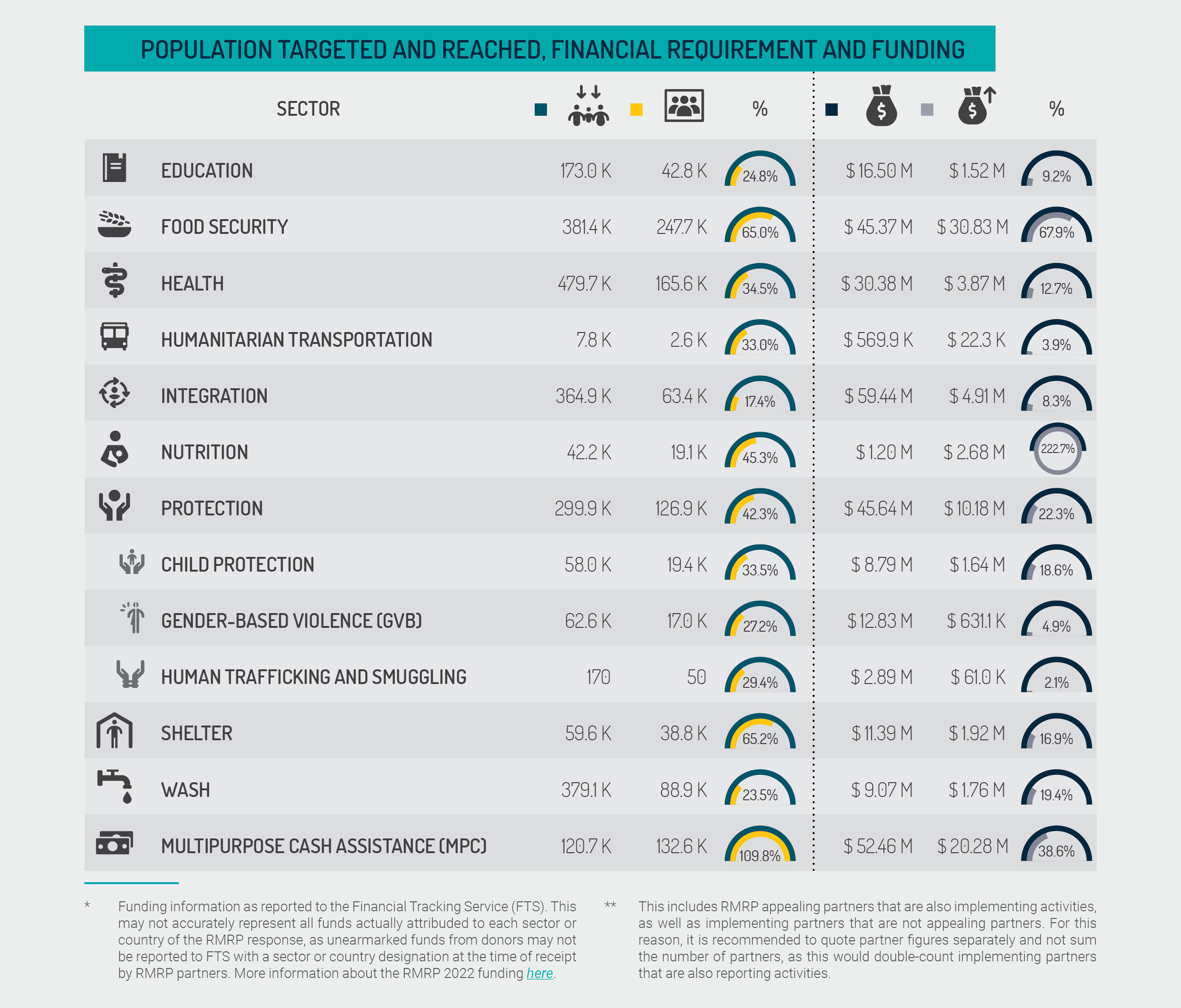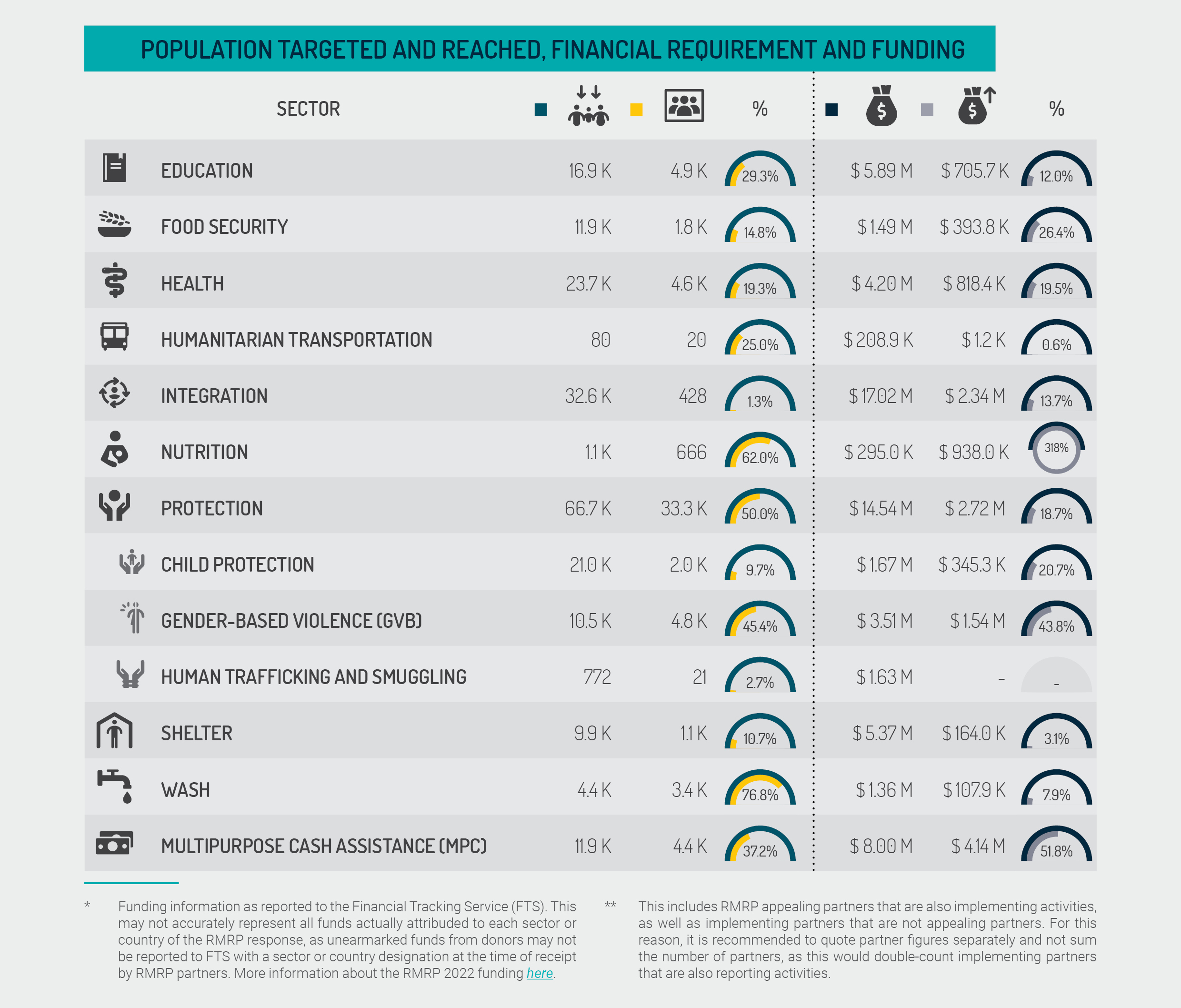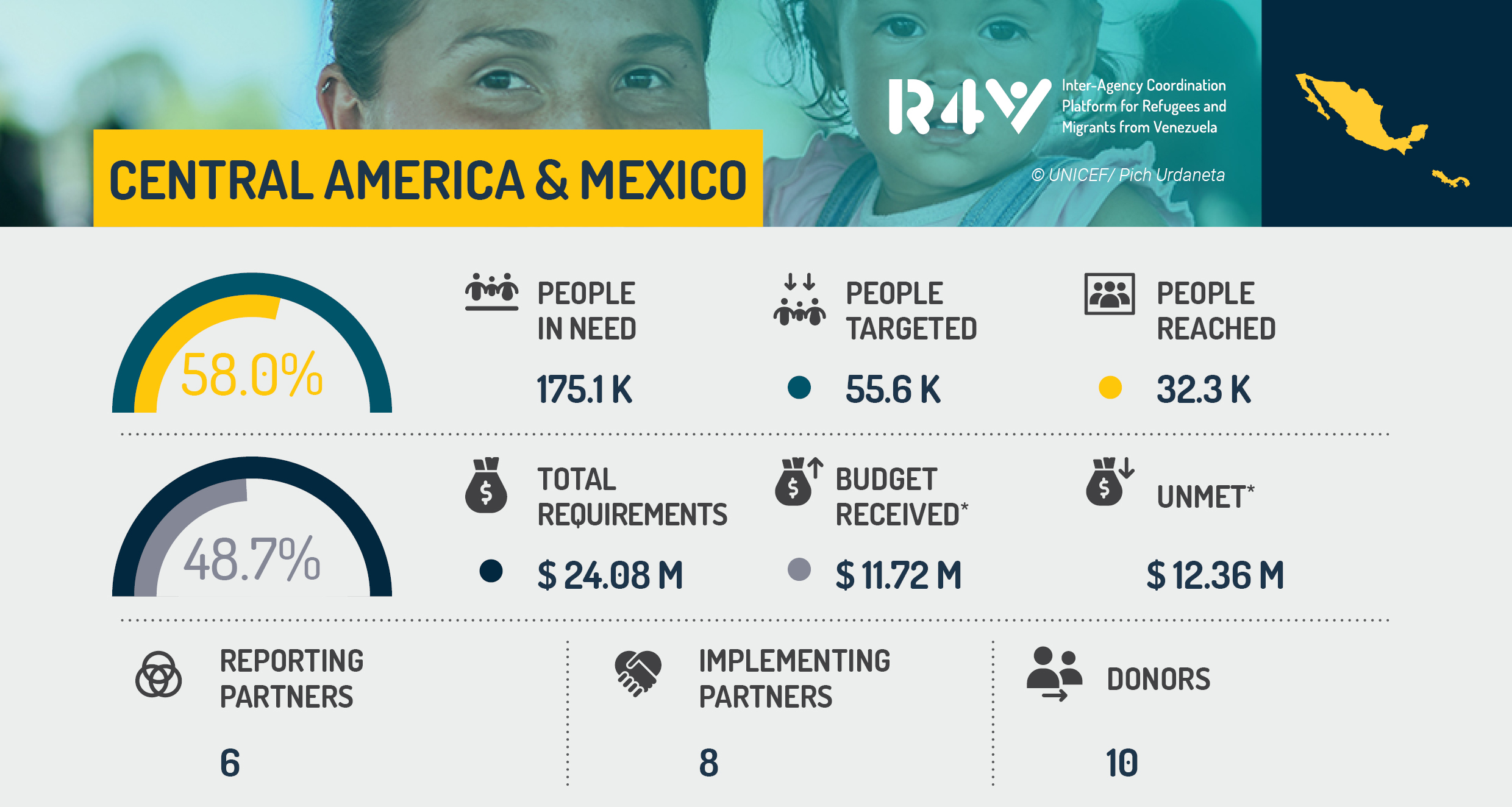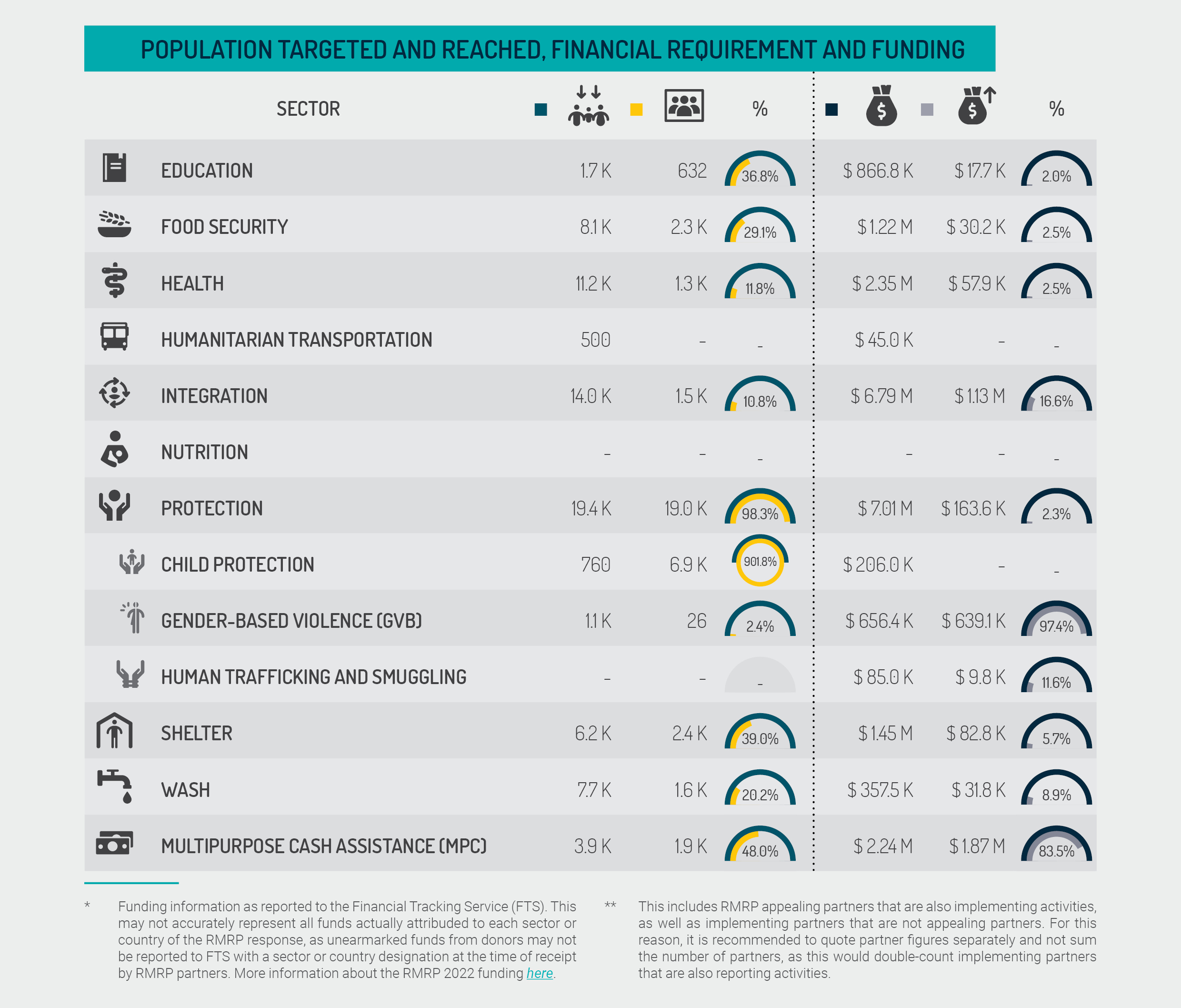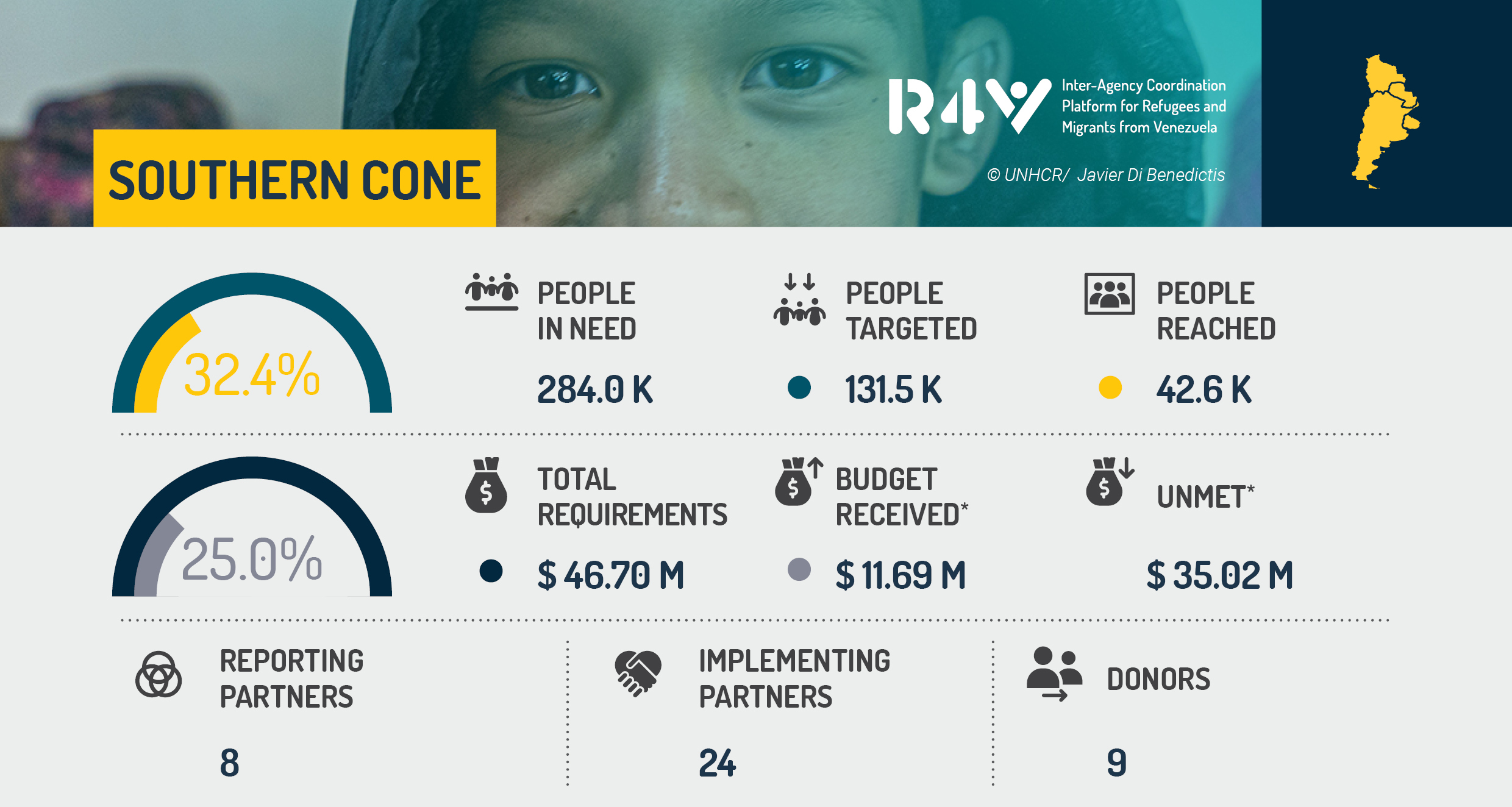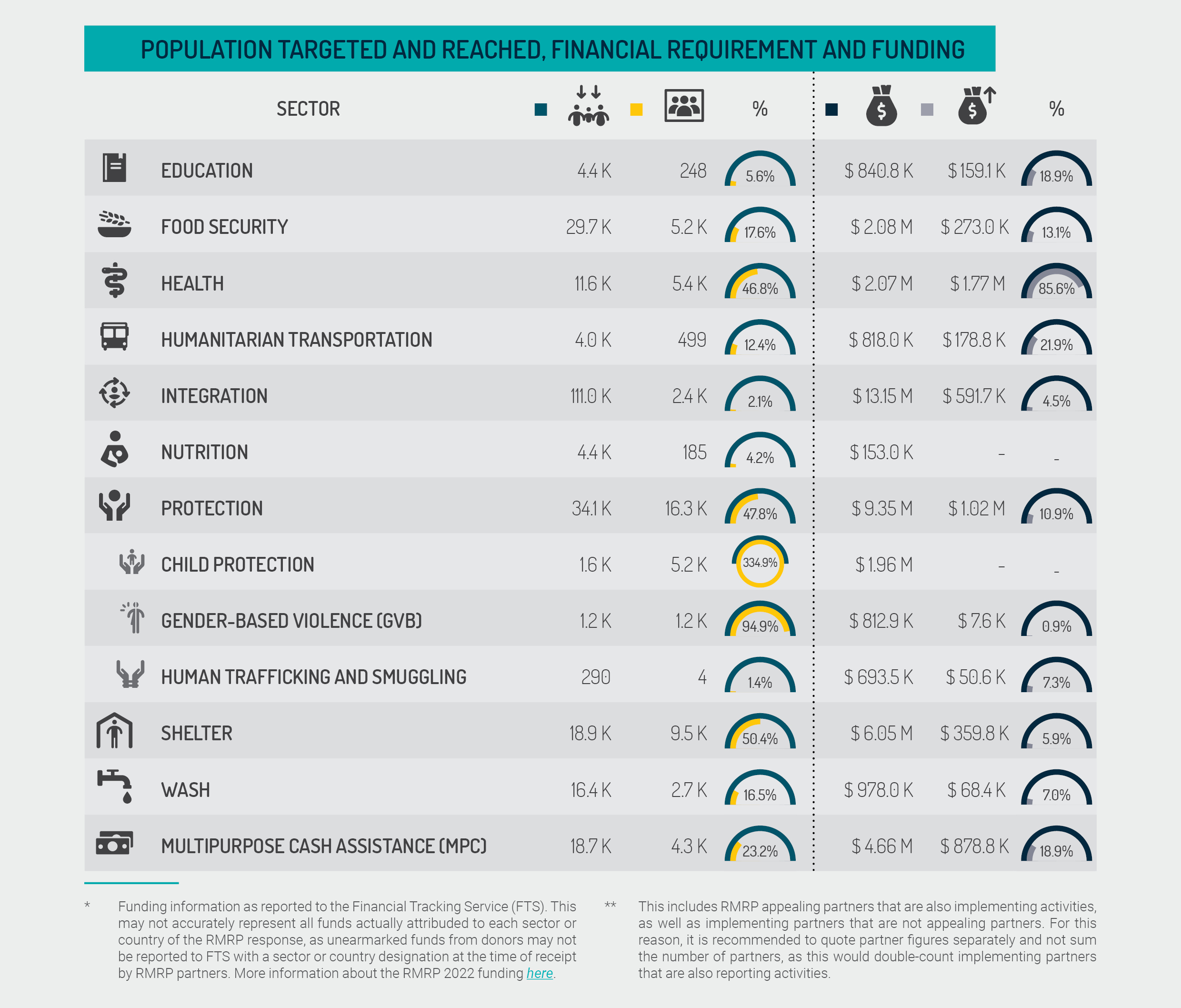RMRP 2022 End-Year Report
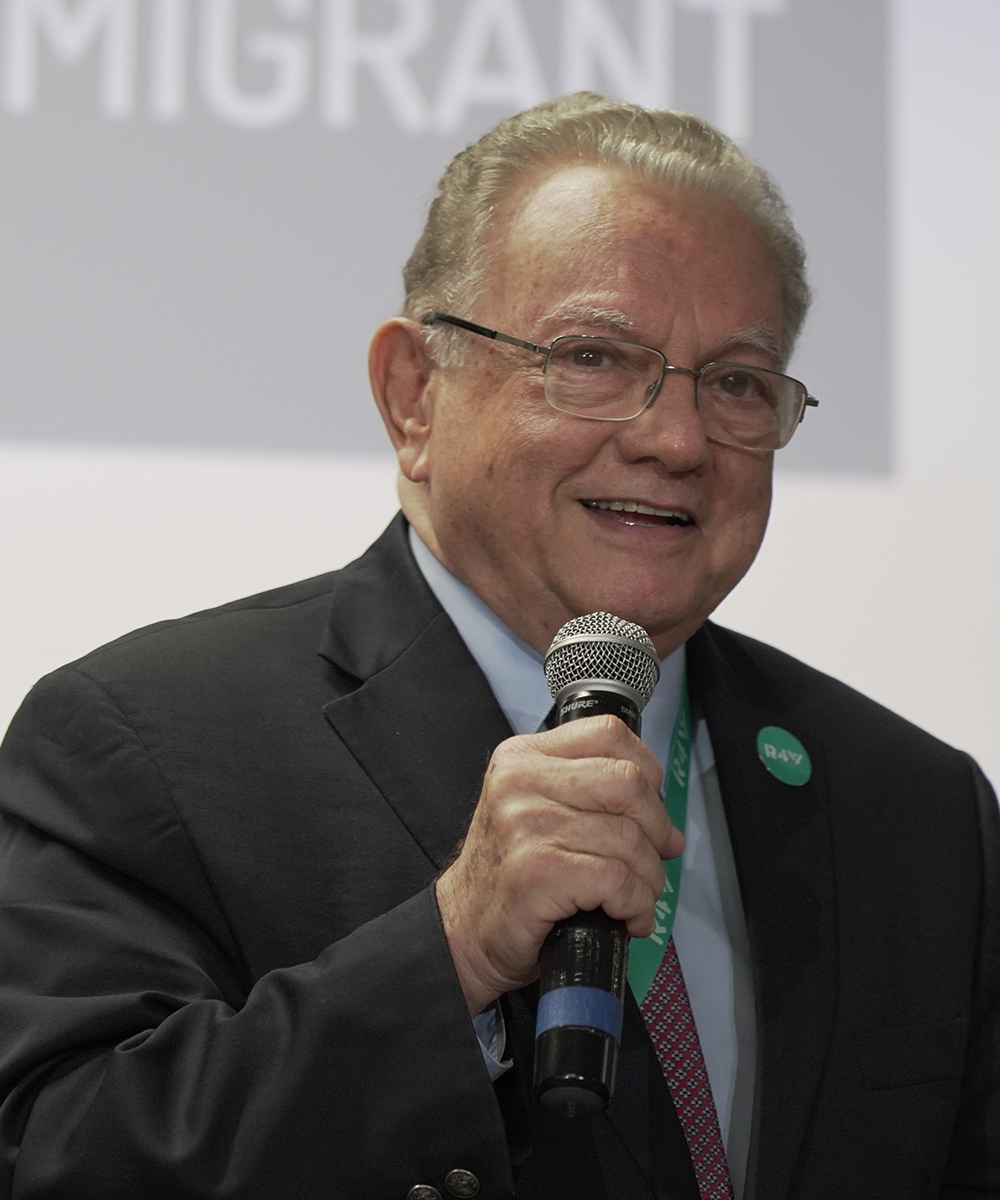
“In 2022, we saw once again the desperate lengths that refugees and migrants from Venezuela were forced to go to seek protection, integration, and access to basic needs and services, with thousands more undertaking dangerous northward journeys through the perilous Darien Gap, as well as along other routes marked by risks to their safety and dignity throughout the region.
Outflows from Venezuela continued to outnumber returns, and refugees and migrants who were unfortunately unable to integrate in their host countries, undertook onward movements in search of a place to call home.
This illustrated the ongoing importance of donors’ and host countries’ support for refugees and migrants in their countries of transit and destination. Thanks to support totalling 667 million USD, R4V partners were able to reach more than 2.4 million refugees and migrants and members of affected host communities with assistance in 2022, approximately 63% of people targeted by the RMRP 2022 (3.82 million persons).
The end-year report for 2022 highlights contextual challenges, the response and lessons learned that will inform the response of the now 228 appealing partners of R4V, who will continue to respond to the needs of refugees and migrants from Venezuela through activities proposed in the RMRP 2023-2024, the first multi-year response plan in the region.”
results of implementation of the rmrp 2022
PEOPLE REACHED
In 2022, 2.44 million people, including refugees and migrants from Venezuela and affected host communities, received assistance from R4V partners across 17 host countries in Latin America and the Caribbean. The joint response was delivered by 112 R4V partners through 364 implementing partners, including 39 refugee- and migrant-led organizations.
Click on a country and/or sector in the interactive map below to see RMRP partners’ implementation in 2022.
FUNDING OF THE RMRP 2022
Working Groups and Cross-Cutting Themes
Information on R4V, the RMRP and partner organizations
©R4V/Enrique Castro-Mendivil
What is R4V?
In April 2018 the UN Secretary-General directed IOM and UNHCR to coordinate the regional response to the situation of refugees and migrants from Venezuela. As a result, the Inter-Agency Coordination Platform for Refugees and Migrants from Venezuela (R4V) was established as a forum to coordinate the response efforts across 17 countries of Latin America and the Caribbean.
What is the RMRP?
The Regional Refugee and Migrant Response Plan (RMRP) was first developed in 2018 as a strategic regional response plan and advocacy tool to support country and sub-regional operations and to ensure the most pressing humanitarian, protection and integration needs of refugees and migrants from Venezuela, as well as those of host communities, were met.
In 2022, the R4V Platform divided the RMRP into two fundamental documents, each with a distinct focus: the Refugee and Migrant Needs Analysis (RMNA), which highlights the needs of refugees and migrants from Venezuela in-destination and in-transit, using primary data collection and secondary data analysis across the region; and the Refugee and Migrant Response Plan (RMRP), which focuses on the operational response priorities, activities, and financial requirements related to the response. In addition, in consultation with host governments, donors, R4V appealing partners, and other stakeholders, and in consideration of the need to better facilitate R4V partner activities across the Humanitarian-Development-Peace Nexus, the R4V Platform transformed the RMRP into a multi-year plan, which also included response activities for refugees and migrants of other nationalities (in addition to Venezuelans) in five out of the seventeen countries covered. The RMRP 2023-2024 was launched on 1 December 2022. Information on the response is available here: RMRP 2023-2024.
NATIONAL/SUB-REGIONAL DOWNLOADS
REGIONAL
EYR RMRP 2022 Summary
[ENG]
COLOMBIA
EYR RMRP 2022 Colombia- Two pagers
[ENG]
CARIBBEAN
EYR RMRP 2022 Caribbean – Two pagers
[ENG]
SECTORAL DOWNLOADS
EDUCATION
EYR RMRP 2022 Education – Two pagers
[ENG]
INTEGRATION
EYR RMRP 2022 Integration – Two pagers
[ENG]
GENDER-BASED VIOLENCE (GBV)
EYR RMRP 2022 Gender-Based Violence (GBV) – Two pagers
[ENG]
FOOD SECURITY
EYR RMRP 2022 Food Security – Two pagers
[ENG]
NUTRITION
EYR RMRP 2022 Nutrition – Two pagers
[ENG]
HUMAN TRAFFICKING AND SMUGGLING
EYR RMRP 2022 Human Trafficking – Two pagers
[ENG]
RMRP 2022 partner organizations
ABV – Association of Good with Life
ACAPS
Acción y Desarrollo
ACTED
Action against Hunger
ActionAid
Adventist Development and Relief Agency (ADRA)
Alas de Colibrí Foundation
Alianza por la Solidaridad
Alianza por Venezuela
Americares Foundation
Argentine Commission for Refugees and Migrants (CAREF)
Asociación Aves
Asociación de Jubilados y Pensionados Venezolanos en Argentina
Asociación de Venezolanos en Eloy Alfaro
Asociación Fundación contra el Hambre Perú
Asociación Migrantes Venezolanos
Asociación Misioneros de San Carlos Scalabrinianos
Asociacion Proteccion Poblacion Vulnerable
Asociación Quinta Ola
Asociación Salto Ángel
Asociación Venezuela en Ecuador AC
ASOVENAR
Associação Hermanitos
AVSI Foundation
Bethany Christian Services
Blumont
CARE
Caritas Brazil
Caritas Ecuador
Caritas Germany
Caritas Manaus
Caritas Parana
Caritas Peru
Caritas Rio de Janeiro
Caritas São Paulo
Caritas Switzerland
CCEFIRO Association
CEDRO
Center for Integrated Studies and Programs for Sustainable Development (CIEDS)
Center for Migration and Human Rights of the Diocese of Roraima (CMDH)
Centro de Atencion Psicosocial (CAPS)
CESAL
CESVI-Cooperazione e Sviluppo
ChildFund International
CHS Alternativo
Churún Merú Association
Coalición por Venezuela
Colonia Foundation of Venezuelans in the Dominican Republic (FUNCOVERD)
COLVENZ
Compassiva
Consejo Interreligioso del Perú – Religiones por la Paz
Consorcio ONG OCIPI Y Capellanía Nacional OFICA
COOPI – International Cooperation Foundation
Corporación Colectivo Sin Fronteras
CRISFE Foundation
Cuso International
Danielle’s Children Fund (DCF)
Danish Refugee Council (DRC)
Development Support Association – APOYAR
Diakonie Katastrophenhilfe
Diálogo Diverso
Doctors of the World
Dominican Institute for Integrated Development
Duendes y Ángeles Vinotinto República Dominicana
Encuentros SJS (Servicio Jesuita de la Solidaridad)
Ending Violence Against Migrants
Equidad Foundation
Equilibrium CenDE
Facultad de Psicología – Universidad de la República (UDELAR)
First International Emergency and Solidarités International
Fondo Ecuatoriano Populorum Progressio
Foro Salud Callao
Foundation for the Integration and Development of Latin America (FIDAL)
Foundation of the Americas (FUDELA)
Fraternity Without Borders
Fundación Brisas del Norte
Fundación Colombovenezolana Nueva Ilusión
Fundación Nakama’s
Fundación RadaBer
Fundación Scalabrini Bolivia
Fundacion Social Vivan los Niños
FUNVEAC
German Development Cooperation Agency GIZ
Globalizate Radio
GOAL
Halü Bienestar Humano Foundation (HALU)
Heartland Alliance International (HAI)
HELVETAS Swiss Intercooperation
HIAS
Human Rights Defence Curaçao
Humanity & Inclusion
Humans Analytic
Idas y Vueltas Association
iMMAP
IMPACT Initiatives (REACH)
Inmigrante Feliz Association
Institute for Migration and Human Rights (IMDH)
Institute of Natural and Cultural Heritage (IPANC)
International Committee for the Development of People (CISP)
International Federation of the Red Cross (IFRC)
International Labour Organization (ILO)
International Medical Corps
International Organization for Migration (IOM)
International Rescue Committee (IRC)
INTERSOS
Jesuit Migrant Service (JMS)
Jesuit Refugee Service (JRS)
Jesuit Service for Migrants and Refugees (JSMR)
Joint United Nations Programme on HIV/AIDS (UNAIDS)
Kimirina Coorporation
La Casita Hispanic Cultural Centre
Latin American Network of Non-Governmental Organizations of Persons with Disabilities and their Families (RIADIS)
LGBT+ Movement Brazil
Living Water Community (LWC)
LLANOVENCOL
Lutheran World Federation
Lutheran World Relief
Malteser International
Mana Institute
Manos Veneguayas Association
Más Igualdad Perú
MedGlobal
Medical Teams International
Mercy Corps
Migrant Service Center (CAM)
Migrants, Refugees and Argentine Social Entrepreneurs (MIRARES)
Mision Scalabriniana – Ecuador
Missão Paz
Museu A CASA
Norwegian Refugee Council (NRC)
ONG Migrantes por el Maule
ONG Preemptive Love Coalition Colombia
Organización Transfomando Vidas
Organization of Ibero-American States for Education, Science and Culture (OEI)
OXFAM
Panamerican Development Foundation
Panamerican Health Organization/World Health Organization (PAHO/WHO)
Pastoral of Human Mobility – Peruvian Episcopal Conference
Pastoral Service for Migrants National
Permanent Human Rights defense Committee (CDH)
Pirilampos Institute – Group of visits and voluntary actions in Roraima
Plan International
Population Program, Faculty of Social Sciences, University of the Republic
Profamilia Association
Red con Migrantes y Refugiados
Red Cross Colombia
Red Cross Ecuador
Red Cross Peru
Red de Investigaciones en Derechos Humanos – CONICET (Consejo Nacional de Investigaciones Científicas y Técnicas)
RET International
Salú pa Tur Foundation
Salvation Army
Samaritan’s Purse
Save the Children International (SCI)
Scalabrini Foundation Chile
Sección Peruana de Amnistía Internacional
Serviço Pastoral dos Migrantes do Nordeste
Sesame Workshop
Si, Da Vida
Solidarity and Action Asociation
SOS Children’s Villages
Tarabita Foundation
Tearfund
TECHO
Terranueva Foundation
Terre des Hommes Suisse
The Israel Forum for International Humanitarian Aid (IsraAID)
Unión Venezolana en Perú
United Nations Children’s Fund (UNICEF)
United Nations Development Programme (UNDP)
United Nations Educational, Scientific and Cultural Organization (UNESCO)
United Nations Entity for Gender Equality and the Empowerment of Women (UNWOMEN)
United Nations Food and Agricultural Organization (FAO)
United Nations High Commissioner for Refugees (UNHCR)
United Nations Office of the High Commissioner for Human Rights (OHCHR)
United Nations Office on Drugs and Crime (UNODC)
United Nations Population Fund (UNFPA)
United Nations Programme for Human Settlements (UN Habitat)
Vale da Benção Educational and Charitable Association (AEBVB)
VenAruba Solidaria
Venex Curacao Foundation
Venezolanos en Barranquilla
Venezolanos en San Cristóbal
Venezuelan Emigrant Foundation (FEV)
Vicaría de Pastoral Social Caritas
Voices GY
We World GVC
World Council of Credit Unions
World Food Programme (WFP)
World Vision
ZOA
Regional Overview
Since its establishment in 2018, the Regional Inter-Agency Coordination Platform (R4V) and its partners have ensured the coordination and operational response for refugees and migrants from Venezuela across the Latin America and Caribbean region. To complement host countries’ national responses, R4V partners have provided immediate humanitarian and protection assistance to vulnerable refugees and migrants while also addressing the longer-term integration needs.
In 2022, 2.44 million people, including refugees and migrants from Venezuela and affected host communities, received assistance from R4V partners across 17 host countries in Latin America and the Caribbean. The joint response was delivered by 112 R4V partners through 364 implementing partners, including 39 refugee- and migrant-led organizations.
In the context of post-pandemic recovery and global economic crisis since the onset of the war in Ukraine, the needs of refugees and migrants from Venezuela have continued to grow in 2022. While increasing costs of living have affected all populations, those groups already most vulnerable have been impacted disproportionately. According to the Refugee and Migrant Needs Analysis (RMNA) published in October 2022, three quarters of refugees and migrants from Venezuela in-destination face challenges accessing basic services, such as food, housing and income-generating opportunities and are in need of some form of assistance.
Due to a lack of socio-economic integration opportunities, prevailing levels of xenophobia and the inability to meet basic needs, 2022 witnessed a significant increase in onward movements, in particular northward, through Central America and Mexico with the intention of reaching the United States. Owing to visa requirements, as well as the lack of documentation and financial resources, a majority of Venezuelans undertook these journeys in an irregular manner, largely by foot, exposed to severe protection risks, including human trafficking and smuggling and sexual and physical violence. For example, in 2022, over 150,000 Venezuelans crossed the Darien Gap, the notoriously dangerous jungle between Colombia and Panama. Refugees and migrants from Venezuela also resorted to irregular movements through harsh terrain and climatic conditions along the Andean corridor and the Southern Cone, with its high-altitude mountain passes.
Against this background, R4V partners prioritized the provision of multisectoral assistance to cover urgent needs of populations both in-transit and in-destination. To respond to one of the main needs highlighted in the RMNA, Food Security Sector partners provided food assistance to over 1.51 million refugees and migrants from Venezuela and affected host communities, reaching 71 per cent of their target population for 2022. Cash and voucher assistance (CVA) was prioritized whenever feasible and appropriate, with the intention to enhance independence and resilience. In-kind food distribution was mainly provided via community kitchens, canteens and schools, but also directly to refugees and migrants in-transit.
To prevent, identify and treat malnutrition, Nutrition Sector partners targeted population groups most vulnerable to malnutrition, including children under the age of 5 as well as pregnant and lactating women and girls. Partners conducted nutrition counselling with caregivers of young children and provided nutritional supplementation. A total of 63,561 persons were reached with nutrition interventions in 2022.
The WASH Sector focused on provision of potable water, sanitation and waste management services as well as the distribution of hygiene items, including menstrual hygiene products, reaching over 367,374 persons. Partners also supported capacity-building efforts and improvements to crucial WASH infrastructure.
With the intention to improve quality and availability of health care, partners in the Health Sector delivered equipment and supplies to healthcare facilities across the region. Partners conducted various healthcare assistance programmes, reaching over 1.12 million people with primary healthcare, mental health and psychosocial support services (MHPSS), and sexual and reproductive health (SRH). Partners also conducted capacity development with health professionals across the region.
As refugees’ and migrants’ inability to afford housing increased through 2022, Shelter Sector partners provided adequate temporary and longer-term shelter solutions for refugees and migrants from Venezuela. Support included access to temporary collective accommodation, short-term accommodation in hotels and rental subsidies through CVA. Partners also distributed household items to improve living conditions both for populations in-transit and in-destination. In total, 215,540 persons were reached with shelter assistance.
To minimize risks encountered along the routes and to address challenges in accessing basic goods and services, the Humanitarian Transportation Sector reached 88,149 refugees and migrants from Venezuela with safe and regular transportation services, or 85.8 per cent of its target population.
As presented in the RMNA, refugees and migrants from Venezuela encountered more complex protection risks in 2022. This was largely attributed to increasing strains on existing services and mechanisms, coupled with overwhelmed technical and operational capacities. Protection Sector partners strengthened access to territory, asylum procedures and regularization initiatives. Partners provided direct assistance to reach 832,126 persons through activities such as orientation and legal counselling, case management, mental health support and specialized psychosocial support services. To improve the overall protection environment across region, partners also conducted advocacy with governments and engaged in capacity-building of protection actors. Partners in the Sub-sectors of Child Protection, Gender-Based Violence (GBV) and Human Trafficking and Smuggling focused their responses on provision of specialized protection services as well as strengthening of response capacities through training of partners and engagement with key actors, including support to relevant authorities.
To enable refugees and migrants from Venezuela to reach and develop their full potential, the Integration Sector strengthened processes for recognition of degrees and vocational certifications. Partners also promoted livelihoods and income generation through entrepreneurship support and other trainings. To foster social cohesion, partners organized socio-cultural events and information campaigns. Over 157,706 refugees and migrants and host community members were reached with integration support in all 17 countries, or 16.6 per cent of the Sector’s target population.
With the objective to support enrolment and permanence in schools and to address the main barriers to education for refugee and migrant children and adolescents from Venezuela, Education Sector partners provided CVA and in-kind assistance to ensure access to school supplies, uniforms, meals and transportation. Partners also conducted capacity-building with teachers and supported the refurbishment of school infrastructure to increase enrolment slots and improve educational spaces. In total, over 256,500 people, including 137,700 children and adolescents (53.7 per cent of all people reached) were supported with education assistance in the region.
In 2022, partners reached nearly 1 million refugees and migrants from Venezuela through CVA assistance, representing 40 per cent of the overall R4V response. Through multipurpose cash (MPC) assistance, Venezuelans were able to cover their basic needs while ensuring choice and flexibility, while sectoral CVA was primarily distributed to address needs within specific sectors, such as Health, Integration, Shelter and Protection.
To ensure the overall strategic direction of the response, thematic working groups provided expertise and support in their respective areas. The Working Group on Accountability to Affected Populations/Communication with Communities (AAP/CwC) increased capacities for community participation and mainstreamed participatory action throughout the response. In the field of Protection against Sexual Exploitation and Abuse (PSEA), commitments to prevention, risk mitigation and response measures were enhanced across all assistance and interventions. The R4V Platform equally remains committed to the mainstreaming of transversal topics such as gender, environment and centrality of protection.
R4V’s monitoring and reporting efforts translated into regular updates on population movements, people reached through R4V activities (5W Monitoring Dashboard) and special situation reports on significant developments regarding refugees and migrants from Venezuela in the region. Financial contributions towards RMRP funding requirements were reported and tracked through the Financial Tracking Service (FTS) with a full overview available in the RMRP Funding Dashboard. All information products were published on R4V.info and shared via other platforms, such as Twitter and YouTube.
Some 37.3 per cent of the RMRP’s 2022 financial requirements were met, with USD 667 million received against total pledges of USD 1.79 billion. While this represents an increase in the total funding received in comparison to 2021 (USD 605 million), the response in 2022 faced significant funding shortages. For example, sectors such as Education, Integration and WASH reported receiving less than 12 per cent of needed funds. It is important to note, however, that the funding situation of specific sectors and countries as reported to FTS may not reflect the receipt of unearmarked or softly earmarked funds from donors that were eventually applied to those sectors or countries, although such funds are included in regional totals as “multisector.” There are also cases where multi-country funds are erroneously assigned to one country in FTS, making that country’s response appear over-funded. R4V reports and dashboards reflect information available in FTS at the time of publication, and may be subject to adjustment at later dates, as recipient organizations and donors continue to update their reports.
R4V and partners reiterate their gratitude to the host governments of the region, as the primary responders, for hosting millions of refugees and migrants from Venezuela in their countries and communities, and providing robust, diverse, and targeted assistance to ensure the most vulnerable are reached with essential services. R4V also thanks the donor community, which has generously supported the response for refugees and migrants from Venezuela and members of affected host communities in Latin America and the Caribbean. Thanks to these generous contributions, R4V partners were able to reach and assist 2.44 million people with vital humanitarian and protection assistance as well as integration support in 2022. To ensure that visibility of the situation is maintained and that urgent needs are met, sustained and increased commitment remains essential. As such, R4V would like to thank the European Union and the Government of Canada for convening the International Solidarity Conference in Brussels, Belgium on 16-17 March 2023.
In 2022, the R4V Platform divided the RMRP into two fundamental documents, each with a distinct focus: the Refugee and Migrant Needs Analysis (RMNA), which highlights the needs of refugees and migrants from Venezuela in-destination and in-transit, using primary data collection and secondary data analysis across the region; and the Refugee and Migrant Response Plan (RMRP), which focuses on the operational response priorities, activities, and financial requirements related to the response. In addition, in consultation with host governments, donors, R4V appealing partners, and other stakeholders, and in consideration of the need to better facilitate R4V partner activities across the Humanitarian-Development-Peace Nexus, the R4V Platform transformed the RMRP into a multi-year plan, which also included response activities for refugees and migrants of other nationalities (in addition to Venezuelans) in five out of the seventeen countries covered. The RMRP 2023-2024 was launched on 1 December 2022. Information on the response is available here: RMRP 2023-2024.
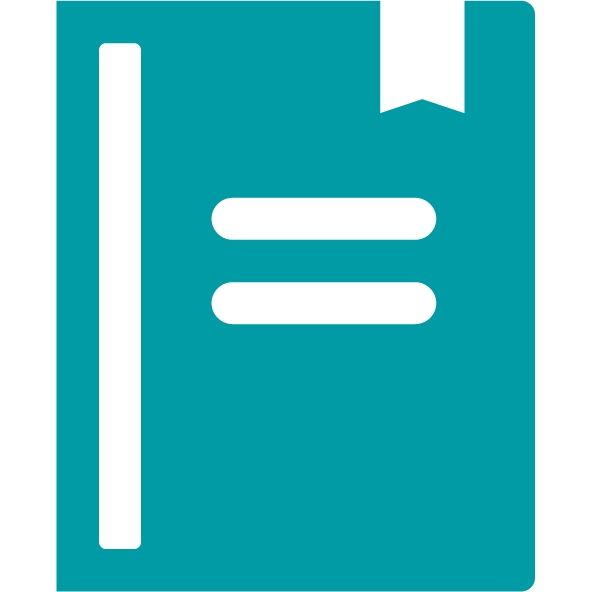
EDUCATION
Situation
The socio-economic crisis following the COVID-19 pandemic continued to have a devastating impact on access to education in the region, where refugee and migrant children and adolescents from Venezuela have been affected by the prolonged interruption of education as well as learning loss, derived from pre-existing educational inequalities, including the loss of basic literacy learning, further compounding existing integration challenges. For example, it is estimated that four out of five children across the region demonstrate loss of literacy learning, with many unable to understand simple sentences. According to the report “Two years after: Saving a Generation,” it is estimated that the loss of learning could lead to a 12 per cent reduction in lifetime future earnings of current children, and in the case of refugee and migrant children, this rate may yet be higher as they continue to face multiple obstacles to accessing and remaining in educational services.
As reflected in the RMNA, one of the primary barriers to education for refugees and migrants from Venezuela continues to be the lack of available enrolment slots, particularly in Chile, Brazil, Peru and Guyana. Other challenges include the inability of refugees and migrants to pay for school uniforms, supplies and transportation, as highlighted by refugees and migrants in Colombia, Aruba, Curaçao, Panama, Costa Rica and Ecuador. Lack of documentation remains another major challenge. For example, in Peru, about 62 per cent of refugee and migrant households identified lack of documentation as their main barrier to school attendance. Other barriers to education include discrimination, xenophobia, related violence within schools, and inadequate school facilities, including WASH services.
Response
In 2022, despite funding challenges, the Education Sector reached 256,524 people in the region, representing 31.8 per cent of its target population.
R4V partners engaged in regional and national efforts to improve access and retention of refugee and migrant children in national education systems, supporting enrolment across the region. In Colombia, the Sector reached 149,332 persons, including more than 3,000 refugee and migrant children and adolescents supported by R4V partners from September to October alone to promote their permanence in formal or non-formal education services, accompanied by academic and psychosocial support.
R4V partners provided cash and voucher assistance to over 6,500 individuals to address barriers to accessing education; adapted learning materials (including accelerated education models) to promote post-pandemic learning recovery; and provided school supplies, uniforms, school feeding and humanitarian transportation to children and adolescents in need, in coordination with other sectors. The Education Sector also supported the refurbishment and updating of school infrastructures to increase available school slots and improve the conditions of educational spaces.
R4V partners also conducted continuous capacity-building of teachers and public officials from ministries of education and other relevant organizations, training more than 8,900 educators through the regional Creando Aula course.
R4V partners additionally implemented activities aimed at generating evidence and best practices to strengthen education policies and regulatory frameworks, developed through studies or tools on various topics, including learning barriers, the impact of COVID-19 and school reopening processes, and the development of regional indicators for the framework for monitoring educational trajectories of people in mobility, in close coordination with 20 ministries of education in the 17 R4V countries in addition to Anguila, Bahamas and the Virgin Islands. Finally, Education Sector partners also supported the training of 6,624 teachers in Education in Emergency Situations (EiE) and Disaster Risk Reduction (DRR).
Lessons Learned
A main challenge for the Education Sector was the lack of funding, with less than 10 per cent of its financial requirements reportedly met in 2022. The Sector identified the need to increase support to in-transit populations, including through synergies with other sectors, R4V partners and governments. Greater attention to in-transit populations will ensure that R4V partners and other stakeholders generate complementarity and continuity in the learning processes of children and adolescents during their journeys, which ultimately will facilitate their integration into national education systems. The Education Sector recognizes the need to strengthen educational inclusion policies within the region, coordinate with national social protection systems to facilitate integrated support services, and conduct further research to better understand needs, vulnerabilities and inform education policies which affect refugees and migrants from Venezuela.
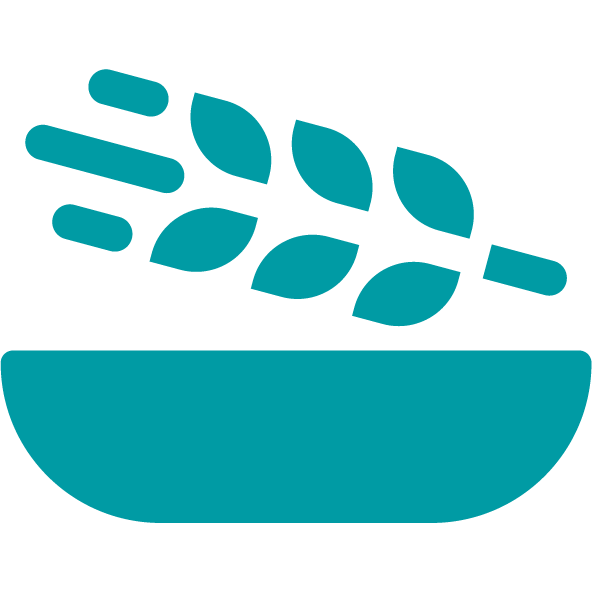
FOOD SECURITY
Situation
According to the 2022 RMNA (Refugees and Migrants Needs Assessment), 53 per cent (3.16 million) of refugees and migrants from Venezuela in the region were severely or moderately affected by food insecurity). Food insecurity increased significantly for the most vulnerable people in Latin America and the Caribbean since the start of the COVID-19 pandemic, creating additional challenges to meet their essential needs. The region presents the highest gender gap of food insecurity between men and women, at 11.3 per cent. The RMNA also highlighted an increase in the number of people unable to afford a healthy diet, with the average cost of a healthy diet at USD 3.89 per person per day, the highest cost compared to other regions.
For example, in Colombia, as reported in the RMNA, refugees’ and migrants’ coping strategies to deal with food insecurity included reducing their number of daily meals, consuming less nutritious food, begging and/or selling their productive assets. Seventy–nine per cent of those in-transit and 28 per cent of those engaging in pendular movements resorted to such strategies to meet their most basic food requirements. Similarly, in Peru, 45 per cent reported that their food situation had deteriorated over the last year, and 3 out of 4 refugees and migrants indicated that they were frequently adopting negative coping strategies. Inflation, high production costs and below–average harvests help explain the deterioration of the food security situation in the region.
Response
In 2022, Food Security Sector partners assisted over 1.5 million refugees and migrants from Venezuela, Colombian returnees, and members of host communities across the region, reaching 71.7 per cent of the target population of the Sector. The majority (53 per cent) were reached through cash and voucher assistance (CVA), making the Food Security Sector the largest provider of cash-based transfers in the R4V response.
The CVA modality was combined with complementary activities to offer sustainable livelihoods opportunities to refugees and migrants as well as facilitate their socio-economic integration in rural, peri-urban and urban areas. Complementary activities implemented by Food Security partners included the delivery of key messages and information (on nutrition, protection, family economy), the provision of life skills trainings, and support for immediate livelihood development or restoration. In addition, CVA was a relevant tool for addressing immediate and short-term food security needs of in-transit populations.
Food Security partners also distributed in-kind food kits to refugee and migrant households and in-transit populations as well as hot meals through community canteens and schools attended by refugees and migrants.
Lessons Learned
In 2023, the Food Security Sector intends to gather and analyze additional data on the relationship between food insecurity and human mobility. This information will be used to inform on how to better tackle the food crisis in the region, through detailed information on the food insecurity situation across different countries and its impact on the most vulnerable refugee and migrant groups, such as indigenous peoples, children, and women.
To respond to changing movement dynamics and emerging needs, the Food Security Sector will strengthen its strategies and response approaches tailored to the specific needs of the refugee and migrant population and host communities. Assistance to populations in-destination or recently arrived in the host countries will be complemented with efforts to improve socio-economic integration. While food assistance to in-transit populations will focus on covering immediate basic needs.
An additional priority in 2023 will be reinforcing national social protection systems to ensure refugees and migrants are included, as part of an inclusive shock-responsive social protection strategy.
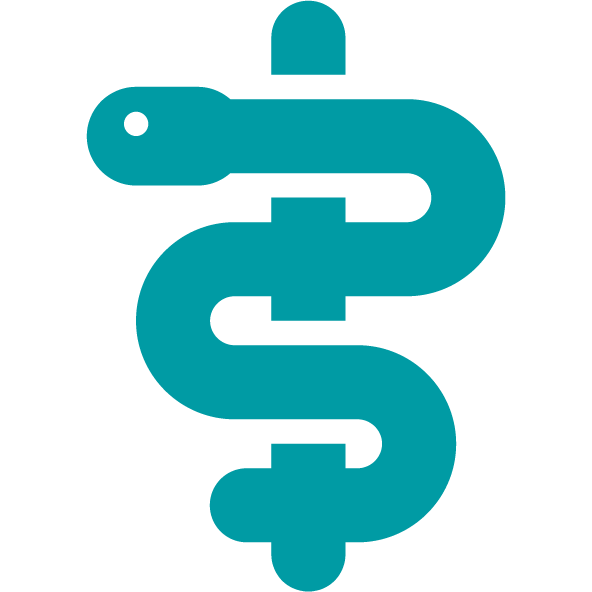
HEALTH
Situation
In 2022, countries in the region continued to integrate refugees and migrants from Venezuela into national health insurance systems. For example, in Colombia, 37 per cent of refugees and migrants were affiliated to the General Social Security Health System (SGSSS), in Peru 27 per cent had access to some type of health insurance, mainly through the National Health Insurance (SIS), while in Brazil 100 per cent of refugees and migrants from Venezuela were covered by the Universal Public Health System (SUS). Nevertheless, many Venezuelans continued to face obstacles to effectively access comprehensive healthcare services in 2022, as reflected in the RMNA 2022, with data collected through primary data collection exercises and a secondary data review. Access barriers included being in irregular situations, lacking information on administrative procedures, and experiencing discrimination and xenophobia. Cultural and language barriers also created obstacles, particularly in Dutch and English-speaking Caribbean countries.
The results of assessments and surveys at regional and national levels highlight the persistent inability of refugees and migrants, especially those in irregular situations, to access quality primary healthcare services, particularly mental health and psychosocial support (MHPSS,) as well as sexual and reproductive health care (SRH).
Response
In 2022, the Health Sector reached 1.1 million people or 41.3 per cent of its target population with some form of assistance, making it the second largest number of people reached by any sector in the R4V response. This was made possible thanks to funding of USD 53 million, representing 23.4 per cent of the Sector’s requirements. A total of 49 appealing organizations and 141 implementing partners carried out 12,015 activities under the Health Sector for the RMRP.
To address urgent needs for healthcare services, Health Sector partners implemented 349 activities to support health care facilities, including at border crossing points between Bolivia and Chile and in the Darien Gap between Colombia and Panama, and infrastructure improvements to health facilities in Peru, Brazil and Costa Rica. R4V partners provided direct health assistance to refugees and migrants, including mental health and psychosocial support services (MHPSS), and sexual and reproductive health (SRH).
In 2022, the Health Sector strengthened coordination with host governments participating in the Quito Process, particularly with Argentina and Peru as the leads on topics including HIV and health services, by supporting an evaluation of the impact of the COVID-19 pandemic on national health systems and services in the region. The assessments highlighted that access to maternal and child health services, despite health insurance availability in some countries, continues to be a major problem.
Meanwhile, in Peru, Panama, Colombia and Ecuador, R4V partners conducted needs assessments on maternal and child health services among refugees and migrants.
Lessons Learned
A primary challenge faced by the Health Sector relates to documentation and regularization processes, and the subsequent inability of refugees and migrants from Venezuela in irregular situations to access health services. Furthermore, the limited financial resources at the disposal of the response posed a challenge, with the Sector receiving only 23.4 per cent of required funds.
In 2023, Health Sector partners will continue to design and implement programmes which are adaptable to new and sometimes rapidly changing movement trends in the region, ensuring that vulnerable refugees and migrants from Venezuela, both in-transit and in-destination, are reached with required health interventions.
Therefore, the response will support efforts to improve access to essential health services and supplies at all levels of care, including by strengthening national capacities though technical support to eliminate the main barriers that limit refugees’ and migrants’ access to and use of healthcare services.
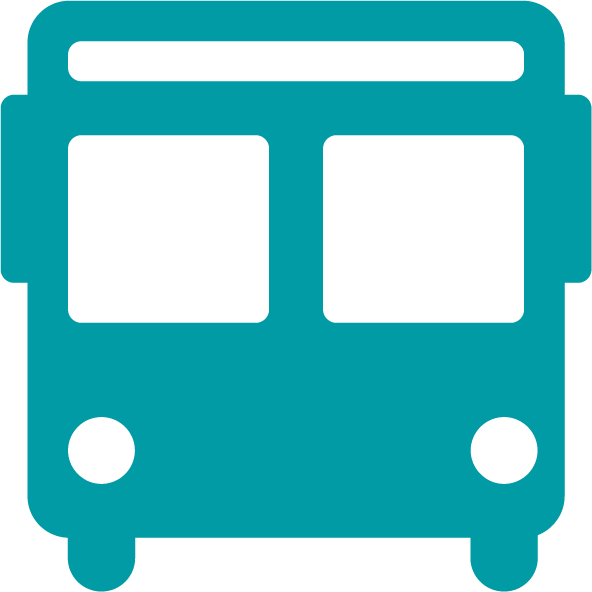
HUMANITARIAN TRANSPORTATION
Situation
During 2022, new movement trends and persistent outflows of refugees and migrants from Venezuela were observed. Trends included a significant increase in the population in-transit via land routes through Central America and Mexico towards the U.S.; increasing pendular movements between Venezuela and Colombia, as well as gradually increasing return movements to Venezuela; and increased and continuous movements between host countries, including from Bolivia and Paraguay to Argentina, Uruguay and Chile, as well as from Chile and Argentina to Uruguay and Peru.
The lack of documentation and financial means to pay for safe transportation led to a marked increase in the number of refugees and migrants from Venezuela who spent most of their journeys on foot, exposed to risks to their protection, integrity, health, and dignity. Women and girls, particularly those in transit and those in an irregular situation, were more exposed to various forms of physical violence, gender-based violence (GBV), human trafficking and smuggling.
Meanwhile, despite the efforts of many countries to promote integration, the need for safe and regular daily humanitarian transportation – to access vital goods and services, including employment – increased during the year, with 46.6 per cent of the activities reported by R4V partners allocated to this modality.
Response
In 2022, the Humanitarian Transportation Sector reached 88,149 people (36 per cent women, 34 per cent children, and 30 per cent men) through 14 partners and 24 implementing partners. Colombia was the only country that exceeded its initial target for beneficiaries (111 per cent), due to the implementation of additional activities to support the regularization process. R4V partners in Brazil, through the Federal Government-led Operation Welcome, supported humanitarian transportation for 27,101 individuals (88 per cent of the Sector’s target population) from the border areas to cities in Brazil with greater ability to host and integrate refugees and migrants from Venezuela.
The Regional Sector, meanwhile, developed intersectoral guidelines for workers who provide humanitarian transportation, with key messages for prevention and identification of vulnerable profiles and alerts for risks that require protection interventions. Finally, the Sector drafted and disseminated an evaluation guide of minimum standards for contracting service providers for humanitarian transportation, which is intended to serve as a reference during the contracting/outsourcing phase. The guide was disseminated to 14 partners in all 17 R4V countries through the National and Sub-regional Platforms.
Lessons Learned
Access to safe and regular transportation and the provision of humanitarian transportation by R4V partners was affected by some countries’ requirements regarding regular legal status for refugees and migrants from Venezuela, impacting their ability to purchase tickets. In addition, the lack of binational coordination mechanisms for the attention of special cases of protection with humanitarian transportation, and the creation of contingency plans in the face of increasing movements to Central America and the U.S. affects also the provision of humanitarian transportation.
Regional efforts also focused on the redefinition of humanitarian transportation activities, to clarify actions of R4V partners, and to undertake advocacy at national and regional levels to provide safe and dignified transportation to refugees and migrants from Venezuela.
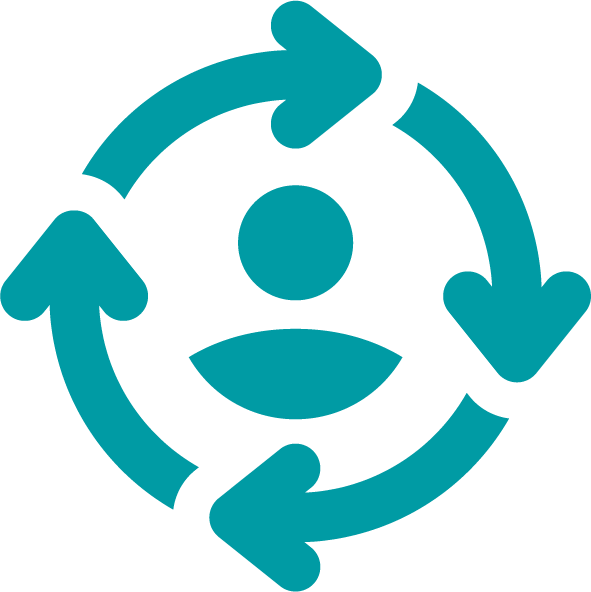
INTEGRATION
Situation
According to the Economic Commission for Latin America and the Caribbean (ECLAC), economies in the region grew by only 3.7 per cent in 2022, just over half of the 6.7 per cent recorded in 2021. Inflation and informality rose while real wages declined, and labour market recovery At the same time, and as reported in the RMNA, the region saw increasing incidents of xenophobia against refugees and migrants from Venezuela. This socio-economic context contributed to increasing integration challenges for Venezuelans, as observed in the resulting increase in secondary movements, such as movement through Central America and Mexico towards the U.S., and some return movements to Venezuela.
Response
Sector priorities in 2022 included supporting academic and professional degree recognition and skill certification processes, promoting livelihoods and income generation, focusing on post-COVID-19 recovery and relevant emerging economic sectors, and strengthening social cohesion. A total of 157,706 people (or 16.6 per cent of targeted persons) were reached with integration support in all 17 RMRP countries in 2022, 59 per cent of whom were refugees and migrants in-destination, 35 per cent host community members, and 6 per cent Colombian returnees.
A total of 7,258 integration activities were implemented in the region by 56 appealing organizations and 131 implementing partners. Sixty-one per cent of the activities were direct assistance, 27 per cent were campaigns on refugees’ and migrants’ rights and social cohesion, and 8 per cent were capacity-building. Activities focused on providing entrepreneurship support (training, mentorship, in-kind or seed capital, access to trade fairs); promoting access to employment (technical and soft skills training, title/diploma recognition, sensitization and capacity-building of relevant government offices and the private sector); strengthening financial inclusion (training, community savings, advocacy); and promoting cohesion (socio-cultural events, information campaigns and inclusive decision-making).
2022 saw an increasing interest in supporting small and medium-sized enterprises (SMEs) run by refugees and migrants from Venezuela, as this had been identified as an important source for employment generation. The Sector’s activities ensured a differentiated and gender-sensitive approach to better address the specific needs of refugees and migrants. A focus on local level responses increased during 2022, during which local actors (local authorities, civil society and the private sector) were at the forefront of receiving and integrating refugees and migrants. Support to SMEs and local level responses will therefore continue being a priority for the Integration Sector in 2023.
Lessons Learned
The Integration Sector faced extreme funding shortages in 2022, being one of the least-funded sectors of the response. R4V integration partners only received 11.5 per cent of requested funds, limiting their ability to implement activities, the number of people reached, the geographical scope and the duration of interventions. Sustained and predictable engagement with donor organizations is required, as integration programming is complex and requires continuous funding on the medium- to long-term for meaningful impact.
Integration partners had implementation challenges in some countries, due to increasing xenophobia, and restrictive and/or complex policies in some countries, including policies that limit regularization, employment access, diploma recognition, or financial inclusion.

NUTRITION
Situation
The nutrition situation of children and women, among refugee and migrant as well as among host communities, continued to be of concern in 2022; in particular acute malnutrition among children under 5 years of age. As presented in the RMNA, 3 per cent of children assessed in Ecuador, the Dominican Republic and Colombia, to 4.4 per cent in Peru and 13.4 per cent in Brazil were identified with acute malnutrition.
Stunting among refugee and migrant children under 5 years of age, which reflects nutritional deficiencies over an extended period of time, was also identified: 8.2 per cent in Peru, 17.8 per cent in Brazil, 19.6 per cent of children in-transit and 22.8 per cent of children in pendular movements in Colombia were identified as being too short for their age, meaning that they may never reach their full possible height nor their full cognitive potential. On the other hand, 19 per cent of refugee and migrant children between 6 and 59 months old in Peru, 30.8 per cent of children in-transit and 37.3 per cent of children in pendular movements in Colombia were identified with anaemia, potentially resulting in poor growth, impaired physical and mental development and an increased risk of death due to infectious diseases. Furthermore, cases of acute malnutrition identified in children in several countries in the region also highlighted the risk of death due to an increased frequency and severity of common infections and weakened immunity.
Response
The Nutrition Sector held regular coordination meetings with regional nutrition partners and national nutrition sectors in 2022 to share knowledge and experiences between countries and nutrition partners.
In total 63,561 persons were reached in 2022 through nutrition-specific interventions, including children and pregnant and lactating women. For example, in Brazil, the Nutrition Sector supported positive young child feeding practices among refugees and migrants from Venezuela. In Ecuador, screening for anaemia was carried out for children under 5 and ready-to-use nutrition supplements to prevent malnutrition were distributed. Children under 5 were also screened for malnutrition in border areas in Peru. In Brazil, over 5,000 nutritional assessments were conducted for children under 5 in Roraima, Amazonas and Pará, with special attention to indigenous communities, identifying a high proportion of acute (17 per cent), severe (4 per cent) and chronic (21 per cent) malnutrition. These families and children were assisted with counselling, supplementation, and referred to medical services when necessary. Approximately 33.7 per cent of the target population was reached through nutrition-specific interventions in 2022.
The Regional Sector led the development of lessons learned from the RMRP 2022 process, documenting good practices, challenges and recommendations for the RMRP 2023-2024. The lessons learned document was reviewed and validated by National Sectors. Based thereon, the Regional Nutrition Sector developed a guidance document on the Nutrition People in Need (PIN) estimation tailored to the refugee and migration context, with support from the Global Nutrition Cluster. In addition, an advocacy strategy for the R4V Nutrition Sector for 2023-2024, to enhance support to the nutrition response, was developed, including a document introducing the R4V Nutrition Sector.
Lastly, the Nutrition Sector, in collaboration with the Global Nutrition Cluster Technical Alliance, organized a webinar series on infant and young child feeding in emergencies (IYCF-E) with a focus on migration, with a total of 349 participants. IYCF-E was identified as a priority for expansion by Nutrition Sector partners and national nutrition focal points in a survey from 2021.
Lessons Learned
The main challenges in 2022 included: a) lack of data on the nutritional situation of vulnerable groups, which limits recognition of the nutritional problems that refugees and migrants face; and b) limited presence of actors with nutrition expertise, reducing the response capacity. Despite the fact that considerably more funds were received against the requirements in 2022 (59.7 per cent) than 2021 (27 per cent), it was still insufficient to address the nutrition needs of the refugee and migrant population. In 2023 the Nutrition Sector will continue to promote the generation of information on the nutritional situation of vulnerable groups using standardized methodologies. The Sector will strengthen capacities to manage acute malnutrition and advocate for nutritional support by making visible the needs, risks and gaps of the vulnerable population, especially through local health services and other strategic sectors, such as Protection, Education, WASH, and Food Security.
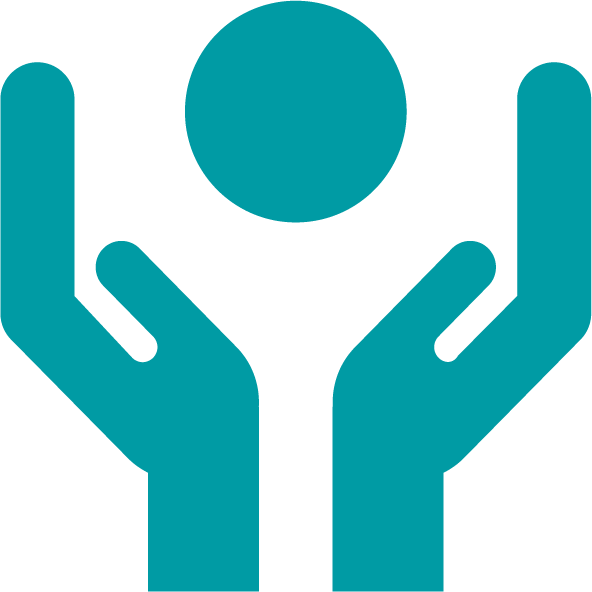
PROTECTION
Situation
In 2022, refugees and migrants from Venezuela continued to face significant protection risks, mostly linked to their lack of legal status and difficulties accessing existing legal stay arrangements. Some population groups faced disproportionate impacts (including indigenous peoples, evicted persons, sex workers, youth, pregnant and lactating women), creating new demands for specialized services, in addition to renewed onward movements.
Moreover, the presence of irregular armed actors and organized crime further aggravated protection risks, including sexual and labour exploitation in the context of illegal economies, torture, violence, extorsion and enforced or involuntary disappearance. Protection risks along the Urabá-Darien route increased as a result of greater exposure to sexual harassment and violence, disappearances and cases of extortion by illegal armed groups. In the Caribbean region, refugees and migrants from Venezuela (including indigenous persons) faced risks related to labour and sexual exploitation; discrimination and limited access to protection and assistance services (in Guyana and Trinidad and Tobago).
The right to adequate housing was also affected, with Venezuelans facing significant challenges to pay rent in host countries, confronting risks of eviction. Refugees and migrants in an irregular situation were disproportionately exposed to serious protection risks and human rights violations, with fear of deportation constituting a significant barrier to access protection and socioeconomic inclusion.
Temporary Protection and legal stay programmes such as regularization initiatives reached more than 2.5 million Venezuelans in Colombia, with 1.6 million obtaining documentation. Ecuador launched its own regularization programme in September 2022, reaching out to more than 146,000 Venezuelans, of whom 26,000 had already obtained legal stay documents.
Response
In 2022, the Protection Sector reached 832,126 refugees and migrants from Venezuela and host community members with protection-related assistance and specialized services in all 17 countries, representing 64.6 per cent of its target population.
Protection Sector partners promoted access to territory, asylum procedures and regularization initiatives through advocacy with governments across the region as well as through direct assistance to refugees and migrants. For example, to support ongoing registration and regularization in Peru, Ecuador and Colombia, partners provided technical support to governments and legal assistance and CVA to refugees and migrants from Venezuela. Orientation and legal counselling activities, including case management, was also offered to refugees and migrants across all national and sub-regional platforms. To respond to increasing needs of mental health support, and in collaboration with Health Sector actors, partners provided specialized psychosocial support services, including in Panama and Peru.
To enhance the overall protection environment across the region, Protection Sector partners engaged in capacity-building with partners and diverse protection actors. For example, in the Southern Cone training was provided to various response actors to reinforce a protection and human-rights based approach and the integration of gender, age and diversity in all programming.
To strengthen protection analysis, the Regional Sector conducted various studies and assessments of protection needs in 2022. This included an analysis and identification of emergent protection risks linked to contexts of conflict, criminal violence and human rights violations (“doble afectación”), developed jointly with the Child Protection and Human Trafficking and Smuggling Sub-sectors. The Sector also developed a regional survey on protection risks associated with housing, land and property (HLP) rights in Colombia, Ecuador and Peru, including 615 Venezuelan refugee and migrant households. A joint protection analysis was conducted with 22 partners in Colombia and the Human Mobility Group in Panama, to enhance protection responses and adjust strategic interventions along the Urabá-Darien route, including the mitigation of existing risks. Communication pieces were produced to raise awareness on protection risks faced by indigenous refugees and migrants from Venezuela.
Finally, the Regional Protection Sector conducted advocacy with Special Rapporteurs (SR) from both the UN and the Inter-American Human Rights Systems, including on violence against indigenous women and girls, trafficking in persons and modern forms of slavery.
Lessons Learned
Despite reporting receiving only 21.7 per cent of the required funding, the Protection Sector reached 64.4 per cent of its target population in 2022. Nevertheless, as a result of funding shortages, the Sector faced difficulties meeting important protection needs of refugees and migrants, and producing expected products and protection analysis.
To ensure coherent and efficient responses, in 2023 the Protection Sector will strengthen links and relations with national coordination mechanisms as well as other R4V sectors and working groups. The Sector will also develop strategies to increase the participation and voice of local actors, supporting localization through technical support and resource mobilization.
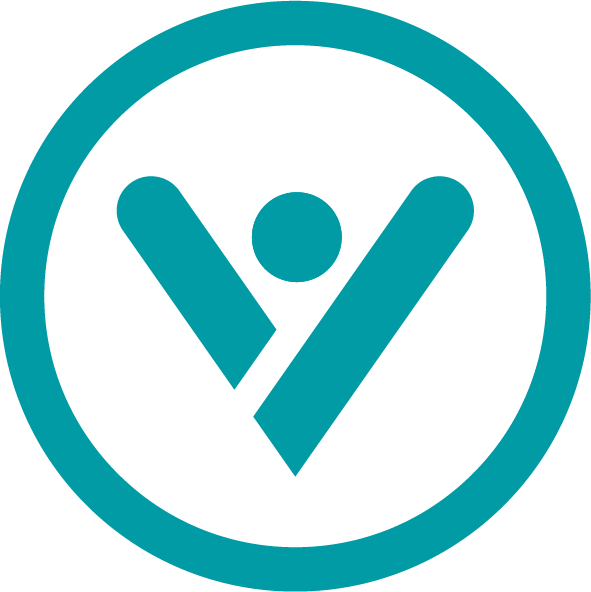
SUPPORT SPACES
Situation
The inter-agency and intersectoral Support Spaces initiative provides information, orientation, identification, safe referral and basic services to refugees and migrants from Venezuela through a coordinated network across the region. During 2022, the Support Spaces initiative continued to expand in response to arrivals of refugees and migrants from Venezuela at entry points and in host communities across the region. A total of 210 Support Spaces were established and/or active in eight countries: Argentina, Bolivia, Brazil, Chile, Colombia, Ecuador, Peru, and Uruguay.
Due to changes in national asylum and migration policies, new displacement dynamics as well as emerging risks (including on transit routes) and integration as a priority, the Support Spaces had to adapt, implement new strategies, and expand services. This led to the transfer of structures, closures and/or prioritization of activities in the face of limited resources.
Response
During 2022, the Support Spaces initiative updated and adapted its Support Spaces Toolkit, and used it to conduct on-site trainings in Peru and Colombia. In Peru, more than 30 people were trained and were able to identify opportunities with civil and community-based organizations, mostly composed of refugees and migrants from Venezuela, leading to the strengthening of services. In Colombia, 50 people – including Coordinators of National Platforms, co-leaders of support spaces and other relevant actors – were trained on harmonizing minimum concepts, identifying new potential network structures and mapping refugees’ and migrants’ needs while in transit. Support was provided to improve the visibility of Support Spaces in Peru and Chile, to ensure that the structures are recognizable by refugees and migrants as safe spaces for attention, creating visibility materials (such as route maps) and strengthening information spaces.
During 2022, the Support Spaces initiative continued to coordinate with regional networks such as RIADIS, Red Clamor and the Regional Network for the Protection of LGBTQI+ persons. With the latter, a joint work plan was developed to strengthen the Support Spaces’ differentiated response for LGBTQI+ persons, and together with RIADIS, the Support Spaces created more LGBTQI+ inclusive spaces. Through joint action with the Clamor Network, meanwhile, the Support Spaces expanded the presence of faith-based organizations in their local networks.
The Support Spaces initiative also participated in Quito Process meetings on Reception Centres/Support Spaces, in Quito, Ecuador, resulting in action plans agreed between the representatives of Quito Process member states and R4V actors, including civil society organizations working with Support Spaces to strengthen the initiative and its sustainability through increased coordination with State institutions.
Finally, the regional R4V service mapping tool (showing the locations of more than 1,500 services and all the Support Spaces) helped to provide refugees and migrants with necessary information along travel routes and in their host communities, to access guidance, information and differentiated services.
Lessons Learned
In 2023, the network aims to extend service coverage to adjust to new movement dynamics, in particular in the Caribbean, Central America and Mexico. In parallel, the working group will reinforce the initiative in countries with existing structures, to avoid disruption in services and to implement alternative initiatives, such as community actions to adapt and strengthen spaces.
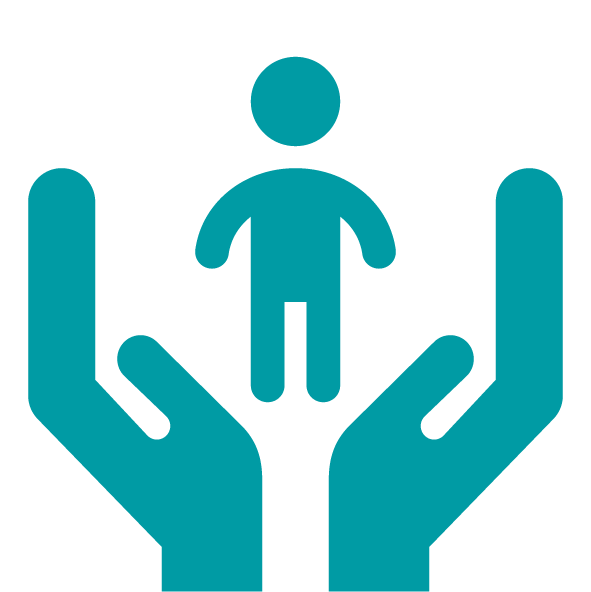
CHILD PROTECTION
Situation
In 2022, refugee and migrant children and adolescents from Venezuela continued to lack access to protection services, regularization and documentation mechanisms and basic services, such as food, education and healthcare. As presented in the RMNA, refugee and migrant children (particularly those in-transit as well as those in an irregular situation) were more vulnerable to psychological, physical and sexual violence as well as acts of xenophobia and discrimination. An overall decrease in income among Venezuelan families led to increased child labour, marriage or early unions, voluntary separation from parents and caregivers when they left the country, transit of adolescents through unsafe routes and pressures of recruitment by irregular armed groups. Children and adolescents crossing borders at irregular points of entry and/or without documentation were often prevented from accessing services. R4V partners prioritized efforts with host governments to identify and support unaccompanied and/or separated children (UASC).
Response
In 2022, Child Protection Sub-sector partners reached 133,503 people with assistance, including 102,016 children (53,001 girls and 49,015 boys) and 31,487 adults (20,567 women and 10,920 men). Forms of support included staffing to strengthen national child protection systems’ workforces, as well as partners’ provision of MHPSS, counselling, legal support and orientation to children and their families, with interventions to prevent and respond to violence, support family reunification processes, provide documentation, registration and transitory care for UASC. A total of 29 appealing partners and 58 implementing partners carried out 4,244 reported activities across 14 countries.
For example, in the Dominican Republic, partners advocated for documentation of children born to Venezuelan parents through the country’s Normalization Plan. In Brazil, the National R4V Platform supported the National Council for Children and Adolescents (CONANDA) in the process of adopting a resolution on foreign UASC.
Meanwhile, increased irregular movements northward via Colombia through Central America and Mexico implied additional challenges for refugee and migrant children in-transit, and led R4V partners to respond to greater numbers of children in need than anticipated in this sub-region, reaching more than nine times the target population (or some 6,900 children, adolescents and caretakers) in Central America and Mexico with child protection services and activities, including child friendly spaces and case management. In Colombia, 34,700 refugee and migrant children were supported by R4V partners through protection assistance and specialized services.
In addition to these and other achievements at the country level, the Regional Child Protection Sub-sector provided training to strengthen partners’ capacities, such as the virtual course “Technical tools for the analysis of needs, monitoring and response in the protection of children in humanitarian action” which reached 250 participants from 17 countries. Additionally, together with the Humanitarian Transportation Sector, the Sub-sector developed guidance and key messages for providers of humanitarian transportation regarding potential protection risks.
The Regional Child Protection Sub-sector contributed to the “Analysis of the situation of Venezuelan refugee and migrant children and child labour” in partnership with the Human Trafficking and Smuggling Sub-sector (to be published), as well as the report on “Risks due to the Dual Impact of Displacement and Organized Crime on Refugees and Migrants from Venezuela” with the Protection Sector.The Sub-sector also coordinated with the Quito Process to approve and promote the Operational Guide for Transnational Cooperation in the Specialized Protection of Children in Processes of Human Mobility.
Finally, the Sub-sector carried out a regional social media campaign to raise awareness on protection risks for UASC and promote changes for their care, with engagement by 7,291,461 accounts between May and September 2022.
Lessons Learned
Limited funding resulted in limitations in the ability to provide child protection services for refugee and migrant children in the region, which are needed to strengthen public policies and specialized child protection services, such as family reunification and regularization of children and their families. Support for UASC continues to be a priority, and greater investment is needed to identify UASC and provide them with child protection services, including by negotiating and creating mechanisms for identification and referral between countries.
GBV
Situation
Population movements and economic crises in host countries aggravated gender-based violence (GBV) risks and led to additional acts of violence against refugees and migrants from Venezuela, particularly women and girls, as well as sexual violence against LGBTQI+ persons. Some of the main mixed movement trends in 2022 saw an exponential rise in the number of refugees and migrants transiting from Peru to Chile via Bolivia, and to the U.S. via the Darien Gap in Panama. The latter is strategic for illicit economies and a stronghold of irregular armed groups that subject women and girls to sexual violence and trafficking. Refugees and migrants trying to reach Chile, meanwhile, used irregular routes which posed health risks due to high altitudes and extreme climates, as well as safety risks relating to trafficking networks. Both locations are remote and volatile and owing to political, operational and funding challenges, have limited presence of protection actors and humanitarian GBV service providers.
Additionally, deteriorating socio-economic conditions in the region in 2022 resulted in the loss of livelihoods, increased evictions and homelessness of refugees and migrants. Coupled with increasing incidents of xenophobia, this contributed to greater insecurity in public spaces, where refugee and migrant women reported being sexually harassed and propositioned for sex in exchange for work or access to goods and services.
Response
In 2022, GBV Sub-sector partners across the region reached 71,886 refugees, migrants and affected host community members with lifesaving information and specialized services, including health, MHPSS, safety advisory sessions, case management and cash and voucher assistance (CVA). GBV prevention, mitigation and response activities at national levels included community awareness sessions about GBV risks and lifesaving services available to GBV survivors; the operation of safe spaces for women, girls and LGBTQI+ persons; and the delivery of case management services for survivors. Partners updated referral pathways and local standard operating procedures to support service delivery for GBV survivors. Sub-sector partners also strengthened GBV first responders’ capacities to provide quality services through training on GBV case management, psychosocial support models, clinical management of rape for health practitioners, and GBV Minimum Standards.
In addition to these achievements at the country level, the Regional GBV Sub-sector supported the revision of GBV SOPs for refugees and migrants in Peru and Guyana. The Sub-sector also conducted trainings with 42 national GBV specialists from Peru and Colombia, and 12 national GBV coordinators on the Inter-agency Minimum Standards for GBV Programming in Emergencies.
To strengthen lifesaving GBV responses at the local and national levels, the Sub-sector delivered regional workshops on psychosocial support service provision for GBV survivors for caseworkers as well as child protection and GBV specialists across the region. Additionally, the Sub-sector trained 28 staff from the National Emergency Services, Police, and Ministry of Women in the Dominican Republic as well as personnel from 24 support spaces in Argentina, Brazil, Colombia, Ecuador, Panama, and Peru on GBV core concepts and safe referral.
Regional advocacy initiatives included the production of a factsheet on GBV trends; facilitating a dialogue between the UN’s Special Rapporteur on Violence Against Women and grassroots indigenous women’s organizations; and the co-organization of three webinars (including one on good practices working with refugee and migrant men to prevent GBV, and one on gendered threats faced by Venezuelan refugees and migrants in Ecuador, Brazil and Peru).
Finally, the Regional Sub-sector coordinated with the CVA Working Group on a webinar for national GBV and cash coordinators presenting tools and good practices on risk mitigation in cash initiatives, and worked with the Humanitarian Transportation Sector to produce and roll out regional guidelines for transportation providers in border regions to identify at-risk groups and safely refer GBV survivors to specialized services.
Lessons Learned
Ensuring adequate lifesaving service coverage to meet the needs of GBV survivors and for those at risk has been a major challenge given the low funding levels for GBV prevention and response (24.1 per cent) in the RMRP. Undertaking GBV assessments to analyze trends, strengthen advocacy and seek opportunities for resource mobilization is therefore critical in 2023.
Additionally, many barriers to accessing GBV services persist, particularly in the Chile-Bolivia border area; illegal mining areas (such as in Colombia, Brazil, Chile and Guyana) and in the Darien Gap. Close collaboration and partnership with local women’s rights organizations in isolated and dangerous areas has been identified as an important best practice to circumvent access barriers, facilitate community buy-in and contribute to sustainability.
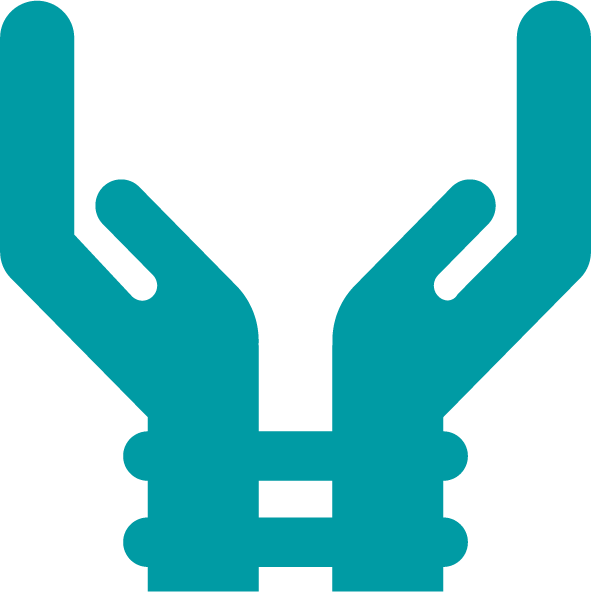
HUMAN TRAFFICKING & SMUGGLING
Situation
Human trafficking and smuggling continued to be a major concern for refugees and migrants from Venezuela across the region, with Venezuelans identified as victims of trafficking (VoTs) in almost all 17 RMRP countries, the majority of whom were women and girls. According to findings presented in the RMNA, Venezuelans were trafficked for both sexual and labour exploitation, with differentiated risks by gender (for example, in Brazil, men were more likely to be victims of forced labour, while women were more likely to be victims of trafficking for sexual exploitation). Venezuelans at greater risk of human trafficking include those in–transit and in an irregular situation, especially women, unaccompanied and/or separated children and adolescents (UASC), indigenous peoples and people of African descent, people with disabilities, sex workers, and LGBTQI+ persons, especially transgender persons.
Throughout 2022, new movement dynamics of refugees and migrants emerged and intensified; smuggling and trafficking of refuges and migrants followed these patterns. For example, in December 2022 alone 48,204 irregular crossings were recorded through the notorious Darian Gap, 62 per cent of whom were Venezuelans: some had transited from countries as far south as Bolivia, Peru and Chile with a view to reaching the southern U.S. border, with various criminal groups controlling smuggling routes posing a variety of risks. In the context of changing U.S. policies concerning the ability of refugees and migrants to access the country, by the end of 2022 an increased number of Venezuelans found themselves in transit countries with unclear prospects for reaching their final destinations, an estimated 51 per cent of whom were women and girls (RMRP, 2023-2024).
According to a study carried out by the Sub-sector on the impact of organized crime on refugees and migrants from Venezuela, the criminal groups engaged in human trafficking of refugees and migrants include transnational networks that originated in countries such as Colombia, Mexico, Brazil and Venezuela, as well as local organizations with transnational ties, with a reach that extends across the region.
Response
In 2022, the Human Trafficking and Smuggling Sub-sector provided 3,344 refugees and migrants from Venezuela and host community members with assistance, representing 7.9 per cent of its target population. The greatest number of people reached were in Colombia (2,717 persons or 7.9 per cent of the national target) while partners in Ecuador reached the greatest percentage of their target population (86 per cent or 222 people total).
In terms of assistance provided and activities undertaken, Human Trafficking and Smuggling partners supported institutional mechanisms for the prevention, identification, protection, assistance and integration of victims and/or the prosecution of human trafficking. In Brazil, R4V partners supported the authorities in charge of combatting human trafficking by providing trainings and response protocols to strengthen protection networks across the country. In the Caribbean Sub-region, partners strengthened risk identification mechanisms and engaged in capacity-building with the authorities; provided MHPSS to victims of trafficking (VoTs); and prevented and responded to related protection issues through legal counselling and advocacy for disproportionately affected Venezuelans. In Colombia, over 2,700 refugee and migrant victim/at risk of human trafficking and smuggling received related assistance and protection services, while in Peru, R4V partners provided vulnerable refugees and migrants from Venezuela with thematic trainings and workshops on human trafficking to identify risk factors and help prevent victimization.
At the regional level, the Sub-sector focused its efforts on the development of a joint proposal with UN agencies on a regional coordination mechanism with host governments to improve the judicial response to transnational human trafficking cases. The Sub-sector provided technical support on a study on the dual impact of organized crime on refugees and migrants from Venezuela, including a technical report and a key messages factsheet covering seven countries in the region. The Sub-sector also developed and promoted the guidelines on the identification of human trafficking, in coordination with the protection cluster in Venezuela.
Lessons Learned
Lack of funding remains a significant challenge for the Sub-sector, which received only 15.5 per cent of funds required for the RMRP 2022. Underfunding limited partners’ capacity to support essential prevention and protection activities and strengthen longer-term planning.
In 2023, the Human Trafficking and Smuggling Sub-sector will coordinate prevention and response activities in a cross-cutting and holistic manner, strengthening its work with other sectors such as the Humanitarian Transportation and Integration Sectors and the GBV and Child Protection Sub-sectors, as well as with the AAP/CwC and PSEA Working Groups.
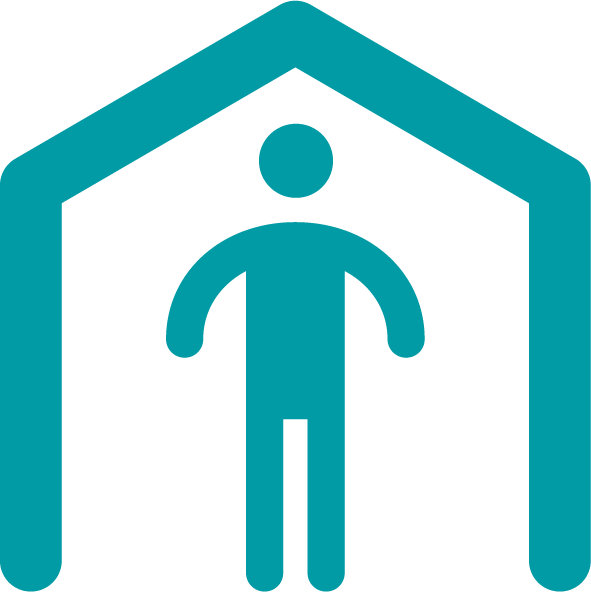
SHELTER
Situation
In 2022, shelter continued to be among the top three priorities for refugees and migrants from Venezuela in many countries in the region, as outlined in the RMNA. The economic crisis resulting from the lingering COVID-19 pandemic continued to have a direct impact on the income of refugees and migrants from Venezuela and consequently their ability to afford safe and dignified shelter.
Refugees and migrants lacking access to shelter faced heightened protection risks and socio-economic integration challenges. The main shelter challenge identified was linked to payment of rents, which often represents the main household expense and reason for indebtment. Inability to ensure financial means to cover rent costs risks leading to forced evictions and situations of homelessness.
In-transit and pendular populations, including indigenous peoples, have specific needs for improved emergency and transitional shelter. Specifically, in border areas, refugees and migrants are mainly housed in temporary collective accommodations. Refugees and migrants from Venezuela increasingly resided in high-density settlements, with informal or spontaneous characteristics, and in overcrowded conditions, without access to basic services and infrastructure. These settlements pose significant health and safety risks for refugees and migrants, particularly the most vulnerable.
Response
In 2022, shelter activities reached 215,540 refugees and migrants from Venezuela and host community members (37.1 per cent of the target) in 16 countries through the work of 12 appealing organizations and 59 implementing partners. Colombia, Brazil and Peru reported the highest numbers of people assisted with shelter support.
During 2022, Shelter Sector efforts focused on providing temporary and longer-term adequate shelter solutions for refugees and migrants from Venezuela. For this, partners worked on providing access to temporary collective accommodation, short-term accommodation in hotels, rental subsidies through the delivery of cash and voucher assistance (CVA), and the distribution of household items to improve living conditions both for populations in-transit and in-destination. In total, over 193,000 persons were assisted with shelter and more than 55,000 people received household items.
Settlements interventions in 2022 focused on the construction of community spaces and infrastructure to promote peaceful coexistence and integration between refugees and migrants from Venezuela and the host community.
To inform the shelter responses across the region, a number of tools were developed in collaboration with other sectors: this includes a Field Handbook for Rental Housing Market Assessment for Latin America and the Caribbean, a Guide to Adequate Housing, and a harmonization exercise on essential household items. R4V partners also delivered capacity-building on temporary collective accommodation and site management as part of the ongoing capacity-building strategy aimed to ensure minimum shelter and site management standards are applied across R4V countries.
Lessons Learned
Amidst new and emerging movement trends, involving hundreds of thousands of refugees and migrants in-transit across the region, providing access to temporary collective accommodations along these routes was a considerable challenge. Accordingly, Shelter Sector partners identified the need to increase the capacities of existing collective shelters, while also consolidating permanent networks of temporary collective accommodations in key strategic areas.
Additionally, refugees and migrants from Venezuela increasingly settled in high-density neighbourhoods with high levels of insecurity (including due to increased incidents of xenophobia and discrimination) and without sufficient access to basic services and infrastructure.
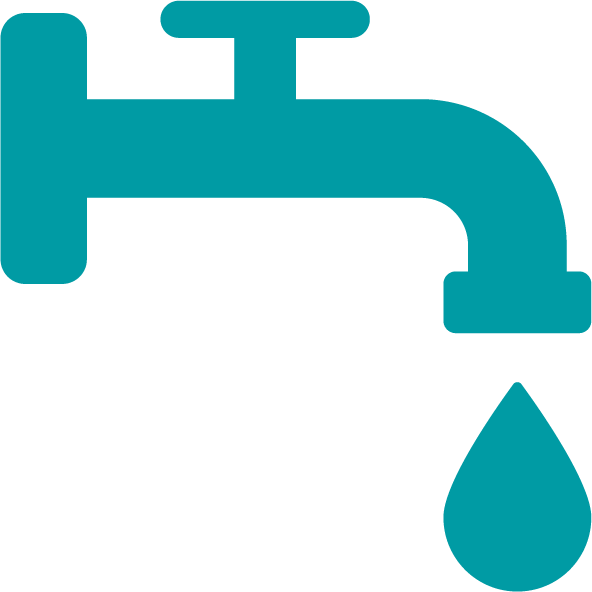
WASH
Situation
The water, sanitation and hygiene (WASH) needs of refugees and migrants continued to be imperative during 2022, with various challenges in access to essential WASH services highlighted in the RMNA. For populations in-transit, access to potable water along the major movement routes was identified as a key issue. For example, 65 per cent of refugees and migrants crossing the Darien Gap drank water from unprotected water sources and 60 per cent of refugees and migrants in-transit in Colombia indicated that drinking water was a main concern. The RMNA findings also highlighted that girls and women on the move faced difficulties accessing menstrual hygiene products.
Refugees and migrants in-destination were also subject to inadequate access to WASH services, as they often settle in urban or peri-urban areas with more precarious conditions. For example, in Peru refugees and migrants predominantly live in districts with the highest rates of COVID-19 deaths, linked to limited access to WASH services and greater informality of infrastructure. Financial barriers also constituted obstacles to accessing WASH services, as evidenced in Ecuador, where 19 per cent of refugees and migrants from Venezuela reported that they were unable to afford to pay for water services.
The RMNA also found that shelters and settlements for refugees and migrants across the region often do not offer adequate WASH services. For instance, in Brazil, 51 per cent of spontaneous settlements showed deficiencies in sanitation and environmental health, while in Mexico, more than half of the refugee and migrant population lived in spontaneous shelters, without adequate access to potable water.
Response
The WASH Sector’s response was implemented by 65 partners in 17 countries and benefited 367,374 refugees and migrants from Venezuela and affected host communities, representing 33.6 per cent of the target population. Colombia reported the highest number of activities and population reached (235,666 persons, representing 43.2 per cent of the national target) followed by Peru (88,916 persons – 23.5 per cent of the national target), Ecuador (53,403 persons – 26.7 per cent of the national target), Brazil (33,833 persons – 72.6 per cent of the national target) and Chile (12,571 persons – 29.3 per cent of the national target). The response was provided through direct assistance (92 per cent), capacity-building (5 per cent) and improvement of infrastructures (2 per cent), and included the provision of safe water, sanitation, environmental health, and waste management services that are inclusive (in terms of gender, age and disability), hygiene and menstrual hygiene services and products.
Considering the limited funding received for WASH activities, and the protracted nature of this crisis, partners advocated with governments to increase collaboration with local institutions. Partners also provided technical and financial support to deliver sustainable solutions, including for the design of the Migration Centre in Colchane (Chile), the construction of a recycling centre in Tulcán (Ecuador), water supply systems in Darien (Panama) and shelter service provision and management in Pacaraima (Brazil).
The WASH Sector also implemented actions in close coordination with the Health, Protection, Shelter and Education Sectors, incorporating the components of gender, child protection, accountability to affected populations (AAP) and communicating with communities, among others.
Lessons Learned
The USD 7.68 million allocated to the WASH Sector activities in 2022 covered 11.8 per cent of the financial requirements identified by partners for the year. As a result, response activities were not sufficient to meet the urgent WASH-related needs of refugees and migrants from Venezuela and their host communities across the region. Funding shortfalls also impeded the provision of more sustainable solutions with a long-term vision, as shorter-term WASH needs had to be prioritized.
In order to respond to the new movement trends and dynamics that emerged during 2022, notably in Chile and in the Central America and Mexico Sub-region, it will be necessary to scale up support to improve the affected countries’ response capacities to manage increased movements and provide partners and institutions with the necessary technical support, tools and coordination platforms in 2023.
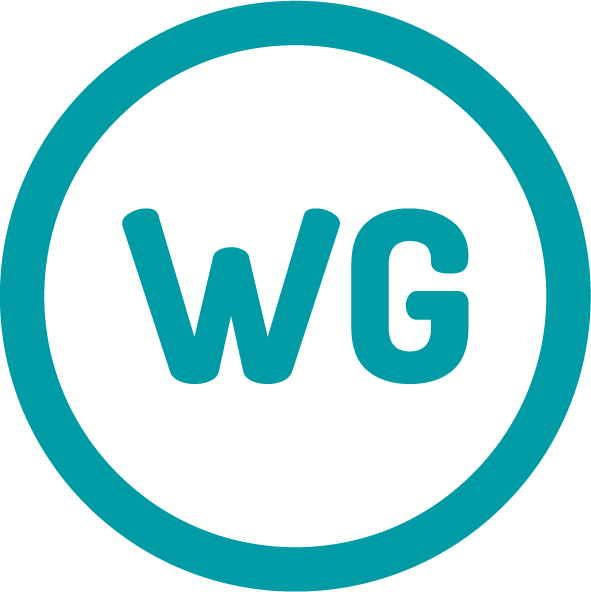
CASH
Situation
During 2022, refugees’ and migrants’ ability to meet their basic needs remained seriously challenged. Amid a decelerated and unequal recovery from the socio-economic effects of COVID-19 and a substantial increase in the minimum expenditure basket (MEB), refugees and migrants from Venezuela continued to earn below the minimum wage, be overrepresented in poverty and inadequately protected from income loss, as highlighted in the RMNA. As a result, refugees and migrants from Venezuela faced additional difficulties in accessing essential goods and services and were exposed to protection-related risks. While the latter was particularly worrisome among in-transit populations, insufficient income also hampered the integration of refugees and migrants in-destination in their host communities. Despite progress, the need for wider regularization and effective inclusion into national social protection mechanisms persisted across the region.
Response
In 2022, cash and voucher assistance (CVA) accounted for 40 per cent of people reached by the overall R4V response, corresponding to nearly 1 million refugees, migrants and affected host communities who were supported across 17 countries through 54 organizations. Colombia presented the largest caseload of beneficiaries, followed by Peru and Ecuador. Cash transfers, in particular multipurpose cash (MPC), continued to be identified as the preferred modality of assistance.
Over 40 per cent of people reached with CVA in 2022 benefited from multipurpose cash transfers, while the rest were part of sectoral CVA interventions (58 per cent). Among Sectors, Food Security continued to be the predominant sector using CVA, with over 55 per cent of its reported activities being cash-based. Other sectors using cash transfers included Health, Integration, Shelter and Protection, and, to a lesser extent, Education, WASH and Humanitarian Transportation.
The Regional Cash Working Group (RCWG) engaged with and backstopped national CWGs and worked with Regional Sector leads to support cash-related activities. RCWG collaborated closely with R4V coordination, as well as with the wider cash ecosystem, including the development of the White Paper on Regional Cash Coordination. It also promoted cross-fertilization and learning, following collectively identified regional priorities. These included co-organization of webinars, such as on Minimum Expenditure Baskets for LAC and Coordination between National Cash Working Groups and Governments leading Social Protection Systems. The latter was also the main subject of a study conducted by the RCWG jointly with CALP Network Americas. In collaboration with the Child Protection Sub-sector, a joint session was organized on the most recent guidelines and regional experiences related to cash-based assistance to unaccompanied and/or separated children and adolescents (UASC).
Lessons Learned
The implementation of CVA programmes faced several challenges: (a) increased need to address refugees´ and migrants’ integration requirements; (b) gaps in coordination with Government social protection mechanisms; (c) the need to fund CVA with a basic income approach, allowing refugees and migrants to benefit from multipurpose cash transfers (MPC); (d) the need to adequately support UASC and in-transit population. To address these issues, the RCWG will continue to prioritize linkages to social protection systems and promote inter-sectoral communities of practice and trainings (e.g., support to children and adolescents), collaborative assessments (e.g., multi-country financial service providers) and representation and advocacy for CVA.

GENDER
Situation
Refugee and migrant women and girls from Venezuela continued to face specific challenges and risks in 2022. The gender gap in employment across the region, with women not only disproportionately impacted by unemployment and precarious jobs but also at higher risk of being victims of sexual harassment by employers, continued to impede the socio-economic inclusion of Venezuelans.
As presented in the RMNA, refugee and migrant women and girls and LGBTQI+ persons are also more exposed to risks of different forms of gender-based violence (GBV), exploitation and abuse, including situations of labour exploitation, especially within domestic service sectors, and human trafficking for sexual exploitation.
Lack of access to sexual and reproductive health services and menstrual hygiene products add barriers to women and girls’ sexual autonomy, school attendance and economic participation, increasing exposure to other protection risks. Finally, the additional barrier of unpaid care work mostly falls on women, which complicates an already complex labour market.
Response
Gender mainstreaming in programming and coordination was strengthened in 2022. Specifically, efforts focused on carrying out a gender analysis in the RMNA 2022 and setting the key priorities for bridging current gender gaps in the RMRP 2023-2024.
In the framework of RMRP elaboration, the Gender Working Group trained 200 R4V partners in using the Gender and Age Marker (GAM), as applying the gender and age marker was a prerequisite for all R4V partners when submitting a project for the RMRP 2023-2024. The analysis of the GAM results showed that 95 per cent of R4V partners mainstreamed gender, age and disability in their activities for the RMRP 2023-2024 compared to 92 per cent in the RMRP 2022 and 80 per cent in RMRP 2021. Although progress was made, there is still room for improvement in the needs assessment phase, where 20 per cent of R4V partners did not consider disabilities and 30 per cent did not include LGBTQI+ needs.
The Gender Working Group also worked on a new GAM dashboard that will better capture intersectionality in the Gender and Age Marker, through the inclusion of other categories such as ethnicity and by collecting information on R4V partners’ roles regarding GBV prevention, response or referral, among others.
Lessons Learned
Lack of funding continues to be a challenge, as it has not been possible to allocate focal points dedicated to providing technical support to partners in all 17 RMRP countries on a permanent basis. For that reason, and in order to enhance gender mainstreaming across sectors, sector coordinators will be trained in gender mainstreaming by the Gender Working Group in 2023 in order to ensure that their workplans are gender transformative.
Moreover, as GAM results show a need to improve assessment tools to better grasp intersectional needs, a training on gender and intersectionality in needs assessment will be held, once the new GAM dashboard is ready in 2023.

CoP
Situation
Refugees and migrants from Venezuela remained at risk of violations of their rights, safety and dignity during 2022. The majority lacked legal or social protection, and many experienced family separation, evictions, deportations and other expedited removal procedures, as well as xenophobia and discriminatory attitudes. Additional challenges identified included overloaded asylum systems, lack of access to regularization and regular stay arrangements, and the adoption of measures restricting access to territories, with a growing number of individuals left without protection, legal and civil documentation, health services, education, or livelihood opportunities.
Response
In response, R4V partners considered the specific vulnerabilities that underlie protection risks and obstacles to access assistance and the enjoyment of rights, putting protection at the centre of the R4V work and responses. Advances in accessing health, education, livelihoods, documentation, and other rights and opportunities were reached to a certain extent. Direct service provision, and concurrent advocacy with host governments took place to promote the best outcomes for refugees and migrants from Venezuela, such as access to social protection mechanisms and national systems, in addition to physical and mental health care. In their activities, R4V partners prioritized refugees and migrants from Venezuela with specific protection needs, including survivors of GBV and other forms of violence, victims of human trafficking, people with disabilities, elderly people, pregnant and lactating women, unaccompanied and/or separated children (UASC) and young children, indigenous peoples, communities of African descent, and LGBTQI+ persons, among others.
Lessons Learned
Comprehensive, quality, and tailored actions to respond to the special needs of refugees and migrants from Venezuela are still limited. Response activities in 2023 will include strategies to meaningfully engage different groups of the affected populations in the design, implementation and evaluation phases of the response, taking into account peoples’ preferences and priorities to deliver on the basis of the “Do No Harm” principle.

PSEA
Situation
In recent years, the COVID-19 pandemic exacerbated factors contributing to Sexual Exploitation and Abuse (SEA) of refugees and migrants. Circumstances such as unemployment, risk of eviction, challenges in access to asylum procedures and documentation, and irregular transit through dangerous routes, may increase the risk of SEA affecting in a disproportionate manner refugee and migrant women and girls from Venezuela. There is therefore a continuous need to reinforce the knowledge and accountability of humanitarian personnel to prevent sexual misconduct, ensure reporting mechanisms are accessible to all, and offer assistance to victims/survivors in an adequate and timely manner.
Protection from SEA (PSEA) remains a core commitment of the R4V Platform, meaning that all partners must commit to mainstreaming prevention, risk mitigation, and response activities across their sectoral interventions and ensure they deliver assistance that is safe, relevant, and timely. This will ultimately help all actors in fulfilling their mandates, and jointly promote the wellbeing of refugees and migrants from Venezuela.
Response
In 2022, the Regional Community of Practice on PSEA (CoP) continued working as a space for knowledge-sharing and providing technical assistance to National and Sub-regional Platforms in the implementation of actions to better prevent and respond to SEA. During 2022, the CoP worked intensively to develop an interagency SEA Risk Assessment Toolkit, and carried out a first validation process of the methodology in Guajira, Colombia, with the support of the National R4V Platform (GIFMM) and the UNCT PSEA Task Force. Through consultations with 112 refugees and migrants from Venezuela and host communities, representatives of 14 NGOs and 8 local/sub-national Platforms, the PSEA CoP tested the toolkit and jointly assessed SEA risks and possible actions to mitigate these. Based on this pilot experience, the PSEA CoP improved the methodology, which is intended to be implemented in 2023 in new locations.
The Regional PSEA CoP also rolled out the PSEA training package through learning initiatives with partner organizations of the Caribbean Sub-regional Platform and a joint webinar with Accountability to Affected Populations (AAP)/ Communication with Communities (CWC) Working Group, coordinated by the Regional Support Spaces Initiative. Both trainings reached over 100 participants from 7 countries of the R4V response. Furthermore, the CoP continued its efforts to mainstream PSEA considerations into platform tools and processes, particularly the RMRP planning process. The RMRP Planning Instructions 2023-2024 included PSEA as a priority, cross-cutting issue. Guidance Notes covered in greater depth how to integrate PSEA into RMRP activities.
Lessons Learned
To address gaps and build on good practices, moving forward the CoP will work to promote greater collective knowledge management by establishing a network of PSEA Focal Points in each R4V platform at the national and sub-regional levels. It will continue to advance PSEA strategic priorities, including strengthening partners’ capacity to undertake SEA prevention (risk assessments, training, internal policies, and procedures); SEA response (community-based complaint mechanisms and victim’s assistance services); and overall leadership and accountability.

AAP/CwC
Situation
In 2022, the need for safe, relevant, and updated information was prominent across the region, as many refugees and migrants from Venezuela encountered challenges in meeting their basic needs during their journeys and after arriving at their destinations. As R4V partners’ assistance and actions targeted different groups, the need for tailored and culturally appropriate information was essential to ensure that individuals could access materials that would effectively meet their unique information needs, particularly when new government policies were established that directly affected them.
To respond to the needs of affected communities and to gather valuable data and assessments, it was observed that establishing two-way communication channels and feedback mechanisms was necessary. This enabled refugees and migrants from Venezuela and host communities to provide feedback on the assistance they received and to express their perspectives and views, in order for R4V partners to identify the real needs of affected communities and to adjust their responses based on their feedback.
Response
The Accountability to Affected Populations (AAP) and Communication with Communities (CwC) Working Group coordinated with R4V partners to increase capacities and mainstream participatory action throughout the response. The AAP/CwC Working Group focused on providing R4V partners with increased AAP and CwC capacities and technical support to initiatives to generate community participation and collect feedback and complaints.
A virtual training was carried out to equip over 20 frontline R4V staff working in Support Spaces with a better understanding of accountability and participatory principles. The first ever inter-agency AAP regional training was held in Panama in August 2022 for 30 people from 11 countries. The training had the objective of strengthening participants’ capacities as AAP focal points at the national level, in addition to providing training on collective accountability and interagency AAP coordination. Additionally, the AAP/CwC Working Group organized a webinar focusing on interagency complaints and feedback mechanisms, providing a space to exchange knowledge and good practices to mainstream AAP in coordination contexts.
Technical support was provided to strengthen the work of Sectors and national platforms. For instance, together with the Shelter Sector, the AAP/CwC Working Group supported the development of tools to encourage community participation when conducting rental market assessments. The Working Group also supported the development of an inter-agency hotline in Peru to be launched in March 2023. Technical support was also provided through presentations, technical advice, and accompaniment to initiatives and activities of other sectors and platforms.
A new web hub was created to gather information, messaging, and materials developed for beneficiaries, ensuring partners could easily access centrally developed materials. An example of this was the development of key messages to support information and awareness about the new migration process announced for Venezuelans in the U.S.
Lessons Learned
The year 2022 emphasized the importance of AAP as a fundamental, cross-cutting theme to ensure that refugees and migrants from Venezuela have access to the information they require and spaces to express their opinions. It also highlighted the need to keep listening to them to ensure the quality of the R4V response.
Participation in capacity-building sessions demonstrated R4V partners’ interest in furthering their knowledge of the subject and improving their practices in the field. National and Sub-Regional Platforms replicated trainings in Brazil, Colombia, Uruguay, and Bolivia, emphasizing the need to ensure accountability and participatory principles are widely known and understood to ensure the collective accountability of the R4V response. Best practices of community participation included community consultation exercises in Peru to ensure the validation of joint needs assessments and analysis of results by the affected populations themselves, thus ensuring that prioritization of needs is shared and confirmed by community members

COMMUNICATIONS
Situation & Response
The deteriorated global economic situation and the lingering impact of COVID-19 had a disproportionate effect on refugees and migrants from Venezuela. In the context of the numerous crises the world is facing, it was essential to continue improving visibility of the situation of refugees and migrants from Venezuela in the region. Reaching new audiences was a priority, to highlight progress achieved and support response actors. To that end, in 2022 the Regional R4V Communications team focused on the following:
Improving visibility of the situation of refugees and migrants from Venezuela and host communities.
Main activities included:
- Field missions conducted to Mexico, Peru and the Dominican Republic to gather human-interest stories, photos and produce a video on the R4V response. Hundreds of images were taken and several hours of audio-visual content were filmed.
- The production of the documentary “The Journey That Never Ends,” which tells stories of Venezuelans in Panama, Peru and Ecuador, and will be launched in in the context of the Solidarity Conference for Venezuelan Refugees and Migrants in March 2023.
Enhancing visibility of the R4V Platform, including initiatives led by Sectors, National and Subregional Platforms, and partners.
Main achievements include:
- Supporting the launch and dissemination of regional, sub-regional, national, and sectoral documents and projects, such as the Refugee and Migrant Regional Response Plan 2023-2024 (RMRP) and the Refugee and Migrant Needs Analysis (RMNA), through the development of strategic messaging, activities, and press releases; the production of communication products, including social media cards, GIFs and videos; and the planning and implementation of large-scale / high-level in-person launch events.
- Using footage and content obtained through the mission to Mexico, Peru and the Dominican Republic to produce social media cards and videos on the R4V response.
- Uploading 82 videos in English, Spanish and Portuguese to the R4V YouTube account, produced by several platforms, sectors and working groups.
- Reaching almost 6,000 followers and almost 1,5 million impressions in R4V’s Twitter account; more than 6,500 views of R4V’s biweekly newsletter; and over 240,000 users of the R4V.info website.
Disseminating messages against xenophobia and in support of integration and protection for refugees and migrants, in coordination with sectors.
Together with sectors and working groups, audio-visual and graphic materials were developed and disseminated for the following campaigns and strategies:
- #SomethingGoesWrong: human trafficking and smuggling campaign.
- “Steps without company”: to raise awareness on the risks for unaccompanied and separated children (UASC) in Latin America and the Caribbean.
- Strategy to disseminate information on the benefits of regularization, in coordination with the Protection Sector.
- Key messages and social media cards to share information about the ‘Process for Venezuelans’ in the U.S.
Lessons Learned
Although the R4V Communications team coordinated actions on specific initiatives, in 2023 a goal is to make more consistent and coordinated efforts, incorporating the communications focal points from the National Platforms. These concerted activities will include the dissemination of information about the 2023 Conference in Solidarity with Refugees and Migrants from Venezuela and Host Countries and Communities and related R4V and partner events, to enhance the visibility of the R4V response and ensure continued donor focus and engagement.
Gathering human interest stories and footage from the field remains crucial for strengthening the visibility of the situation and the response for Venezuelans, as well as for supporting R4V regional teams, sectors, sub-regional and National Platforms in the dissemination of information on needs and responses.
Brazil
Situation
In 2022, Brazil’s response to refugees and migrants from Venezuela continued to stand out for its commitment to provide immediate and longer-term assistance to Venezuelans in the country. The Federal State-led Operation Welcome (Operação Acolhida) was maintained in the states of Roraima and Amazonas, ensuring access to documentation, vaccination, social assistance, shelter, and the “interiorization” strategy, a voluntary internal relocation programme that enables Venezuelans to settle across the country, where they can find better opportunities for socio-economic integration. As in previous years, Venezuelans in Brazil could access social welfare and poverty-relief cash transfers on an equal basis with nationals, such as “Auxilio Brasil”, a government social welfare programme that benefitted over 131,000 refugees and migrants from Venezuela in 2022.
Brazil continued to receive sustained arrivals of Venezuelans, coupled with few exits, thereby growing the population in destination which reached 414,502 refugees and migrants from Venezuela at the end of the year, with an entry/exit ratio of 3.1. The country continues to be perceived by Venezuelans as a destination that offers opportunities for sustainable local integration. For instance, the RMNA showed that 94 per cent of Venezuelans who settled in Brazil intend to stay in the country for the next year, while only 1 per cent consider returning home, 1 per cent consider relocating to a third country and 4 per cent are not sure of their future intentions.
Response
R4V partners continued to complement and strengthen Operation Welcome, supporting the pre-documentation of 160,000 new arrivals, the provision of shelter for 47,152 people, and the operationalization of the “interiorization” strategy that, in 2022 alone, benefitted over 25,000 Venezuelans, totaling 92,000 refugees and migrants since its launch in 2018. The positive impacts of interiorization on integration have been documented in the RMNA: relocated refugees and migrants have higher employment rates (59 per cent) than those living in Roraima or Amazonas (40 per cent) and are exposed to less food insecurity (44 per cent) than those living in Roraima or Amazonas (68 per cent).
R4V partners also facilitated the safe return of children and adolescents to schools after the COVID-19 pandemic, and doubled efforts to support shelter residents in accessing primary education through the dissemination of Communication with Communities (CwC) materials and the establishment of help desks. Moreover, WASH services were provided to residents of shelters and spontaneous settlements (some 400 people per day in Paracaima and over 800 daily in Boa Vista), including the maintenance of water storage tanks and drinking tap filters, and the testing of those for residual chlorine. In addition, 32,958 refugees and migrants received hygiene and cleaning kits that contributed substantially to their health and dignity.
R4V partners conducted over 70,000 medical screenings in Boa Vista and Pacaraima, resulting in 6,000 referrals to health services, mainly for respiratory and gastrointestinal symptoms. In addition, over 5,000 nutritional assessments were conducted for children under the age of 5 in Roraima, Amazonas and Pará, with special attention to indigenous communities, identifying a high proportion of acute (17 per cent), severe (4 per cent) and chronic (21 per cent) malnutrition. These children and families were assisted with counselling, supplementation, and referral to medical services.
Local protection networks were strengthened across the country, with R4V partners providing technical assistance on GBV case management and rolling out innovative methodologies for fostering positive masculinities, as well as supporting the authorities in charge of combatting human trafficking with trainings and response protocols. Moreover, the Platform supported the National Council for Children and Adolescents (CONANDA) in the adoption of a resolution on foreign unaccompanied and/or separated children (UASC).
Regarding primary data collection, R4V partners conducted an inter-sectoral Joint Needs Assessment to inform programming and service delivery, and kickstarted an assessment on return movements at the border with Venezuela (both publications forthcoming). Furthermore, R4V conducted a workshop on Accountability to Affected Populations (AAP) for partners based in Roraima, and capacity-building on inter-agency coordination for R4V Sector leads, to strengthen the capacities of these stakeholders to protect and assist refugees and migrants in a responsible and coherent manner, ensuring complementarity of interventions and avoiding duplication. Lastly, R4V partners promoted two inter-agency events for resource mobilization: the RMRP launch and a donor briefing.
Lessons Learned
The underfunding of the RMRP 2022 in Brazil impacted the response, forcing partners to scale down their programmes or consolidate services using already existing and available resources to cut costs. For instance, in Roraima, partners closed two shelters, while increasing the size of the remaining seven, as the only provisional solution to maintain the overall capacity of Operation Welcome sites in a more cost-effective way. Small-scale organizations were disproportionally affected by the reduced funds, hampering their activities outside of the coverage of Operation Welcome. Limited funding for Humanitarian Transportation also impacted the implementation of the voluntary relocation strategy, where there are currently 5,591 refugees and migrants waiting to benefit from the interiorization and job placement programmes.
Chile
Situation
In 2022, a new government took office in Chile, with human mobility as one of its top priorities. The Government created an inter-institutional First Response Committee, under the leadership of the Subsecretary of Interior, and requested the support of the National R4V Platform to coordinate the response, mainly in the northern regions. The Committee is a key stakeholder in the implementation of actions to assist refugees and migrants, particularly in Colchane, a town at the northern border.
The Government implemented the New Migration Law and measures to reinforce border control, which are expected to remain in effect throughout 2023. In 2022, according to the National Investigative Police (PDI), 53,875 Venezuelans entered Chile through irregular entry points, 5 per cent less than the total irregular entries reported in 2021. As of 31 December 2021, the updated figure of foreigners in the country shared by the Government reached 1,482,390 people (7.7 per cent of the total of population), 1.5 per cent more than in 2020 and an increase of 14.1 per cent compared to 2018. However, the approximate number of Venezuelans in a regular situation in Chile decreased from 448,000 to 444,000 between 2020 to 2021, while Venezuelans continue to represent over 30 per cent of the total foreign population in the country.
The rise in violent crimes and the growth of international criminal organizations operating in the country notably increased the levels of xenophobia and discrimination towards Venezuelans. As a result, the negative perception of human mobility increased from 43 per cent to 67 per cent in only one year.
Response
As a result of joint efforts by R4V partners in 2022, a total of 65,510 refugees and migrants from Venezuela received assistance in Chile, reaching 41.3 per cent of the target population (158,567) for the year. The sectors with the greatest numbers of persons reached were Protection (51,331), Food Security (21,511), WASH (12,571) and Shelter (10,263). R4V partners reported Cash and Voucher Assistance (CVA) as the preferred modality of response to cover refugees’ and migrants’ priority needs, and a total of 15,045 people benefited from Multipurpose Cash Assistance (MPC).
R4V partners reported needing more funds to deliver an adequate response meeting minimum humanitarian standards, as only 18.7 per cent of the financial requirements (USD 11.15 million) were received during 2022, making it a challenge to reach the target population. Most of these funds were allocated to the Food Security, Humanitarian Transportation, Protection, Shelter and WASH sectors, to assist refugees and migrants with high vulnerability and inability to cover their basic needs.
For the second consecutive year, assistance was largely concentrated in the northern regions, where over 66,000 people were reached in Arica and Parinacota and Tarapacá (along the borders with Peru and Bolivia). R4V partners prioritized urgent, frontline humanitarian needs, such as food security, shelter, WASH, and protection. The other geographic focus of the response was the Metropolitan Region, where R4V partners reached 36,355 beneficiaries in Santiago de Chile and surrounding areas.
The support of the R4V National Platform in Chile to the First Response Committee marked a milestone in 2022. R4V partners contributed to the design and establishment of two transit centres (Colchane and Lobito) in the Tarapacá region, which is the main entry point for refugees and migrants arriving to Chile. The provision of humanitarian services included shelter (126 Refugee Housing Units), WASH (20 showers, 27 chemical toilets, and hydration points), health (medical care and psychosocial support) and GBV protection (breastfeeding room). R4V partners also supported refugees and migrants with exit plans out of the transit centres.
In 2022, the R4V National Platform in Chile conducted inter-agency missions to the main regions in the country hosting refugees and migrants from Venezuela. These missions built alliances with local and regional actors to advocate for the integration and social cohesion of refugees and migrants from Venezuela and provide technical support for data collection and statistical information. Finally, to strengthen institutional response capacity, the R4V National Platform conducted a workshop on shelter management for R4V partners and staff of the Colchane and Lobito transit centres.
Lessons Learned
In 2023, the R4V National Platform will continue strengthening work with the authorities through the empowerment of the R4V platform sectors. It is expected that this will improve R4V coordination efforts with the different governmental entities at national and local levels, allowing the National Platform to strengthen the operational response and articulation with different stakeholders.
Colombia
Situation
The situation of refugees and migrants from Venezuela in Colombia in 2022 was marked by the reopening of official border crossings, recovery from the impacts of COVID-19, and increases in northward movements of refugees and migrants towards Central and North America. Progress continued with the implementation of the Temporary Protection Status (TPS) and expanded access to healthcare and social protection. The new government which took office in August 2022 continued Colombia’s commitment to the effective integration of refugees and migrants.
Nevertheless, according to findings presented in the RMNA, multiple challenges persisted: 82 per cent of households in-destination had inadequate housing; 51 per cent ate two meals a day or less; 92 per cent had insufficient or intermittent access to water; and only 48 per cent of children were attending school. Meanwhile, 52 per cent earned less than the minimum wage, 19 per cent were unemployed and 24 per cent of households resorted to negative coping mechanisms. Regarding the population in-transit, 51 per cent were severely food insecure, 69 per cent faced difficulties accessing drinking water, and 92 per cent had no resources for their journeys.
Response
In 2022, 1.64 million people in Colombia, representing 76.6 per cent of the target population (including refugees and migrants from Venezuela and host communities) were supported through 61,400 activities carried out by 61 R4V partners in 32 departments.
The National R4V Platform in Colombia (GIFMM) supported the authorities with the implementation of the TPS programme and the delivery of Temporary Protection Permits (TPP).
In 2022, partners supported refugees and migrants along the main transit routes for ‘caminantes’ through Norte de Santander and Santander, with intersectoral assistance in Support Spaces and other service points/mobile units (reaching 138,500 persons) and through humanitarian transportation provided to 19,500 refugees and migrants. In addition, 78,700 refugees and migrants were hosted in temporary collective shelters and 11,900 were supported with short-term accommodations, while 22,800 received household items.
In 2022, the Health Sector consolidated Health Committees together with the public sector in 16 departments. Some 652,600 refugees and migrants received primary health consultations, 79,700 were vaccinated against COVID-19 and 51,700 against other diseases through the national vaccination scheme.
The Food Security and Nutrition Sectors strengthened agriculture systems and improved the competitiveness of local markets, with 6,000 refugees and migrants benefitting from rapid response production projects. Also, 1.22M refugees, migrants and host community members received food assistance (e.g., food packages, hot meals, vouchers) while 21,200 caregivers of children aged 0 to 23 months received nutritional counselling.
The Cash and Voucher Assistance (CVA) Working Group conducted an analysis to determine the Minimum Expenditure Basket in the country, leading to an agreement with the Government to increase the maximum amounts for CVA interventions. Guidelines were also developed on cash assistance as a humanitarian and integration response. Some 213,100 refugees and migrants received multipurpose cash assistance (MPC).
The Education Sector strengthened Local Education Groups together with the authorities to raise awareness on needs and promote a coordinated response. Meanwhile, 80,300 refugee and migrant children received education supplies and/or services, and 68,800 participated in non-formal or alternative education initiatives.
The WASH Sector provided 162,200 refugees, migrants and members of host communities with WASH supplies and services, including for menstrual hygiene, and 54,600 gained access to potable water.
Some 511,200 refugees and migrants received protection assistance and specialized services (including 34,700 children). Moreover, 26,600 refugees, migrants and members of host communities benefited from GBV prevention, mitigation and response activities, and 2,700 victims/persons at risk of human trafficking and smuggling received assistance and protection services. The GBV Sub-sector carried out monitoring through a GBV Early Warning System, and provided tailored services to girls, women, and LGBTQI+ persons through mainstreamed case management tools.
Multiple sectors conducted activities to support integration, as a cross-cutting priority of the RMRP under the humanitarian-development-peace nexus. The Integration Sector concentrated its efforts on financial inclusion activities (including the creation of a Working Group together with the Ministry of Finance) and raising awareness of TPS in the financial environment. Meanwhile, 17,900 refugees, migrants and members of host communities were supported to access employment opportunities, and 4,300 with self-employment/entrepreneurial initiatives.
Lessons Learned
The RMRP 2022 in Colombia (45.6 per cent funded) was the least funded RMRP since 2020 (42 per cent funded). This affected the number of people reached (76 per cent of the target population in 2022, compared to 101 per cent in 2021) and resulted in unmet needs, particularly in WASH, CVA, Integration and Education. Dwindling resources were compounded by high inflation (up to 85 per cent for some goods).
The GIFMM established dialogues with counterparts in the newly elected government, including to align intersectoral initiatives (e.g., Support Spaces) with government integration strategies, such as Centros Intégrate.
R4V partners faced operational challenges, such as insufficient coverage and difficult access to remote areas. Regarding local capacities, mechanisms for collecting information from local institutions should be strengthened.
Ecuador
Situation
In 2022, Ecuador continued to witness the arrival and transit of Venezuelan refugees and migrants through irregular pathways and complex onward movement dynamics, both towards the north and the south of the country, leading to heightened protection risks. The Inter-Agency Border Monitoring and Population Profiling System estimated that an average of over 2,000 Venezuelans transited daily through the northern and southern borders in 2022, while approximately 500,000 Venezuelans were living in Ecuador.
The Government of Ecuador started a new registration and regularization exercise, to address the needs and promote the integration of Venezuelans in an irregular situation. According to the 2022 Joint Needs Assessment (JNA), over 70 per cent of Venezuelans reported being in an irregular situation. By 31 December, the Government of Ecuador had registered 133,205 Venezuelans for an appointment, of whom 97,518 had completed the registration process. A total of 33,244 VIRTE visas were issued and 13,496 Venezuelans obtained legal residency for 2 years with the possibility of extension for 2 more years, including identity cards and access to employment.
The COVID-19 pandemic and the difficult economic situation resulted in an increase in the cost of the minimum expenditure basket, exacerbating the vulnerability of refugees and migrants who were unable to cover their basic needs. Additionally, the continued deterioration of the security situation and the escalation in violent crime across the country resulted in an increasingly complex operational environment for R4V partners. In this context, the National R4V Platform in Ecuador (GTRM) monitored limitations to humanitarian access, access to rights and opportunities for integration for refugees and migrants.
Response
In 2022, the GTRM strengthened evidence-based planning and response. Between April and August, an increase in south-north movements was observed, with Venezuelans reporting their intention to reach the U.S., as well as returns to Venezuela (although mostly temporarily). In this context, the GTRM carried out a Rapid Inter-Agency Assessment on South-North Flows. Moreover, R4V partners carried out seven Rapid Inter-Agency Assessments in Pedernales, Riobamba, Shushufindi, Baños, El Guabo, Huaquillas, and Santa Rosa to provide information on the profiles, levels of integration and needs of refugees and migrants, and to strengthen coordination of the operational response and address gaps identified. Finally, 21 partners participated in a multi-sectoral inter-agency JNA, in which 8,555 Venezuelans were profiled through interviews with 2,240 respondents.
A total of 40 R4V partners and 51 implementing partners reached almost 200,000 refugees and migrants from Venezuela and approximately 85,000 people from the host community with assistance in 106 districts in 2022. In addition, partners assisted the Government through 1,896 institutional support initiatives and the training of approximately 28,000 public officials, to strengthen national systems and promote the inclusion of refugees and migrants.
Protection Sector partners provided support to the registration and regularization exercise as well as to strengthen the asylum system, both in terms of technical, material and financial assistance to the Government (including for a communication campaign) as well as direct support to refugees and migrants, such as legal assistance and cash and voucher assistance (CVA). These efforts were conducted alongside initiatives to promote socioeconomic integration and adequate access to safe housing, education, health and national protection systems. The latter included the country-wide roll-out of the GBV Interagency SOPs.
Food, WASH and temporary shelter assistance were a critical part of the GTRM response, focusing on refugees and migrants in-transit and those in urgent need. CVA was a key implementation modality, both for multipurpose and sectoral assistance. In this context, the Cash Working Group conducted an exercise to update the minimum expenditure basket, through participatory assessments and market monitoring.
Funding gaps affected the ability of GTRM partners to provide CVA, food and shelter assistance programming, which negatively impacted the capacity of refugees and migrants from Venezuela to meet their basic needs and live in safe and dignified conditions, and increased their vulnerability to negative coping mechanisms.
Lessons Learned
To complement the regularization efforts in the country, in 2023 R4V partners will focus on socioeconomic integration initiatives, strengthening linkages with development actors, financial institutions and the private sector to promote synergies between humanitarian and development actions in relation to strategic policy, alliances and investments that are inclusive of refugees and migrants. R4V partners will enhance strategic partnerships, including with academia, to advance the next phase of the regularization process, which will target Venezuelans who entered Ecuador irregularly. Complementary to the Government´s priorities, R4V partners will work to address malnutrition, including by delivering targeted food assistance and advocating for the inclusion of refugees and migrants in social protection programmes. Given the deteriorating security situation, the GTRM will develop tools to better monitor the impact of insecurity and violence on refugees and migrants, and how it is impacting partner staff, programmes and the humanitarian space in Ecuador.
Peru
Situation
In February 2022, Peru re-opened its land borders with Ecuador (Tumbes) and Bolivia (Desaguadero), while in May the border with Chile (Tacna) was also opened. However, due to prevailing visa requirements, the majority of refugees and migrants from Venezuela continued to enter the country irregularly.
The implementation of two regularization exercises, announced by the Government of Peru in 2021, continued to enable access to regularization and documentation for Venezuelans throughout 2022. At the end of the year, the National Superintendence of Migration reported that over 233,000 Temporary Permit Cards were delivered to Venezuelans, as well as almost 28,000 humanitarian residence permits.
Sociopolitical instability and continuous changes among senior level authorities posed a challenge for R4V partners throughout 2022. On 7 December 2022, protests took place particularly in the southern regions, and affected all segments of the population, including refugees and migrants in-transit who were stranded as a result of blockades. Vulnerable host communities and refugees and migrants settled in Peru also faced an increase in prices and shortages of food and other essential items, particularly in the southern regions.
In the economic realm, while GDP increased by 2.9 per cent, inflation outpaced GDP and grew by 8.4 per cent, which was the highest recorded increase in the last two decades. This has impacted the cost of living for people in Peru, and particularly refugees and migrants from Venezuela.
Response
The R4V National Platform in Peru (GTRM for its Spanish acronym) continued to focus its efforts on reducing economic and social vulnerabilities, including through cash assistance. In this regard, Cash and Voucher Assistance (CVA) partners reached over 220,500 people through Multipurpose Cash Assistance (MPC) and sectoral grants. This assistance helped cover costs for basic needs such as food and shelter. In addition, sectoral cash assistance enabled refugees and migrants from Venezuela to cover costs related to documentation, education, and health services, amongst other needs.
Regarding food security, 247,700 highly vulnerable refugees and migrants from Venezuela were supported with food assistance in 2022, reaching 65 per cent of the sector´s target for the year. The Health Sector supported over 165,600 refugees, migrants, and host community members, reaching 35 per cent of its target, compared to 18 per cent in 2021.
R4V partners of the Protection Sector organized various orientation and legal counselling activities, complemented by case management, to support the regularization of Venezuelans in an irregular situation and provide documentation for asylum-seekers. In addition, R4V partners provided vulnerable refugees and migrants from Venezuela with thematic trainings and workshops, for example on GBV and human trafficking. The Protection Sector also provided access to mental health and psychological support to 38,365 refugees and migrants from Venezuela, an increase compared to the 29,562 reached in 2021.
The Integration Sector made great efforts in increasing the opportunities for refugees and migrants from Venezuela to access decent work and improve self-reliance, by conducting various trainings on labour skills as well as trainings on self-employment and entrepreneurship. In total, GTRM partners reached 26,804 persons with trainings and orientation sessions to foster labour market inclusion.
In 2022, R4V partners improved access to the education system. In this effort, refugee and migrant parents were educated on the school enrolment process and provided with school items for children. A total of 3,433 laptops and tablets were distributed, to provide refugee and migrant children with access to the internet and online education services. In addition, 1,342 Venezuelans were assisted with the validation of their academic degrees, which enables access to the Peruvian labour market.
Furthermore, 55 GTRM partners participated in the RMRP 2022 compared to 69 in the RMRP 2023-2024, including four Venezuelan community-based organizations.
Lessons Learned
The RMRP received only 33.0 per cent of funds requested in Peru, with large disparities in funding across sectors. Despite these funding obstacles, Peru’s response maintained its effectiveness thanks to strong coordination among partners, including Venezuelan community-based organizations. To increase accountability towards refugees and migrants from Venezuela, a community consultation component was included in the RMRP planning process to guarantee that the voices of refugees and migrants were included in the elaboration of the Response Plan, which incorporated 8,000 participants through its various components.
In 2022, to improve its coordination efforts, the GTRM incorporated the Ministry of Health as co-leader of the Health and Nutrition Sectors. This government leadership has strengthened the link between the interventions of R4V partners and the work of the government. It has also facilitated partners’ access to the government, its data and plans.
Furthermore, in support of the National Institute of Statistics (INEI), five R4V partners provided technical assistance and funding to carry out the second survey of Venezuelan Population (II ENPOVE). This allows reliable data to be gathered, provides a clearer picture of the situation of this population and supports Peruvian authorities in designing policy that affects refugees and migrants from Venezuela.
Caribbean
Situation
Throughout 2022, humanitarian assistance needs remained high among refugees and migrants from Venezuela in the Caribbean, particularly for food security, due to high inflation and increased food costs.
Refugees and migrants from Venezuela in Aruba and Curaçao were unable to meet basic needs, including access to medical care and food, due to rising food prices, inflation and limited opportunities for integration and livelihoods. The governments of Aruba and Curaçao supported refugees and migrants from Venezuela through comprehensive assistance packages received from the Netherlands. However, inflation and increased prices adversely affected purchasing power, particularly for this population.
Protection of Venezuelans en route to the Caribbean and those in an irregular situation remained a key challenge in 2022, as Venezuelans continued to enter countries irregularly, using perilous maritime routes and unsafe transportation to arrive in Aruba, Curaçao and Trinidad and Tobago, placing them at risk of incidents at sea, trafficking, detention, and pushbacks. Cases of deportation and refoulement were reported to R4V partners. In Aruba and Curaçao, refugees and migrants from Venezuela faced detention at checkpoints in the country or resulting from irregular entries. R4V partners faced challenges accessing refugees and migrants in detention in Aruba, while access improved somewhat in Trinidad and Tobago and Curaçao in 2022.
In the Dominican Republic, the 2021 government-initiated Normalization Plan for Venezuelans (PNV) continued to open doors to socio-economic integration for those qualifying under the plan, allowing Venezuelans to receive ID cards, open bank accounts, register businesses, and receive work and study permits. Out of the estimated 116,000 Venezuelans residing in the Dominican Republic in 2022, 43,000 had applied for the first phase of the Plan by December, and 36,000 applications were approved. A total of 22,881 visas and 21, 500 ID cards were issued. Due to budgetary constraints, lack of required documentation, and limited transportation to reach services, 63 per cent of Venezuelans remained without access to the PNV.
In Guyana, the Government continued to conduct activities and initiatives regarding the Venezuelan response while calling on support from agencies which are R4V partners. Stay permits for Venezuelans were extended from three to six months in 2022. High inflation severelyaffected the country, resulting in an 11 per cent increase in food prices by September 2022 compared with previous years. This reduced purchasing power and negatively impacted refugees and migrants from Venezuela.
Trinidad and Tobago renewed work and stay permits for refugees and migrants from Venezuela in 2022. The government also lifted restrictions on economic activities that were previously limited during the pandemic, including re-opening non-essential businesses such as restaurants, shops, and other services. Permits for large gatherings and international travel were reinstated. The closure of these activities had had a significant impact on the earning capacity of refugees, migrants and host communities. Nevertheless, refugees and migrants from Venezuela remained among those most economically affected by the pandemic, with female workers disproportionately impacted due to their over-representation in “low-paid and low-skilled jobs”. While initiatives to facilitate socio-economic integration exist, pressing challenges remained, such as protection issues, limited educational access and barriers to secondary healthcare and other services, including language support.
Refugees and migrants from Venezuela returned to their country of origin owing to difficult socio-economic conditions in Aruba and Trinidad and Tobago.
Xenophobia continued to be reported in the sub-region, including by Venezuelans in Aruba, and was further noted in the Situational Assessment and the 2022 Interagency Participatory Assessment in Trinidad and Tobago.
Response
In 2022, R4V partners supported over 42,900 refugees and migrants from Venezuela and host community members. Response priorities included promoting access to basic goods and services, such as shelter, food assistance, non-food items, and cash and voucher assistance (CVA). Protection interventions reached the greatest numbers of refugees and migrants with (33,300 people reached) while 4,400 people received multi-purpose cash (MPC).
Over 4,900 refugees and migrants received educational support throughout the Caribbean, which included the payment of insurance, tuition fees, support with uniforms, transportation and other learning resources. Additionally, partners organized after-school programmes and second-language classes for Venezuelan children and adults, including the establishment of ESL classes in four regions in partnership with the Ministry of Education in Guyana.
Health Sector partners complemented health authorities’ efforts, reaching 4,600 refugees and migrants with medical assistance in 2022. Partners prioritized essential healthcare, mental health and psychosocial support (MHPSS) and secondary and tertiary health support for those with special needs. In Aruba and Curaçao, refugees and migrants in irregular situations could not access national healthcare systems. Accordingly, in Curaçao, partners provided primary health care services, while in Aruba, partners provided assistance via medical vouchers for primary healthcare. Medical interventions related to sexual and reproductive health were also provided.
A total of 428 individuals benefitted from integration initiatives, such as employment opportunities, vocational training, language instruction, and peaceful co-existence activities. Partners advocated for the regularization and integration of refugees and migrants. Interventions were implemented through the Inclusive Cities Project in the Dominican Republic and Trinidad and Tobago to minimize xenophobia, foster solidarity, and strengthen social cohesion.
Additionally, R4V partners worked to reduce protection risks by advocating for proper documentation for refugees and migrants from Venezuela. In the Dominican Republic, partners – especially community-led organizations – directly supported the PNV registration, advocated for the first phase of registration to be re-opened, and for the renewal process for non-resident ID cards to be simplified. They also advocated for children born in the Dominican Republic to Venezuelan parents to be able to access status through the Normalization Plan, as they are not entitled to Dominican nationality.
The GBV and Human Trafficking and Smuggling Sub-sectors strengthened risk identification mechanisms, engaged in capacity-building and provided MHPSS to GBV survivors and victims of trafficking (VoTs). R4V partners provided information on relevant protection issues through legal counselling for disproportionately affected Venezuelans, and enhanced service providers’ capacity in the delivery of lifesaving GBV services, including case management and timely and effective referrals to multi-sectoral services. In Aruba and Curaçao, where safe spaces and shelters for GBV survivors are limited, partners provided access to legal, justice and psychosocial support services. In Trinidad and Tobago, R4V partners implemented monitoring to ensure service providers met minimum standards when engaging with survivors and individuals most at-risk. R4V partners in Guyana promoted resilience among GBV survivors through non-formal educational opportunities, particularly for indigenous peoples and sex workers.
Food security was addressed primarily through the distribution of food baskets and CVA, reaching 1,766 people. Those prioritized for assistance included GBV survivors, VoTs and indigenous refugees and migrants. Shelter support, in the form of rental subsidies and CVA, was provided to Venezuelans with specific needs. A total of 3,400 persons benefitted from access to WASH facilities, particularly in remote border areas and within indigenous refugee and migrant communities.
Lessons Learned
Low funding levels in the Caribbean (which received 28.5 per cent of funds required in the RMRP 2022) inhibited the implementation of activities and the overall number of persons reached. In 2023, R4V partners will strive to improve coordination and increase collaborative efforts among partners to better share resources, build efficiencies, and reduce duplication. The Sub-regional Platform will also improve data collection and joint assessments to strengthen monitoring and planning processes.
In the Dominican Republic, strong collaboration between the government, UN, and civil society organizations, coordinated through R4V, proved crucial in implementing the Normalization Plan for Venezuelans. It represents a best practice for other regularization initiatives. Furthermore, in Trinidad and Tobago, the Humanitarian Breakfast Series created a forum, inclusive of donors, to share information on specific needs of refugees and migrants, increase cooperation and mobilize funds for RMRP projects, and advocate for the inclusion of refugees and migrants in national policies. Series events focused on key issues such as education, health, local legislation and legal processes, and GBV.
Central America and Mexico
Situation
Central America and Mexico registered a significant increase in transit movements of refugees and migrants from Venezuela in 2022. A total of 248,290 people crossed the Darien Gap, the highest number ever recorded, representing an increase of 85 per cent over the previous year. Venezuelans (150,327) accounted for the largest group from a single nationality crossing the Darien. The policy changes announced on 12 October 2022 by the U.S. were followed by a decrease in movements through the Darien, and many refugees and migrants, unable to continue their northbound journeys, were stranded in Central America and Mexico.
In Panama, irregular arrivals of Venezuelans in 2022 surpassed those in 2021: October of 2022 alone recorded over 40,000 arrivals, while in 2021 fewer than 3,000 refugees and migrants from Venezuela were registered for the full year. An R4V partner survey showed that the percentage of Venezuelans reporting international protection needs remained high: 38 per cent of respondents reported leaving their country of origin due to violence or threats against them or their families, and another 46 per cent reported leaving their country of origin due to general insecurity. In July, the population in-transit was impacted by large-scale protests held across the country, resulting in the closure of several main roads and the overflow of the Migration Reception Centres (ERMs) in Darien. Many refugees and migrants remained for several days at the ERMs in Panama, as they lacked resources to continue their journeys northwards.
In Costa Rica, as migration movements surged, the government imposed visa requirements on the entry of Venezuelans. Nevertheless, more than 226,000 entries from Panama were recorded in 2022, with October showcasing the highest monthly figure (60,440). In December, the government introduced Decree No. 43810, which established that persons in-transit who could have applied for asylum in another safe country will not be eligible for asylum in Costa Rica. As many Venezuelans have first passed through Panama, this measure imposed a barrier for asylum-seekers to access international protection. Costa Rica also issued Decree No. 43809, to be effective as of 1 March 2023, establishing a special temporary category to regularize Venezuelan, Cuban and Nicaraguan asylum-seekers whose applications were denied or who are willing to renounce their asylum claims. This temporary status will be valid for two years, renewable indefinitely for the same period and provides a facilitated pathway for naturalization after five years. Those who are granted this status will have the same rights as permanent residents, such as the right to work and to access health care.
In 2022, after the introduction of visa requirements for Venezuelans on 21 January, Mexico registered an increase in entries of Venezuelans via its land border with Guatemala. Over the course of the year, 16,803 Venezuelans were expelled from the U.S. to Mexico under the U.S. Title 42 policy, 97,078 undocumented Venezuelans were intercepted in Mexico and 14,957 asylum claims were filed by Venezuelans in Mexico. In October, after the announcement of the U.S. migration policy change, shelters in Mexico City registered an occupancy rate of 260 per cent, with Venezuelans accounting for 70 per cent of the overall sheltered population, according to monitoring by R4V partners.
Response
In 2022, 32,258 refugees and migrants from Venezuela and members of host communities in the sub-region received assistance from R4V partners (16,159 in Panama, 3,055 in Costa Rica, and 13,044 in Mexico), representing 58 per cent of the targeted population. Assistance reached the greatest numbers of people in the areas of Protection (over 19,000 refugees and migrants assisted), Child Protection (6,854), Shelter (2,419) and Food Security (2,344 people reached).
Integration partners promoted activities to enhance the economic integration of refugees and migrants from Venezuela into host communities. In Costa Rica, the Integration Sector carried out training programmes for entrepreneurship and strengthening of soft skills to 101 refugees and migrants, and delivered seed capital for the implementation of business plans. In Panama, more than 1,400 refugees and migrants accessed income-generating activities, through entrepreneurship and formal employment opportunities.
R4V Health partners implemented actions to enhance access to primary and specialized health services, and psychosocial support. In Costa Rica, thanks to an agreement with the Costa Rican Social Security Fund (CCSS), medical insurance was provided to 1,195 refugees and migrants from Venezuela, who also had access to psychosocial support services. In Panama, partners worked on capacity-building efforts for health personnel and provided workshops to support mental health and psychosocial support for people in need. A total of 541 refugees and migrants from Venezuela also received assistance through cash and voucher assistance (CVA) to access specialized health services in Panama. In Mexico, access to primary health care as well as medicines, medical treatments and glasses were provided to 100 people.
Protection partners implemented actions to strengthen protection and access to rights for refugees and migrants from Venezuela. In Costa Rica, partners conducted GBV assessments and referrals for access to justice and support networks. In Mexico, 7,771 refugees and migrants from Venezuela received support and information regarding asylum, visa and naturalization procedures, as well as orientation for access to justice. In Panama, more than 7,600 people received general protection services, including legal counselling, psychosocial support, and access to safe spaces. More than 850 GBV survivors were supported with specialized services.
Education partners fostered education opportunities for refugees and migrants by providing access to school supplies and uniforms for 56 people in Panama. In Mexico, partners provided financial support for the recognition of 555 high school and university degrees, thereby improving refugees’ and migrants’ access to income generation opportunities.
R4V partners also worked to address emergency shelter,food security and WASH needs of refugees and migrants in the three countries. In total, 2,419 refugees and migrants were assisted with shelter, 2,344 with food security and 1,553 with WASH support in the three countries. R4V partners in Costa Rica focused on providing cash assistance, food cards and hygiene kits to refugees and migrants in temporary emergency shelters. In Mexico, R4V partners worked with national coordination groups to provide access to safe shelter for over 1,800 people, and provided CVA, including food vouchers, mainly to vulnerable families including single mothers, elderly people and people living with chronic diseases. In Panama, refugees and migrants were provided with cash assistance for short-term rental support while staying at government-led ERMs. In these reception centres, R4V partners provided Venezuelans with non-food items (NFI), hygiene kits and food to meet their basic needs.
Lessons Learned
The impact of COVID-19, political and economic instability in Central America and Mexico, combined with the imposition of visa requirements in the sub-region and the expansion of Title 42 to Venezuelans arriving to the U.S. provoked rapid changes in movement patterns, requiring efforts from partners to adapt their interventions to meet the needs of in-transit and stranded populations.
Scarce resources in the sub-region, in particular at the onset of the new U.S. policy, impeded partners from responding to the increasing needs of refugees and migrants in-transit. The sub-region requires more financial support to respond to protection and humanitarian needs and to strengthen local authorities’ capacity in managing mixed movements. 2022 also left as a lesson the need for improving multi-stakeholder coordination involving R4V partners, governmental entities, and host communities, as well as other coordination mechanisms present in the sub-region.
Another challenge is the need for updated data on movements to ensure the development of evidence-based interventions. In Panama, progress has been made in the collection, analysis, and disaggregation of data that has contributed to decision-making and programming for refugees and migrants.
The inclusion of other nationalities in the RMRP 2023-2024 in Panama and Costa Rica has been perceived as a recognition of the complexity of these mixed movements, opening the door to a more integrated response across the sub-region.
Southern Cone
Situation
In 2022, the sub-region experienced high inflation rates as a consequence of both internal and external factors (including the slow-down of the recovery from the COVID-19 pandemic and the impact of the war in Ukraine), resulting in increases particularly in the prices of food and other essential goods and services. In Argentina, the consumer price index registered an annual increase of 94.8 per cent, the highest in the last thirty years. The increase in labour informality, stagnation or loss of real wages, and growing social demands have deteriorated socio-economic integration prospects for refugees and migrants from Venezuela, impeded their self-reliance and aggravated the conditions of the most vulnerable, particularly those who recently arrived in the countries of the sub-region.
Despite the relaxation of COVID-19-related entry requirements in the sub-region, a significant number of refugees and migrants from Venezuela continued to resort to irregular movements, due to lack of documentation or lack of knowledge of entry requirements, exposing themselves to adverse climatic and geographical conditions and serious safety risks. Onward movements between countries in the sub-region increased, particularly from Bolivia and Paraguay to Argentina, Uruguay and Chile; from Chile to Bolivia; and from Argentina to Uruguay and Chile. Transit movements via irregular border crossings continued, particularly along the Bolivian border with Chile, despite the adoption of Chile’s new Migration Law in February 2022. This led to the application of stricter procedures for admission at the Chilean border and introduced a procedure known as reconducción or “redirection” of refugees and migrants entering Chile through irregular crossings, through which they were sent back to Bolivia and Peru (although the procedure was not consistently applied to Venezuelans throughout the year). Due to their frequent lack of documentation, refugee and migrant children from Venezuela also faced difficulties entering Argentina and Bolivia.
While the politicization of refugees and migrants from Venezuela remained an issue across the region, several Southern Cone countries enacted new asylum and migration policies with positive effects. In Bolivia, for example, 1,698 Venezuelans benefitted from a migratory amnesty regime (Supreme Decree 4576/2021) which allowed them to access 2-year stay permits. In Paraguay, the government recognized 908 Venezuelans as refugees.
Response
n 2022, R4V partners reached 42,574 people in the Southern Cone sub-region with multi-sectoral services, representing 32.4 per cent of the target population. Sectors that reached the greatest numbers of refugees, migrants and members of host communities with assistance included Protection (16,311 people reached), Shelter (9,509), Health (5,450), Food Security (5,225) and Child Protection (5,201). Prioritized interventions included support for the protection and integration of refugees and migrants, as well as humanitarian actions to meet basic needs, particularly at the borders and for the in-transit population in Bolivia.
Activities of the Protection Sector and its Sub-Sectors for GBV, Child Protection and Human Trafficking and Smuggling – which reached a total of 47.8 per cent of the target population for general protection assistance, 95 per cent of the target population with GBV assistance, and 335 per cent of the target population for child protection assistance – focused on facilitating access to the territories as well as promoting regularization or access to international protection and documentation, strengthening border monitoring networks, providing information about protection-related issues and direct legal assistance and counselling to refugees and migrants from Venezuela. R4V partners provided capacity-building to actors participating in the response to reinforce a protection and human-rights based approach while integrating the dimensions of gender, age and diversity in their work.
In 2022, the Integration Sector reached a total of 2,362 people, and focused mainly on self-employment initiatives, awareness-raising campaigns on labour rights, advocacy with government actors, and financial inclusion actions. R4V partners also prioritized social cohesion activities, such as antixenophobia campaigns. In partnership with the Education Sector, the Integration Sector advocated for recognition and validation of academic degrees and to certify labour skills and competencies with public education facilities, universities, and unions.
Health Sector partners strengthened the capacities of primary care and mental health local service providers in the four countries through training courses, individual and group supervision of professional practice, and workshops for exchange and institutional support for professionals.
Education Sector partners conducted capacity-building activities with teachers and members of the educational community, with a focus on adopting intercultural approaches to promote integration and encourage school retention strategies for refugee and migrant children and adolescents from Venezuela in Argentina, Paraguay and Uruguay.
To address continued gaps in access to adequate temporary accommodations and housing, the Shelter Sector provided more than 9,500 people with targeted temporary accommodation solutions in the four countries, mainly through cash and voucher assistance (CVA). Shelter interventions also worked to strengthen capacities in collective accommodation management and address related issues such as the environment, GBV and PSEA.
CVA was the most recurrent modality used to assist refugees and migrants meet basic needs such as food, accommodation and WASH items. Scarce access to food also necessitated delivering food assistance through food baskets, particularly for refugees and migrants in border areas, in addition to the use of CVA.
In Bolivia, particularly for refugees and migrants in-transit to Chile and Argentina, R4V partners focused on the provision of drinking water, food, temporary shelter, basic health care services and safe transportation, together with information on safe routes, country entry requirements and procedures on asylum or migratory residency.
Lessons Learned
In 2022, the Southern Cone sub-region continued to experience changes in the patterns and diversification of Venezuelan arrivals to and onward movements in between the countries. Despite the reopening of land borders by the end of 2021, irregular movement continued in 2022. This posed challenges for partners to respond to more vulnerable refugees and migrants from Venezuela and required more immediate and comprehensive assistance.
One of the strategic objectives for R4V partners in the sub-region in 2023 is to strengthen ties with the private sector, to achieve more effective advocacy regarding the social and labour inclusion of refugees and migrants from Venezuela, as well as with other key actors in the public sector for the recognition of professional qualifications. Partners will strengthen strategies to combat discrimination and xenophobia, and foster social cohesion with local communities, especially in border areas. In 2023, the sub-region will carry out awareness campaigns with a gender focus, to strengthen cohesion, advocate with state institutions for access to rights and with the private sector to generate formal employment opportunities, and conduct technical training in entrepreneurship, among other activities.
The Southern Cone received 25 per cent of funds requested under the RMRP 2022, leading to operational challenges and impacting the overall implementation of the response.
Venezuelan family on the move after being evicted from their house in Soacha, Colombia. © NRC/Nadège Mazarserger
Your content goes here. Edit or remove this text inline or in the module Content settings. You can also style every aspect of this content in the module Design settings and even apply custom CSS to this text in the module Advanced settings.

